Shows
 UCL Sarah Parker Remond Centre PodcastIn conversation with George the PoetClive Chijioke Nwonka is joined by George the Poet. George is a spoken word artist, poet, rapper, podcast host and author, who has gained a following of over millions through his commentary and creative work addressing systemic injustice in the UK. Here, we discuss his latest book, Track Record, a fascinating memoir in intellectual exploration of race, belonging, music and injustice. Throughout this podcast, they’ll be discussing George’s latest book, its themes, their shared experiences growing up in North West London, and some of the ideas that formed and shaped George’s writing and intellectual work.S...2024-10-0348 min
UCL Sarah Parker Remond Centre PodcastIn conversation with George the PoetClive Chijioke Nwonka is joined by George the Poet. George is a spoken word artist, poet, rapper, podcast host and author, who has gained a following of over millions through his commentary and creative work addressing systemic injustice in the UK. Here, we discuss his latest book, Track Record, a fascinating memoir in intellectual exploration of race, belonging, music and injustice. Throughout this podcast, they’ll be discussing George’s latest book, its themes, their shared experiences growing up in North West London, and some of the ideas that formed and shaped George’s writing and intellectual work.S...2024-10-0348 min UCL Sarah Parker Remond Centre PodcastIn conversation with Ben Woodard and Camille CrichlowLara Choksey welcomes Ben Woodard and Camille Crichlow for a conversation on scientific racism, drawing together the work of evolutionary biologist Stephen Jay Gould and decolonial theorist Sylvia Wynter. Focusing on two key works, Gould's The Mismeasure of Man (1981) that debunks the statistical methods and cultural beliefs of biological determinism, and Wynter's open letter to her colleagues on the 1992 Los Angeles Race Riots, 'No Humans Involved' (1994), the discussion ranges across fudged data, AI facial surveillance, the pseudo-science of white supremacy, and why a concept of the human beyond the purely biological matters.Ben Woodard is an affi...2024-08-1355 min
UCL Sarah Parker Remond Centre PodcastIn conversation with Ben Woodard and Camille CrichlowLara Choksey welcomes Ben Woodard and Camille Crichlow for a conversation on scientific racism, drawing together the work of evolutionary biologist Stephen Jay Gould and decolonial theorist Sylvia Wynter. Focusing on two key works, Gould's The Mismeasure of Man (1981) that debunks the statistical methods and cultural beliefs of biological determinism, and Wynter's open letter to her colleagues on the 1992 Los Angeles Race Riots, 'No Humans Involved' (1994), the discussion ranges across fudged data, AI facial surveillance, the pseudo-science of white supremacy, and why a concept of the human beyond the purely biological matters.Ben Woodard is an affi...2024-08-1355 min UCL Sarah Parker Remond Centre PodcastIn conversation with Xine YaoGala Rexer welcomes Xine Yao, Associate Professor at UCL and author of Disaffected: The Cultural Politics of Unfeeling in Nineteenth-Century America (Duke University Press, 2021). Reflecting on how Disaffected has travelled as a book, a theory, and a method over the past two years, Xine speaks about what thinking though and with the fields of Black studies, Indigenous studies, Asian diasporic studies, and queer of colour critique does to our understanding of race, gender, and affect, and how we approach literary and cultural text as theory. They discuss how their citational practices shape teaching and scholarship, and explore the modes...2023-08-3033 min
UCL Sarah Parker Remond Centre PodcastIn conversation with Xine YaoGala Rexer welcomes Xine Yao, Associate Professor at UCL and author of Disaffected: The Cultural Politics of Unfeeling in Nineteenth-Century America (Duke University Press, 2021). Reflecting on how Disaffected has travelled as a book, a theory, and a method over the past two years, Xine speaks about what thinking though and with the fields of Black studies, Indigenous studies, Asian diasporic studies, and queer of colour critique does to our understanding of race, gender, and affect, and how we approach literary and cultural text as theory. They discuss how their citational practices shape teaching and scholarship, and explore the modes...2023-08-3033 min UCL Sarah Parker Remond Centre PodcastIn conversation with Akwugo EmejuluGala Rexer welcomes Akwugo Emejulu, Professor of Sociology at the University of Warwick and author of Fugitive Feminism (Silver Press, 2022). Discussing the figure of the fugitive from a Black feminist perspective, Akwugo addresses questions about solidarity and coalitional work, strategies of counter-storytelling and playing with new forms of writing, and discusses the difficulties of staying in the liminal space of fugitivity as a mode of experimentation, ambivalence, and disidentification from the figure of the Human. This conversation was recorded on 6th July 2023. Speakers: Dr Gala Rexer, Lecturer at the Sarah Parker Remond C...2023-07-2733 min
UCL Sarah Parker Remond Centre PodcastIn conversation with Akwugo EmejuluGala Rexer welcomes Akwugo Emejulu, Professor of Sociology at the University of Warwick and author of Fugitive Feminism (Silver Press, 2022). Discussing the figure of the fugitive from a Black feminist perspective, Akwugo addresses questions about solidarity and coalitional work, strategies of counter-storytelling and playing with new forms of writing, and discusses the difficulties of staying in the liminal space of fugitivity as a mode of experimentation, ambivalence, and disidentification from the figure of the Human. This conversation was recorded on 6th July 2023. Speakers: Dr Gala Rexer, Lecturer at the Sarah Parker Remond C...2023-07-2733 min UCL Sarah Parker Remond Centre PodcastIn conversation with Maya MikdashiGala Rexer welcomes Maya Mikdashi, Associate Professor in the Department of Women’s, Gender, and Sexuality Studies and Lecturer in the Middle East Studies Program at Rutgers University, to talk about her book Sextarianism: Sovereignty, Secularism and the State in Lebanon (Stanford, 2022). Maya reflects on the multi-disciplinary genealogy of her book, and describes what it means to take different fields (anthropology, gender studies, and Middle East studies) seriously. This conversation also engages with the relationship between geopolitics, epistemology, and methodology, and with the making and unmaking of categories when we ask the same question from different locations. Maya also ta...2023-03-1331 min
UCL Sarah Parker Remond Centre PodcastIn conversation with Maya MikdashiGala Rexer welcomes Maya Mikdashi, Associate Professor in the Department of Women’s, Gender, and Sexuality Studies and Lecturer in the Middle East Studies Program at Rutgers University, to talk about her book Sextarianism: Sovereignty, Secularism and the State in Lebanon (Stanford, 2022). Maya reflects on the multi-disciplinary genealogy of her book, and describes what it means to take different fields (anthropology, gender studies, and Middle East studies) seriously. This conversation also engages with the relationship between geopolitics, epistemology, and methodology, and with the making and unmaking of categories when we ask the same question from different locations. Maya also ta...2023-03-1331 min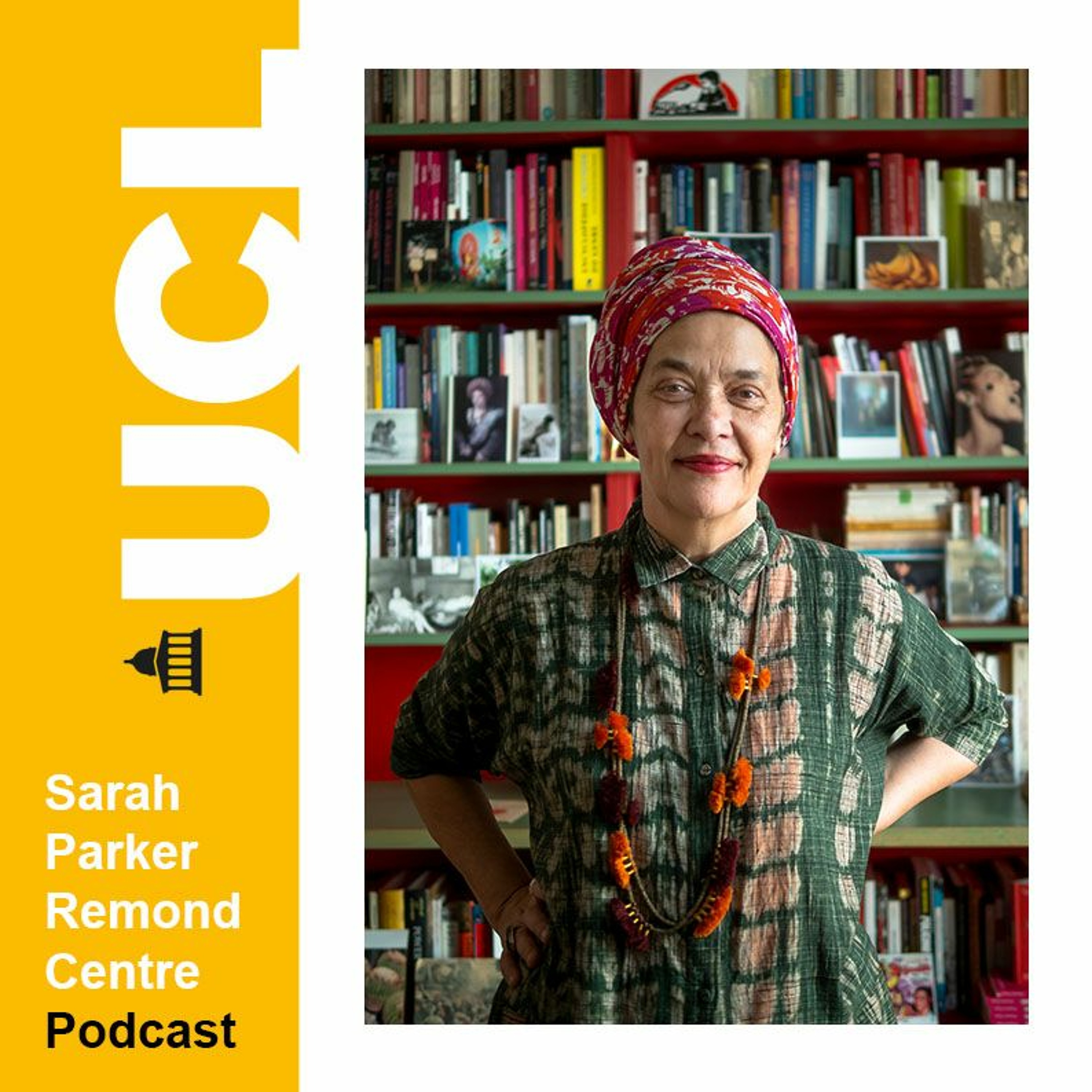 UCL Institute of Advanced StudiesSPRC In conversation with Françoise VergèsGala Rexer welcomes Françoise Vergès, franco-Reunionnese activist, independent curator, and public educator, to talk about her most recent books, A Feminist Theory of Violence (2022), The Wombs of Women. Race, Capital, Feminism (2020,) and A Decolonial Feminism (2019).
Transcript: https://www.ucl.ac.uk/racism-racialisation/transcripts/transcript-conversation-francoise-verges
This conversation was recorded on 25th October 2022.
Speakers: Gala Rexer, postdoctoral fellow at the Sarah Parker Remond Centre // Françoise Vergès, political scientist, historian, film producer, independent curator, activist and public educator.
Producer: Julia Thomas and Lucy Stagg
Editors: Amie Liebowitz and Kaissa Karhu
www.ucl.ac.uk/racism-racialisation/podcasts2023-01-1636 min
UCL Institute of Advanced StudiesSPRC In conversation with Françoise VergèsGala Rexer welcomes Françoise Vergès, franco-Reunionnese activist, independent curator, and public educator, to talk about her most recent books, A Feminist Theory of Violence (2022), The Wombs of Women. Race, Capital, Feminism (2020,) and A Decolonial Feminism (2019).
Transcript: https://www.ucl.ac.uk/racism-racialisation/transcripts/transcript-conversation-francoise-verges
This conversation was recorded on 25th October 2022.
Speakers: Gala Rexer, postdoctoral fellow at the Sarah Parker Remond Centre // Françoise Vergès, political scientist, historian, film producer, independent curator, activist and public educator.
Producer: Julia Thomas and Lucy Stagg
Editors: Amie Liebowitz and Kaissa Karhu
www.ucl.ac.uk/racism-racialisation/podcasts2023-01-1636 min UCL Sarah Parker Remond Centre PodcastIn conversation with Karimah AshaduKarimah Ashadu joins the SPRC podcast to discuss two of her recent films, Brown Goods (2020) and Plateau (2022), on the labour and labourers that sustain informal economies of waste disposal and tin mining in Germany and Nigeria. Plateau (excerpt), 2021-2022HD digital film, colour with sound - two channelwww.youtube.com/watch?v=d8oOp-dX6hkcourtesy the artist and Fondazione in between Art Film Brown Goods (excerpt), 2020HD digital film, colour with sound - single channelwww.youtube.com/watch?v...2022-10-1229 min
UCL Sarah Parker Remond Centre PodcastIn conversation with Karimah AshaduKarimah Ashadu joins the SPRC podcast to discuss two of her recent films, Brown Goods (2020) and Plateau (2022), on the labour and labourers that sustain informal economies of waste disposal and tin mining in Germany and Nigeria. Plateau (excerpt), 2021-2022HD digital film, colour with sound - two channelwww.youtube.com/watch?v=d8oOp-dX6hkcourtesy the artist and Fondazione in between Art Film Brown Goods (excerpt), 2020HD digital film, colour with sound - single channelwww.youtube.com/watch?v...2022-10-1229 min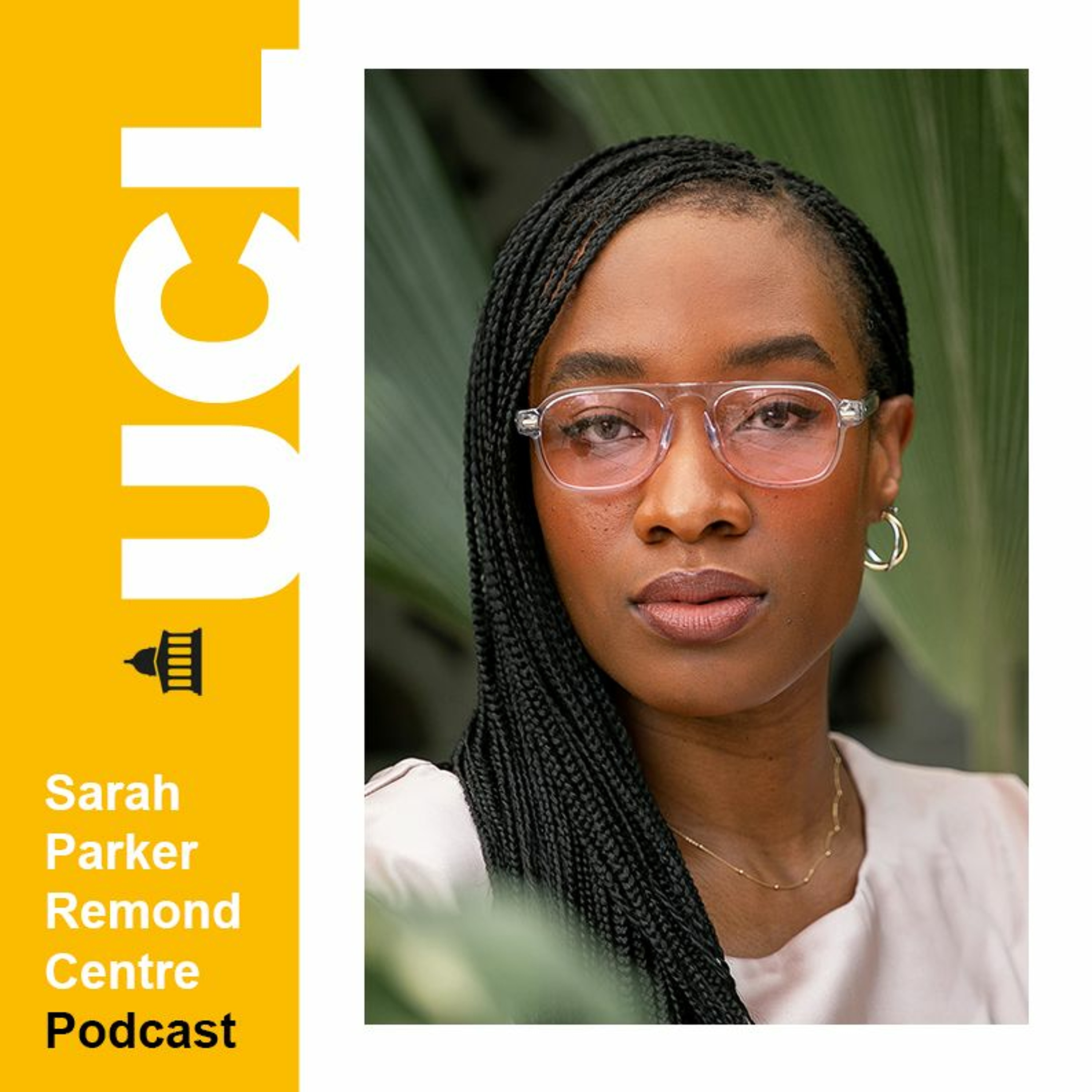 UCL Institute of Advanced StudiesSPRC In conversation with Karimah AshaduKarimah Ashadu joins the SPRC podcast to discuss two of her recent films, 'Brown Goods' (2020) and 'Plateau' (2022), on the labour and labourers that sustain informal economies of waste disposal and tin mining in Germany and Nigeria.
'Plateau' (excerpt), 2021-2022
HD digital film, colour with sound - two channel
https://youtu.be/d8oOp-dX6hk
courtesy the artist and Fondazione in between Art Film
'Brown Goods' (excerpt), 2020
HD digital film, colour with sound - single channel
https://youtu.be/4RJxFRBjqws
courtesy the artist
Transcript: www.ucl.ac.uk/racism-racialisation/transcript-conversation-karimah-ashadu
This conversation was recorded on 2nd September 2022
Speakers: Lara Choksey is...2022-10-1229 min
UCL Institute of Advanced StudiesSPRC In conversation with Karimah AshaduKarimah Ashadu joins the SPRC podcast to discuss two of her recent films, 'Brown Goods' (2020) and 'Plateau' (2022), on the labour and labourers that sustain informal economies of waste disposal and tin mining in Germany and Nigeria.
'Plateau' (excerpt), 2021-2022
HD digital film, colour with sound - two channel
https://youtu.be/d8oOp-dX6hk
courtesy the artist and Fondazione in between Art Film
'Brown Goods' (excerpt), 2020
HD digital film, colour with sound - single channel
https://youtu.be/4RJxFRBjqws
courtesy the artist
Transcript: www.ucl.ac.uk/racism-racialisation/transcript-conversation-karimah-ashadu
This conversation was recorded on 2nd September 2022
Speakers: Lara Choksey is...2022-10-1229 min UCL Sarah Parker Remond Centre PodcastIn conversation with Coretta PhillipsCoretta Phillips, Professor of Criminology and Social Policy, joins Clive Nwonka for a conversation on race, criminal justice and social policy. Coretta discusses ethnographically capturing both the organic experiences of multi-culture and the more structured and governed forms of multiculturalism taking place within the prison system, her recent work on criminal justice experiences of Gypsy and Traveller communities in England since 1960, and the complacency and the complicity in racist practices in higher education. Transcript: www.ucl.ac.uk/racism-racialisation/transcript-conversation-coretta-phillips This conversation was recorded on 20th May 2022Speakers: Cl...2022-07-2734 min
UCL Sarah Parker Remond Centre PodcastIn conversation with Coretta PhillipsCoretta Phillips, Professor of Criminology and Social Policy, joins Clive Nwonka for a conversation on race, criminal justice and social policy. Coretta discusses ethnographically capturing both the organic experiences of multi-culture and the more structured and governed forms of multiculturalism taking place within the prison system, her recent work on criminal justice experiences of Gypsy and Traveller communities in England since 1960, and the complacency and the complicity in racist practices in higher education. Transcript: www.ucl.ac.uk/racism-racialisation/transcript-conversation-coretta-phillips This conversation was recorded on 20th May 2022Speakers: Cl...2022-07-2734 min UCL Sarah Parker Remond Centre PodcastIn conversation with James Doucet-BattleMedical anthropologist, James Doucet-Battle, joins us to talk about his book, Sweetness in the Blood: Race, Risk and Type 2 Diabetes. Discussing the importance of delinking race from risk in order to tell a more holistic, anthropological story of what it means to be Black, James brings autobiographical elements into his work and explores the relationship between race, gender and ancestry, the mapping of Henrietta Lacks’ HeLa cells and his own journey into Black feminist thought. Transcript: www.ucl.ac.uk/racism-racialisation/transcript-conversation-james-doucet-battle This conversation was recorded on 9th June 2022Sp...2022-07-1332 min
UCL Sarah Parker Remond Centre PodcastIn conversation with James Doucet-BattleMedical anthropologist, James Doucet-Battle, joins us to talk about his book, Sweetness in the Blood: Race, Risk and Type 2 Diabetes. Discussing the importance of delinking race from risk in order to tell a more holistic, anthropological story of what it means to be Black, James brings autobiographical elements into his work and explores the relationship between race, gender and ancestry, the mapping of Henrietta Lacks’ HeLa cells and his own journey into Black feminist thought. Transcript: www.ucl.ac.uk/racism-racialisation/transcript-conversation-james-doucet-battle This conversation was recorded on 9th June 2022Sp...2022-07-1332 min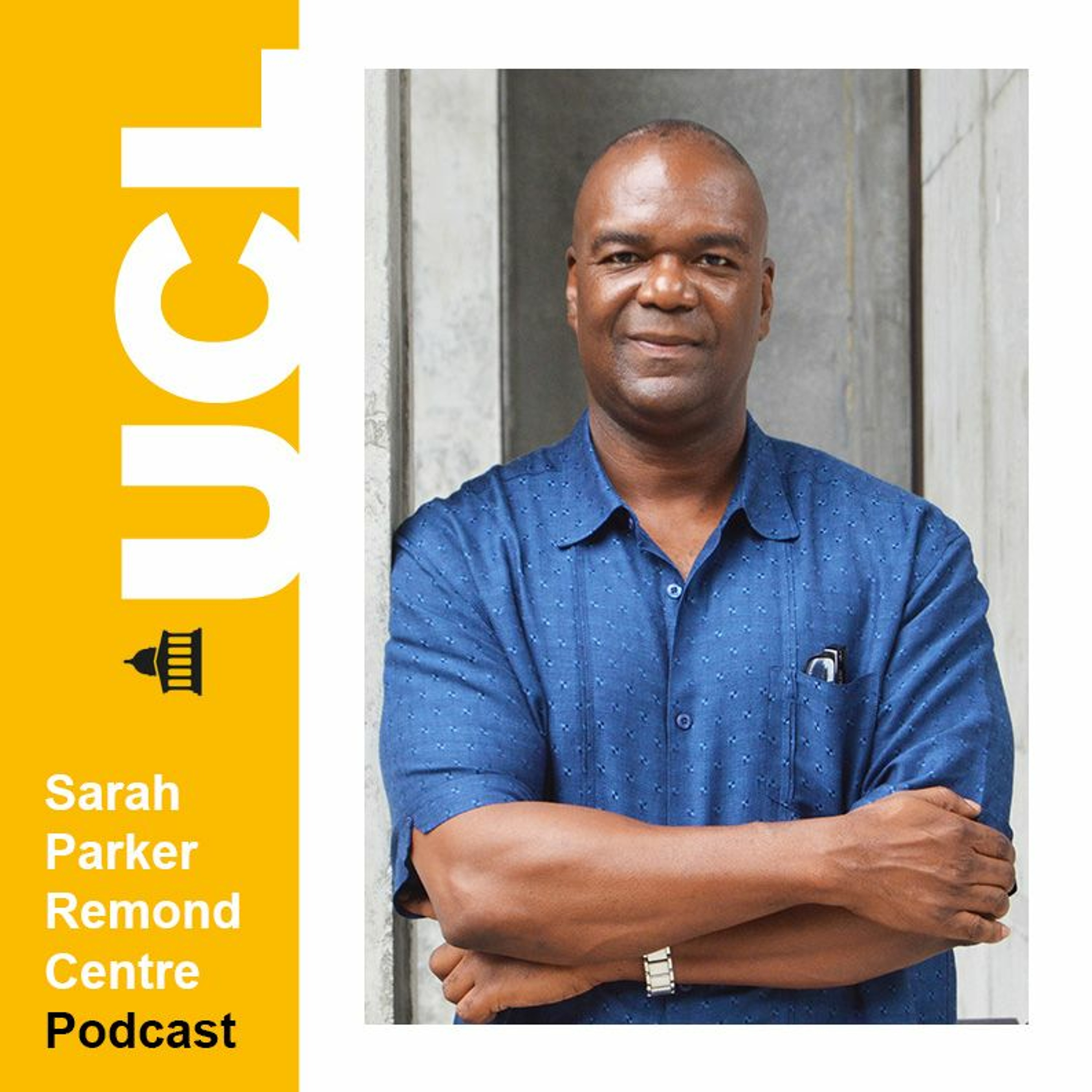 UCL Institute of Advanced StudiesSPRC In conversation with James Doucet-BattleMedical anthropologist, James Doucet-Battle, joins us to talk about his book, Sweetness in the Blood: Race, Risk and Type 2 Diabetes. Discussing the importance of delinking race from risk in order to tell a more holistic, anthropological story of what it means to be Black, James brings autobiographical elements into his work and explores the relationship between race, gender and ancestry, the mapping of Henrietta Lacks’ HeLa cells and his own journey into Black feminist thought.
Transcript: www.ucl.ac.uk/racism-racialisation/transcript-conversation-james-doucet-battle
This conversation was recorded on 9th June 2022
Speakers: Paige Patchin, Lecturer in Race, Ethnicity & Postcolonial Studies, UCL Sarah Pa...2022-07-1332 min
UCL Institute of Advanced StudiesSPRC In conversation with James Doucet-BattleMedical anthropologist, James Doucet-Battle, joins us to talk about his book, Sweetness in the Blood: Race, Risk and Type 2 Diabetes. Discussing the importance of delinking race from risk in order to tell a more holistic, anthropological story of what it means to be Black, James brings autobiographical elements into his work and explores the relationship between race, gender and ancestry, the mapping of Henrietta Lacks’ HeLa cells and his own journey into Black feminist thought.
Transcript: www.ucl.ac.uk/racism-racialisation/transcript-conversation-james-doucet-battle
This conversation was recorded on 9th June 2022
Speakers: Paige Patchin, Lecturer in Race, Ethnicity & Postcolonial Studies, UCL Sarah Pa...2022-07-1332 min UCL Sarah Parker Remond Centre PodcastIn conversation with Kojo KoramLuke de Noronha welcomes Kojo Koram, Lecturer in Law at Birkbeck School of Law and author of Uncommon Wealth: Britain and the Aftermath of Empire (John Murray Press, 2022). Discussing his recent book, Kojo addresses questions around 20th century decolonisation, neoliberalism and national sovereignty, tying these threads to today’s spiralling global wealth inequality, accelerating climate crisis, migration and bordering, and the precarity expanding across so many different sectors in our society. Transcript: www.ucl.ac.uk/racism-racialisation/transcript-conversation-kojo-koram This conversation was recorded on 15th April 2022Speakers: Luke de Noronh...2022-05-1935 min
UCL Sarah Parker Remond Centre PodcastIn conversation with Kojo KoramLuke de Noronha welcomes Kojo Koram, Lecturer in Law at Birkbeck School of Law and author of Uncommon Wealth: Britain and the Aftermath of Empire (John Murray Press, 2022). Discussing his recent book, Kojo addresses questions around 20th century decolonisation, neoliberalism and national sovereignty, tying these threads to today’s spiralling global wealth inequality, accelerating climate crisis, migration and bordering, and the precarity expanding across so many different sectors in our society. Transcript: www.ucl.ac.uk/racism-racialisation/transcript-conversation-kojo-koram This conversation was recorded on 15th April 2022Speakers: Luke de Noronh...2022-05-1935 min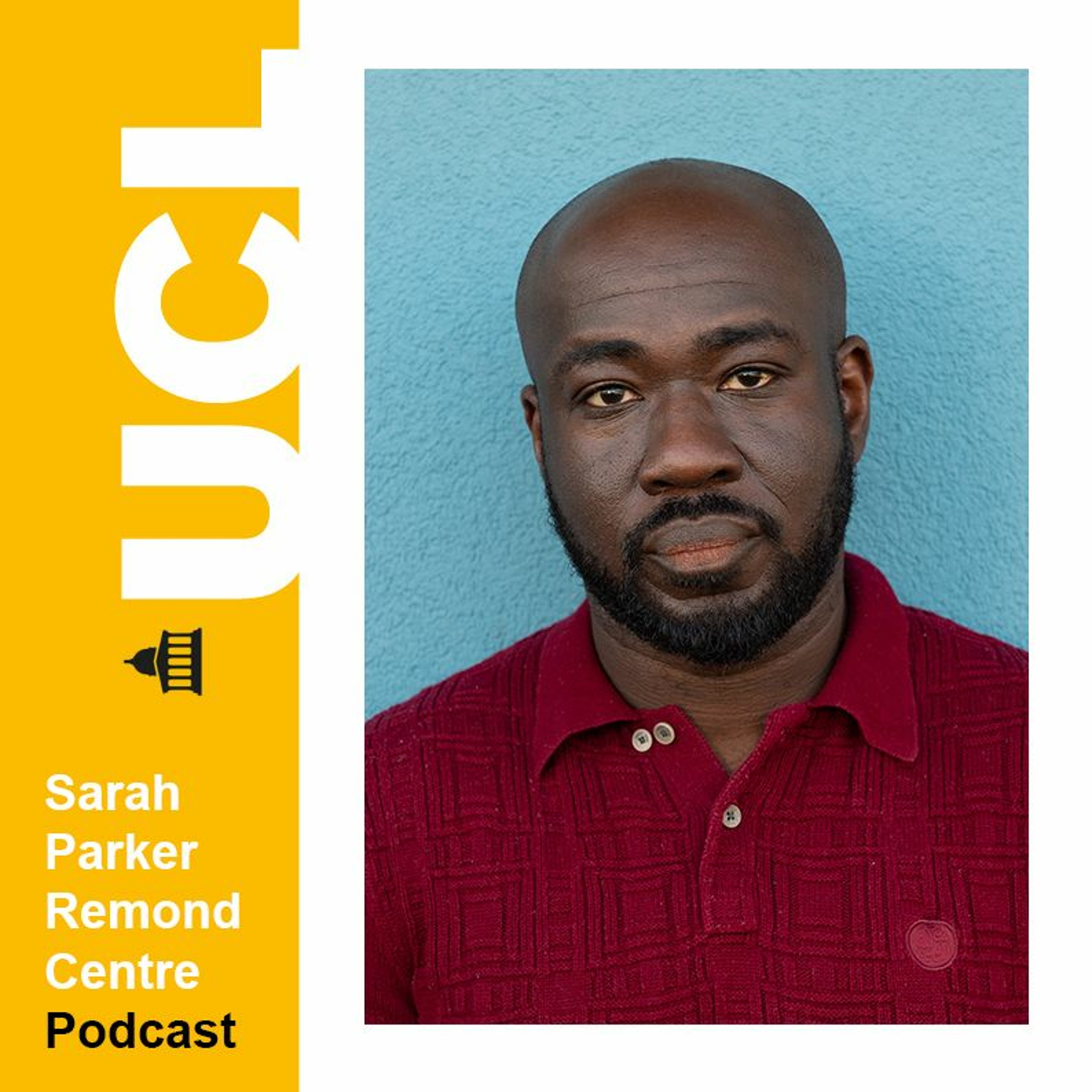 UCL Institute of Advanced StudiesSPRC In conversation with Kojo KoramLuke de Noronha welcomes Kojo Koram, Lecturer in Law at Birkbeck School of Law and author of 'Uncommon Wealth: Britain and the Aftermath of Empire' (John Murray Press, 2022). Discussing his recent book, Kojo addresses questions around 20th century decolonisation, neoliberalism and national sovereignty, tying these threads to today’s spiralling global wealth inequality, accelerating climate crisis, migration and bordering, and the precarity expanding across so many different sectors in our society.
Transcript: www.ucl.ac.uk/racism-racialisation/transcript-conversation-kojo-koram
This conversation was recorded on 15th April 2022
Speakers: Luke de Noronha, Lecturer in Race, Ethnicity & Postcolonial Studies, UCL Sarah Parker Remond Centre // Ko...2022-05-1935 min
UCL Institute of Advanced StudiesSPRC In conversation with Kojo KoramLuke de Noronha welcomes Kojo Koram, Lecturer in Law at Birkbeck School of Law and author of 'Uncommon Wealth: Britain and the Aftermath of Empire' (John Murray Press, 2022). Discussing his recent book, Kojo addresses questions around 20th century decolonisation, neoliberalism and national sovereignty, tying these threads to today’s spiralling global wealth inequality, accelerating climate crisis, migration and bordering, and the precarity expanding across so many different sectors in our society.
Transcript: www.ucl.ac.uk/racism-racialisation/transcript-conversation-kojo-koram
This conversation was recorded on 15th April 2022
Speakers: Luke de Noronha, Lecturer in Race, Ethnicity & Postcolonial Studies, UCL Sarah Parker Remond Centre // Ko...2022-05-1935 min UCL Sarah Parker Remond Centre PodcastIn conversation with Shakuntala BanajiCo-author of Social Media and Hate, Shakuntala Banaji joins Clive Nwonka to delve into the theoretical and practical intersections of misinformation and online hate speech in contemporary societies. Shakuntala discusses online and offline activism, the intellectual source that inspired her work, and the broader question of media and communication study and its relevance for the analysis of race and racism. Trigger warning: reference to threat of sexual assault and violent imagery (12:45 – 13:05) Transcript: www.ucl.ac.uk/racism-racialisation/transcript-conversation-shakuntala-banaji This conversation was recorded on 15th March 2022Spe...2022-04-2056 min
UCL Sarah Parker Remond Centre PodcastIn conversation with Shakuntala BanajiCo-author of Social Media and Hate, Shakuntala Banaji joins Clive Nwonka to delve into the theoretical and practical intersections of misinformation and online hate speech in contemporary societies. Shakuntala discusses online and offline activism, the intellectual source that inspired her work, and the broader question of media and communication study and its relevance for the analysis of race and racism. Trigger warning: reference to threat of sexual assault and violent imagery (12:45 – 13:05) Transcript: www.ucl.ac.uk/racism-racialisation/transcript-conversation-shakuntala-banaji This conversation was recorded on 15th March 2022Spe...2022-04-2056 min UCL Sarah Parker Remond Centre PodcastIn conversation with Farah Jasmine GriffinClive Nwonka is joined by Farah Jasmine Griffin, author of Read Until You Understand, a deeply personal and wide-ranging mediation on Black culture, political freedom and humanity. Farah discusses writing with an ethic of care, honouring grace, mercy and beauty, and the relationship between rage and resistance. Farah also reflects on what she sees as the three sites of engagement for African-American and African diasporic studies: in the classroom, in the world, and in the planet.Transcript: www.ucl.ac.uk/racism-racialisation/transcript-conversation-farah-jasmine-griffinThis conversation was recorded on 18th February 2022...2022-03-1647 min
UCL Sarah Parker Remond Centre PodcastIn conversation with Farah Jasmine GriffinClive Nwonka is joined by Farah Jasmine Griffin, author of Read Until You Understand, a deeply personal and wide-ranging mediation on Black culture, political freedom and humanity. Farah discusses writing with an ethic of care, honouring grace, mercy and beauty, and the relationship between rage and resistance. Farah also reflects on what she sees as the three sites of engagement for African-American and African diasporic studies: in the classroom, in the world, and in the planet.Transcript: www.ucl.ac.uk/racism-racialisation/transcript-conversation-farah-jasmine-griffinThis conversation was recorded on 18th February 2022...2022-03-1647 min Effed Up HistorySalem History: Why Don't More People Talk about Sarah Parker Remond?: Effed Up History VIIIOriginally posted on Spotify 2/4/22
Today in honor of Black History Month, we will be talking about an amazingly influential abolitionist that many people don't know about. Sarah Parker Remond was a fantastic and inspirational woman who was treated terribly by American society.
Music:Medieval Loop One, Brothers Unite, and Celebration by Alexander Nakarada | https://www.serpentsoundstudios.com
Music promoted by https://www.free-stock-music.com
Attribution 4.0 International (CC BY 4.0)
https://creativecommons.org/licenses/by/4.0/Sources:
https://www.ucl.ac.uk/racism-racialisation/transcript-words-sarah-parker-remond
https://london...2022-02-0418 min
Effed Up HistorySalem History: Why Don't More People Talk about Sarah Parker Remond?: Effed Up History VIIIOriginally posted on Spotify 2/4/22
Today in honor of Black History Month, we will be talking about an amazingly influential abolitionist that many people don't know about. Sarah Parker Remond was a fantastic and inspirational woman who was treated terribly by American society.
Music:Medieval Loop One, Brothers Unite, and Celebration by Alexander Nakarada | https://www.serpentsoundstudios.com
Music promoted by https://www.free-stock-music.com
Attribution 4.0 International (CC BY 4.0)
https://creativecommons.org/licenses/by/4.0/Sources:
https://www.ucl.ac.uk/racism-racialisation/transcript-words-sarah-parker-remond
https://london...2022-02-0418 min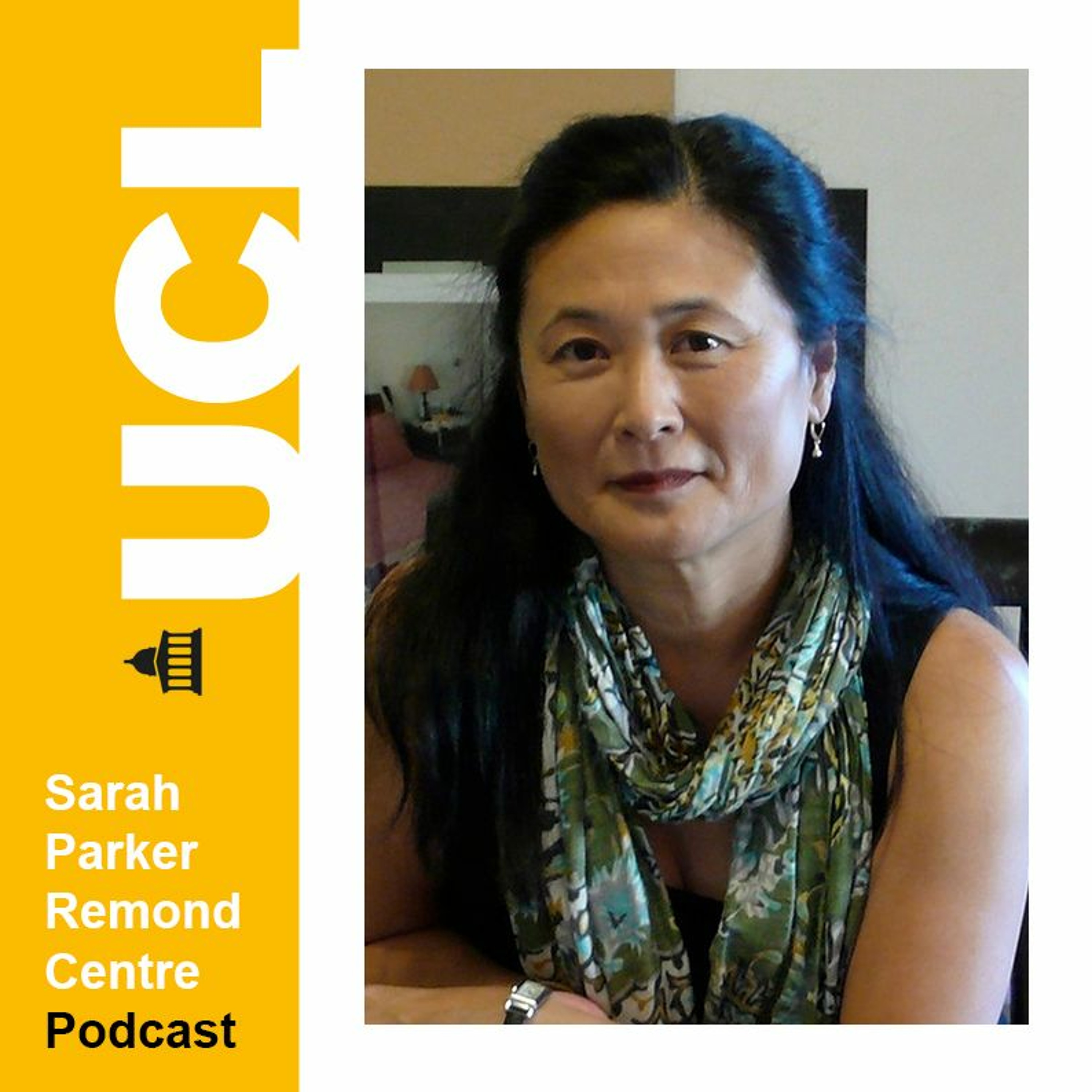 UCL Institute of Advanced StudiesSPRC In conversation with Lisa LoweLuke de Noronha welcomes Lisa Lowe, Professor of American Studies and Ethnicity, Race and Migration, to talk about her book, The Intimacies of Four Continents, where she examines links between transatlantic slavery, Asian indenture, imperial trades and colonialism. Concerning liberalism, Lisa discusses how ideas of reason, civilisation and freedom are continually dividing the human according to a coloniality of power or a colonial division of humanities, affirming liberty for European man but subordinating the colonised and disposed.
Transcript: www.ucl.ac.uk/racism-racialisation/transcript-conversation-lisa-lowe
This conversation was recorded on 19th July 2021
Speakers: Luke de Noronha, Lecturer in Race, Ethnicity & Postcolonial...2021-11-2430 min
UCL Institute of Advanced StudiesSPRC In conversation with Lisa LoweLuke de Noronha welcomes Lisa Lowe, Professor of American Studies and Ethnicity, Race and Migration, to talk about her book, The Intimacies of Four Continents, where she examines links between transatlantic slavery, Asian indenture, imperial trades and colonialism. Concerning liberalism, Lisa discusses how ideas of reason, civilisation and freedom are continually dividing the human according to a coloniality of power or a colonial division of humanities, affirming liberty for European man but subordinating the colonised and disposed.
Transcript: www.ucl.ac.uk/racism-racialisation/transcript-conversation-lisa-lowe
This conversation was recorded on 19th July 2021
Speakers: Luke de Noronha, Lecturer in Race, Ethnicity & Postcolonial...2021-11-2430 min UCL Sarah Parker Remond Centre PodcastIn conversation with Lisa LoweLuke de Noronha welcomes Lisa Lowe, Professor of American Studies and Ethnicity, Race and Migration, to talk about her book, The Intimacies of Four Continents, where she examines links between transatlantic slavery, Asian indenture, imperial trades and colonialism. Concerning liberalism, Lisa discusses how ideas of reason, civilisation and freedom are continually dividing the human according to a coloniality of power or a colonial division of humanities, affirming liberty for European man but subordinating the colonised and disposed. Transcript: www.ucl.ac.uk/racism-racialisation/transcript-conversation-lisa-loweThis conversation was recorded on 19th July 2021S...2021-11-2430 min
UCL Sarah Parker Remond Centre PodcastIn conversation with Lisa LoweLuke de Noronha welcomes Lisa Lowe, Professor of American Studies and Ethnicity, Race and Migration, to talk about her book, The Intimacies of Four Continents, where she examines links between transatlantic slavery, Asian indenture, imperial trades and colonialism. Concerning liberalism, Lisa discusses how ideas of reason, civilisation and freedom are continually dividing the human according to a coloniality of power or a colonial division of humanities, affirming liberty for European man but subordinating the colonised and disposed. Transcript: www.ucl.ac.uk/racism-racialisation/transcript-conversation-lisa-loweThis conversation was recorded on 19th July 2021S...2021-11-2430 min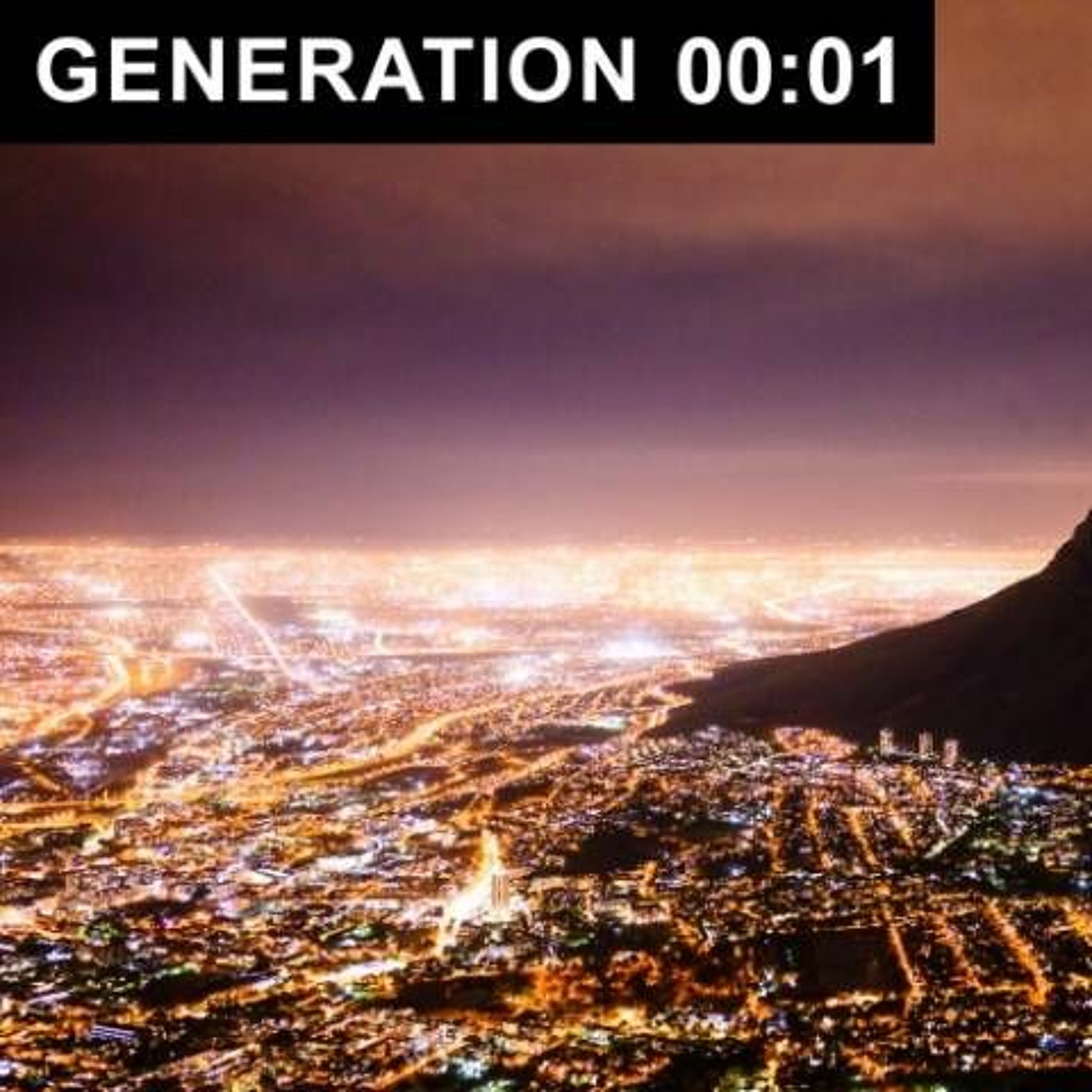 UCL MindsHow could fairer finance help us address Climate Change?Date: Tuesday 2 November 2021
Speakers:
Nadia Ameli, Principal Research Fellow at UCL Institute for Sustainable Resources (UCL ISR)
Ashish Ghadiali, Activist-in-Residence at Sarah Parker Remond Centre, Institute of Advanced Studies, UCL
Dr Joshua Ryan-Collins, Head of Finance and Macroeconomics at UCL’s Institute for Innovation and Public Purpose
About the UCL Lunch Hour Lecture:
The sustainable finance policy agenda has largely neglected the financial disadvantages faced by many low and middle income nations in addressing the ecological transition. Dr Joshua Ryan-Collins will consider what sort of reforms to the international financial system are needed to address this, including more restrictive financial re...2021-11-171h 01
UCL MindsHow could fairer finance help us address Climate Change?Date: Tuesday 2 November 2021
Speakers:
Nadia Ameli, Principal Research Fellow at UCL Institute for Sustainable Resources (UCL ISR)
Ashish Ghadiali, Activist-in-Residence at Sarah Parker Remond Centre, Institute of Advanced Studies, UCL
Dr Joshua Ryan-Collins, Head of Finance and Macroeconomics at UCL’s Institute for Innovation and Public Purpose
About the UCL Lunch Hour Lecture:
The sustainable finance policy agenda has largely neglected the financial disadvantages faced by many low and middle income nations in addressing the ecological transition. Dr Joshua Ryan-Collins will consider what sort of reforms to the international financial system are needed to address this, including more restrictive financial re...2021-11-171h 01 UCL Sarah Parker Remond Centre PodcastIn conversation with Laleh KhaliliLaleh Khalili,, Professor of International Politics and author of Sinews of War & Trade, joins us for a conversation on land reclamation, dredging and the role of maritime infrastructures as conduits of the movement of technologies, capital, people and cargo. Addressing the significant bodies of water around which a politics has taken shape, Laleh discusses the tension of the sea as a romanticised incredible and abstract space, yet also a space of death, exploitation, slavery and colonialism, highlighting the geoeconomical inequalities in the world. Transcript: www.ucl.ac.uk/racism-racialisation/transcript-conversation-laleh-khalili This co...2021-11-0340 min
UCL Sarah Parker Remond Centre PodcastIn conversation with Laleh KhaliliLaleh Khalili,, Professor of International Politics and author of Sinews of War & Trade, joins us for a conversation on land reclamation, dredging and the role of maritime infrastructures as conduits of the movement of technologies, capital, people and cargo. Addressing the significant bodies of water around which a politics has taken shape, Laleh discusses the tension of the sea as a romanticised incredible and abstract space, yet also a space of death, exploitation, slavery and colonialism, highlighting the geoeconomical inequalities in the world. Transcript: www.ucl.ac.uk/racism-racialisation/transcript-conversation-laleh-khalili This co...2021-11-0340 min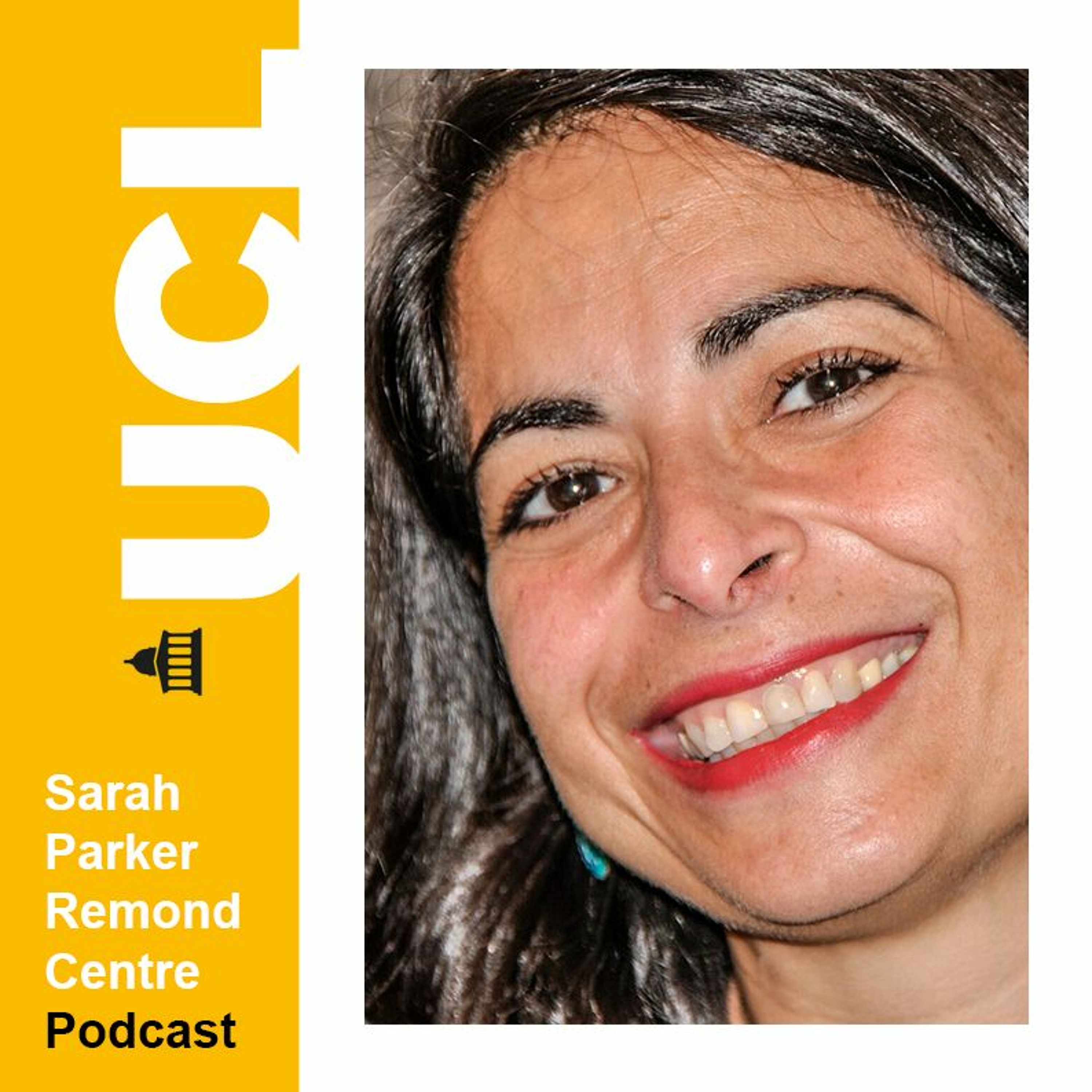 UCL Institute of Advanced StudiesSPRC In conversation with Laleh KhaliliLaleh Khalili, Professor of International Politics and author of 'Sinews of War & Trade', joins us for a conversation on land reclamation, dredging and the role of maritime infrastructures as conduits of the movement of technologies, capital, people and cargo. Addressing the significant bodies of water around which a politics has taken shape, Laleh discusses the tension of the sea as a romanticised incredible and abstract space, yet also a space of death, exploitation, slavery and colonialism, highlighting the geoeconomical inequalities in the world.
Transcript: www.ucl.ac.uk/racism-racialisation/transcript-conversation-laleh-khalili
This conversation was recorded on 30th June 2021
Speakers: Luke de...2021-11-0340 min
UCL Institute of Advanced StudiesSPRC In conversation with Laleh KhaliliLaleh Khalili, Professor of International Politics and author of 'Sinews of War & Trade', joins us for a conversation on land reclamation, dredging and the role of maritime infrastructures as conduits of the movement of technologies, capital, people and cargo. Addressing the significant bodies of water around which a politics has taken shape, Laleh discusses the tension of the sea as a romanticised incredible and abstract space, yet also a space of death, exploitation, slavery and colonialism, highlighting the geoeconomical inequalities in the world.
Transcript: www.ucl.ac.uk/racism-racialisation/transcript-conversation-laleh-khalili
This conversation was recorded on 30th June 2021
Speakers: Luke de...2021-11-0340 min UCL Sarah Parker Remond Centre PodcastIn conversation with Alexis Pauline GumbsAlexis Pauline Gumbs, writer, independent scholar and poet, joins us to reflect on engaging with the works of Black feminist scholars, ancestral listening and her connectedness to seals. Author of Undrowned: Black Feminist Lessons from Marine Mammals, Alexis discusses how colonialism, enslavement and the plantation economy resulted in the extinction of the Caribbean monk seal. Alexis also talks about her forthcoming biography of Audre Lorde and deep diving into Lorde’s life and love of geology. Transcript: www.ucl.ac.uk/racism-racialisation/transcript-conversation-alexis-pauline-gumbs This conversation was recorded on 29th July 20212021-10-2039 min
UCL Sarah Parker Remond Centre PodcastIn conversation with Alexis Pauline GumbsAlexis Pauline Gumbs, writer, independent scholar and poet, joins us to reflect on engaging with the works of Black feminist scholars, ancestral listening and her connectedness to seals. Author of Undrowned: Black Feminist Lessons from Marine Mammals, Alexis discusses how colonialism, enslavement and the plantation economy resulted in the extinction of the Caribbean monk seal. Alexis also talks about her forthcoming biography of Audre Lorde and deep diving into Lorde’s life and love of geology. Transcript: www.ucl.ac.uk/racism-racialisation/transcript-conversation-alexis-pauline-gumbs This conversation was recorded on 29th July 20212021-10-2039 min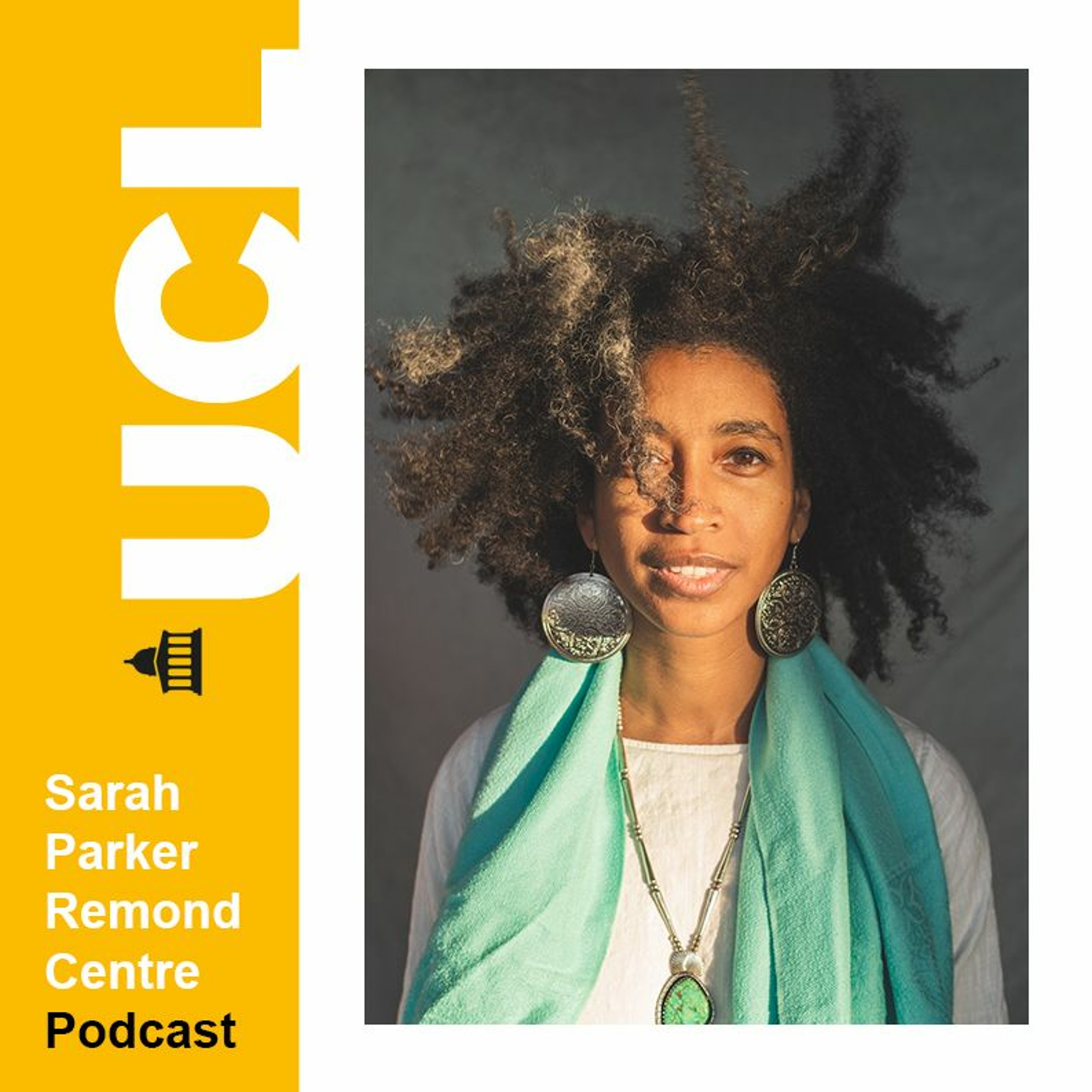 UCL Institute of Advanced StudiesSPRC In conversation with Alexis Pauline GumbsAlexis Pauline Gumbs, writer, independent scholar and poet, joins us to reflect on engaging with the works of Black feminist scholars, ancestral listening and her connectedness to seals. Author of 'Undrowned: Black Feminist Lessons from Marine Mammals', Alexis discusses how colonialism, enslavement and the plantation economy resulted in the extinction of the Caribbean monk seal. Alexis also talks about her forthcoming biography of Audre Lorde and deep diving into Lorde’s life and love of geology.
Transcript: www.ucl.ac.uk/racism-racialisation/transcript-conversation-alexis-pauline-gumbs
This conversation was recorded on 29th July 2021
Speakers: Ashish Ghadiali, Activist-in-Residence, UCL Sarah Parker Remond Centre // Alexis Pa...2021-10-2039 min
UCL Institute of Advanced StudiesSPRC In conversation with Alexis Pauline GumbsAlexis Pauline Gumbs, writer, independent scholar and poet, joins us to reflect on engaging with the works of Black feminist scholars, ancestral listening and her connectedness to seals. Author of 'Undrowned: Black Feminist Lessons from Marine Mammals', Alexis discusses how colonialism, enslavement and the plantation economy resulted in the extinction of the Caribbean monk seal. Alexis also talks about her forthcoming biography of Audre Lorde and deep diving into Lorde’s life and love of geology.
Transcript: www.ucl.ac.uk/racism-racialisation/transcript-conversation-alexis-pauline-gumbs
This conversation was recorded on 29th July 2021
Speakers: Ashish Ghadiali, Activist-in-Residence, UCL Sarah Parker Remond Centre // Alexis Pa...2021-10-2039 min UCL Sarah Parker Remond Centre PodcastIn conversation with Nandita SharmaLuke de Noronha welcomes Nandita Sharma, activist scholar and Professor of Sociology at the University of Hawaiʻi at Mānoa, to discuss borders, migration and citizenship in relation to the pandemic and climate catastrophes. Nandita addresses the demand for a planetary commons, and the need to live in a worldly space in which the fundamental political foundation is freedom from exclusion, freedom from dispossession and freedom from displacement.Transcript: www.ucl.ac.uk/racism-racialisation/transcript-conversation-nandita-sharmaThis conversation was recorded on 21st June 2021Speakers: Luke de Noronha, Lecturer in Race, Ethnic...2021-09-0831 min
UCL Sarah Parker Remond Centre PodcastIn conversation with Nandita SharmaLuke de Noronha welcomes Nandita Sharma, activist scholar and Professor of Sociology at the University of Hawaiʻi at Mānoa, to discuss borders, migration and citizenship in relation to the pandemic and climate catastrophes. Nandita addresses the demand for a planetary commons, and the need to live in a worldly space in which the fundamental political foundation is freedom from exclusion, freedom from dispossession and freedom from displacement.Transcript: www.ucl.ac.uk/racism-racialisation/transcript-conversation-nandita-sharmaThis conversation was recorded on 21st June 2021Speakers: Luke de Noronha, Lecturer in Race, Ethnic...2021-09-0831 min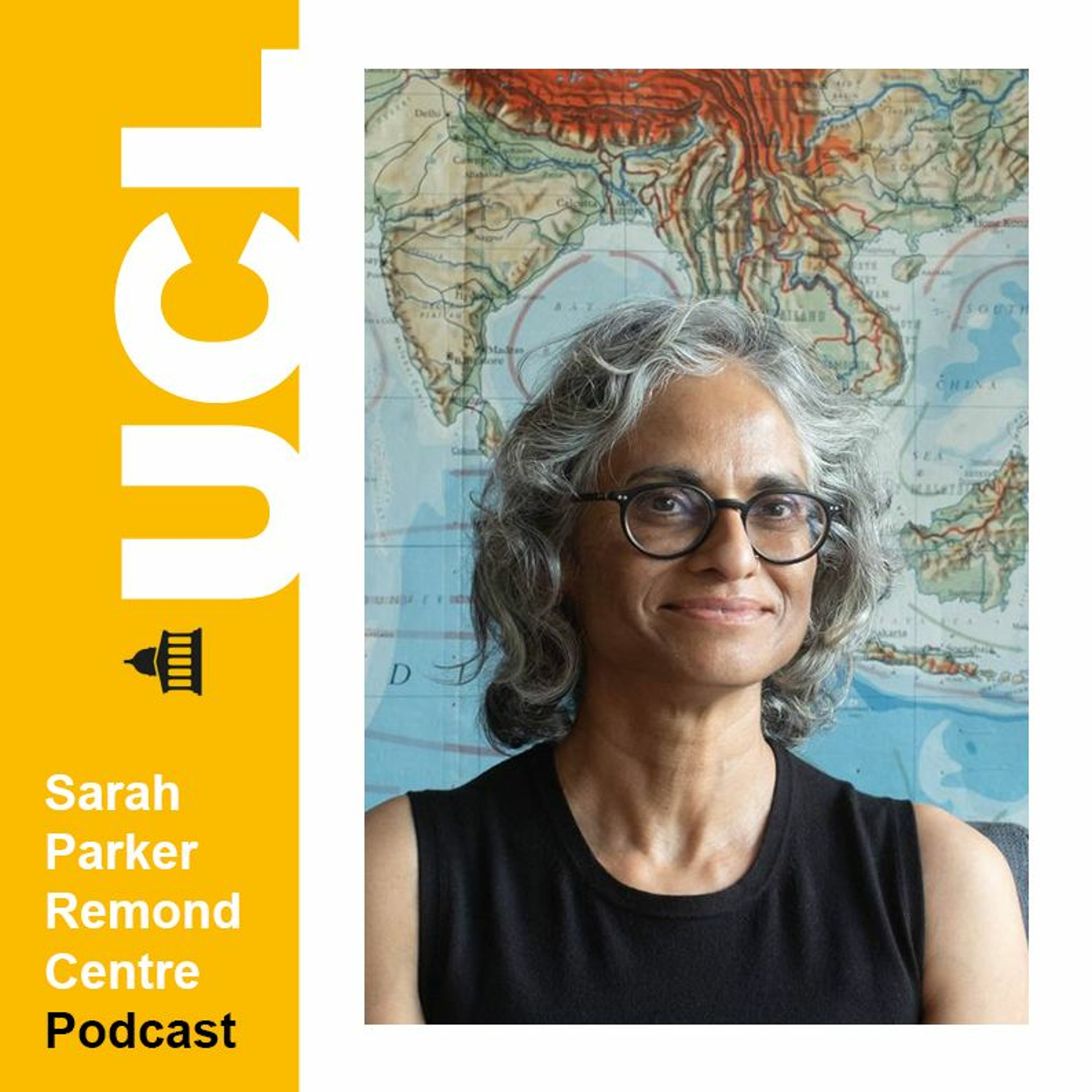 UCL Institute of Advanced StudiesSPRC In conversation with Nandita SharmaLuke de Noronha welcomes Nandita Sharma, activist scholar and Professor of Sociology at the University of Hawaiʻi at Mānoa, to discuss borders, migration and citizenship in relation to the pandemic and climate catastrophes. Nandita addresses the demand for a planetary commons, and the need to live in a worldly space in which the fundamental political foundation is freedom from exclusion, freedom from dispossession and freedom from displacement.
Transcript: www.ucl.ac.uk/racism-racialisation/transcript-conversation-nandita-sharma
This conversation was recorded on 21st June 2021
Speakers: Luke de Noronha, Lecturer in Race, Ethnicity & Postcolonial Studies, UCL Sarah Parker Remond Centre // Nandita Sharma, Pr...2021-09-0831 min
UCL Institute of Advanced StudiesSPRC In conversation with Nandita SharmaLuke de Noronha welcomes Nandita Sharma, activist scholar and Professor of Sociology at the University of Hawaiʻi at Mānoa, to discuss borders, migration and citizenship in relation to the pandemic and climate catastrophes. Nandita addresses the demand for a planetary commons, and the need to live in a worldly space in which the fundamental political foundation is freedom from exclusion, freedom from dispossession and freedom from displacement.
Transcript: www.ucl.ac.uk/racism-racialisation/transcript-conversation-nandita-sharma
This conversation was recorded on 21st June 2021
Speakers: Luke de Noronha, Lecturer in Race, Ethnicity & Postcolonial Studies, UCL Sarah Parker Remond Centre // Nandita Sharma, Pr...2021-09-0831 min UCL Sarah Parker Remond Centre PodcastIn conversation with Dipesh ChakrabartyWe’re joined by Dipesh Chakrabarty, Professor of History and author of The Climate of History in a Planetary Age, for a conversation on his intellectual trajectory and the idea of the planetary. Speaking on the climate crisis and the human condition, Dipesh states that “unless we realise our geological agency and the geomorphological role we play that is changing the landscape of the planet, we won’t realise the depth of the predicament that we’re in.” Transcript: www.ucl.ac.uk/racism-racialisation/transcript-conversation-dipesh-chakrabarty This conversation was recorded on 13th June 20212021-08-2543 min
UCL Sarah Parker Remond Centre PodcastIn conversation with Dipesh ChakrabartyWe’re joined by Dipesh Chakrabarty, Professor of History and author of The Climate of History in a Planetary Age, for a conversation on his intellectual trajectory and the idea of the planetary. Speaking on the climate crisis and the human condition, Dipesh states that “unless we realise our geological agency and the geomorphological role we play that is changing the landscape of the planet, we won’t realise the depth of the predicament that we’re in.” Transcript: www.ucl.ac.uk/racism-racialisation/transcript-conversation-dipesh-chakrabarty This conversation was recorded on 13th June 20212021-08-2543 min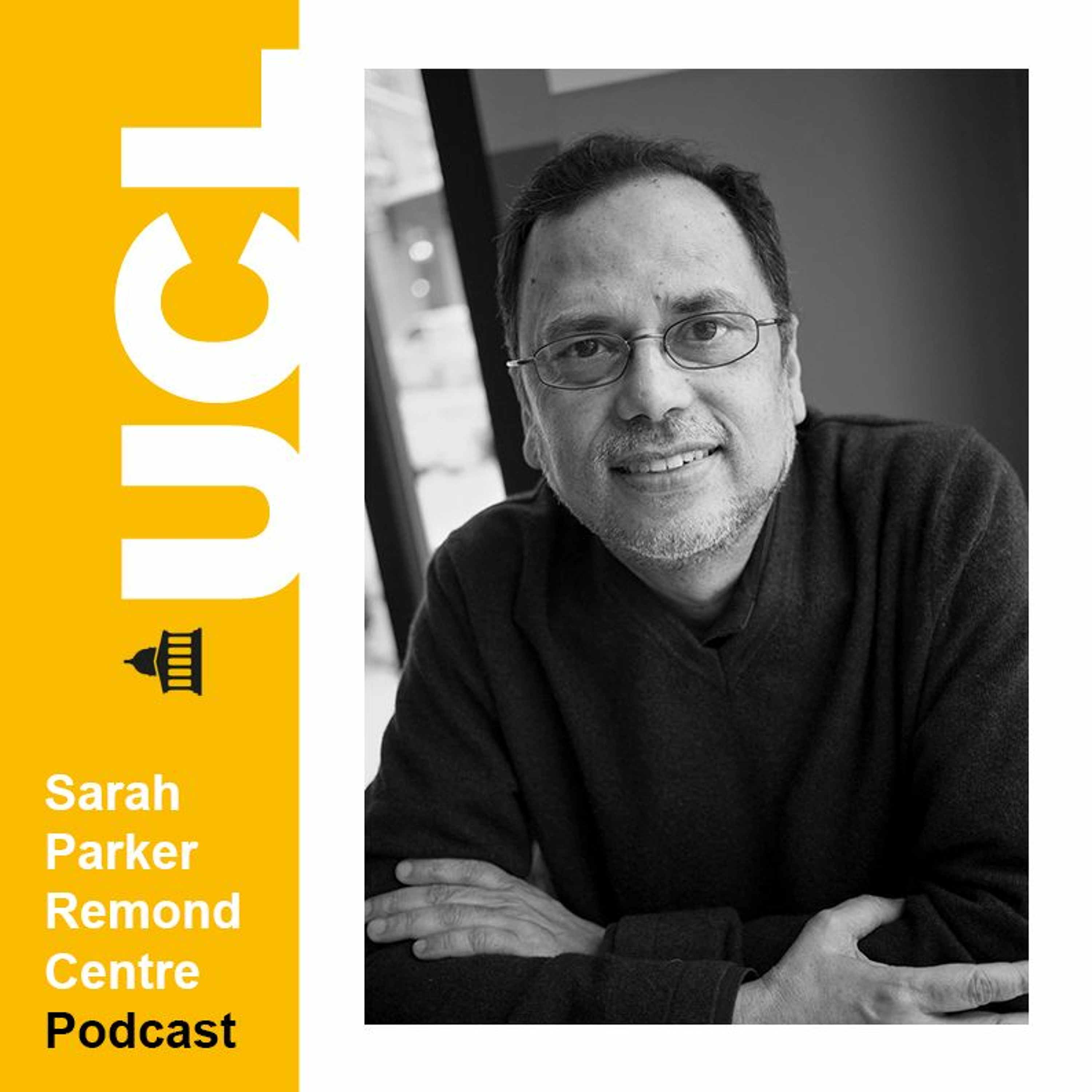 UCL Institute of Advanced StudiesSPRC In conversation with Dipesh ChakrabartyWe’re joined by Dipesh Chakrabarty, Professor of History and author of 'The Climate of History in a Planetary Age', for a conversation on his intellectual trajectory and the idea of the planetary. Speaking on the climate crisis and the human condition, Dipesh states that “unless we realise our geological agency and the geomorphological role we play that is changing the landscape of the planet, we won’t realise the depth of the predicament that we’re in.”
Transcript: www.ucl.ac.uk/racism-racialisation/transcript-conversation-dipesh-chakrabarty
This conversation was recorded on 13th June 2021
Speakers: Ashish Ghadiali, Activist-in-Residence, UCL Sarah Parker Remond Centre...2021-08-2543 min
UCL Institute of Advanced StudiesSPRC In conversation with Dipesh ChakrabartyWe’re joined by Dipesh Chakrabarty, Professor of History and author of 'The Climate of History in a Planetary Age', for a conversation on his intellectual trajectory and the idea of the planetary. Speaking on the climate crisis and the human condition, Dipesh states that “unless we realise our geological agency and the geomorphological role we play that is changing the landscape of the planet, we won’t realise the depth of the predicament that we’re in.”
Transcript: www.ucl.ac.uk/racism-racialisation/transcript-conversation-dipesh-chakrabarty
This conversation was recorded on 13th June 2021
Speakers: Ashish Ghadiali, Activist-in-Residence, UCL Sarah Parker Remond Centre...2021-08-2543 min UCL Sarah Parker Remond Centre PodcastIn conversation with Gracie Mae BradleyLuke de Noronha is joined by Gracie Mae Bradley, policy expert, writer and campaigner, and Interim Director of Liberty. Involved in the wider grassroots movement for social justice in the UK and having written extensively on state racism and civil liberties, Gracie joins us to speak about the state response and policing throughout the pandemic, race disproportionality, and the trend towards pre-criminalisation.Transcript: www.ucl.ac.uk/racism-racialisation/transcript-conversation-gracie-mae-bradley This conversation was recorded on 24th June 2021Speakers: Luke de Noronha, Lecturer in Race, Ethnicity & Postcolonial Studies, UCL Sarah Parker R...2021-08-1139 min
UCL Sarah Parker Remond Centre PodcastIn conversation with Gracie Mae BradleyLuke de Noronha is joined by Gracie Mae Bradley, policy expert, writer and campaigner, and Interim Director of Liberty. Involved in the wider grassroots movement for social justice in the UK and having written extensively on state racism and civil liberties, Gracie joins us to speak about the state response and policing throughout the pandemic, race disproportionality, and the trend towards pre-criminalisation.Transcript: www.ucl.ac.uk/racism-racialisation/transcript-conversation-gracie-mae-bradley This conversation was recorded on 24th June 2021Speakers: Luke de Noronha, Lecturer in Race, Ethnicity & Postcolonial Studies, UCL Sarah Parker R...2021-08-1139 min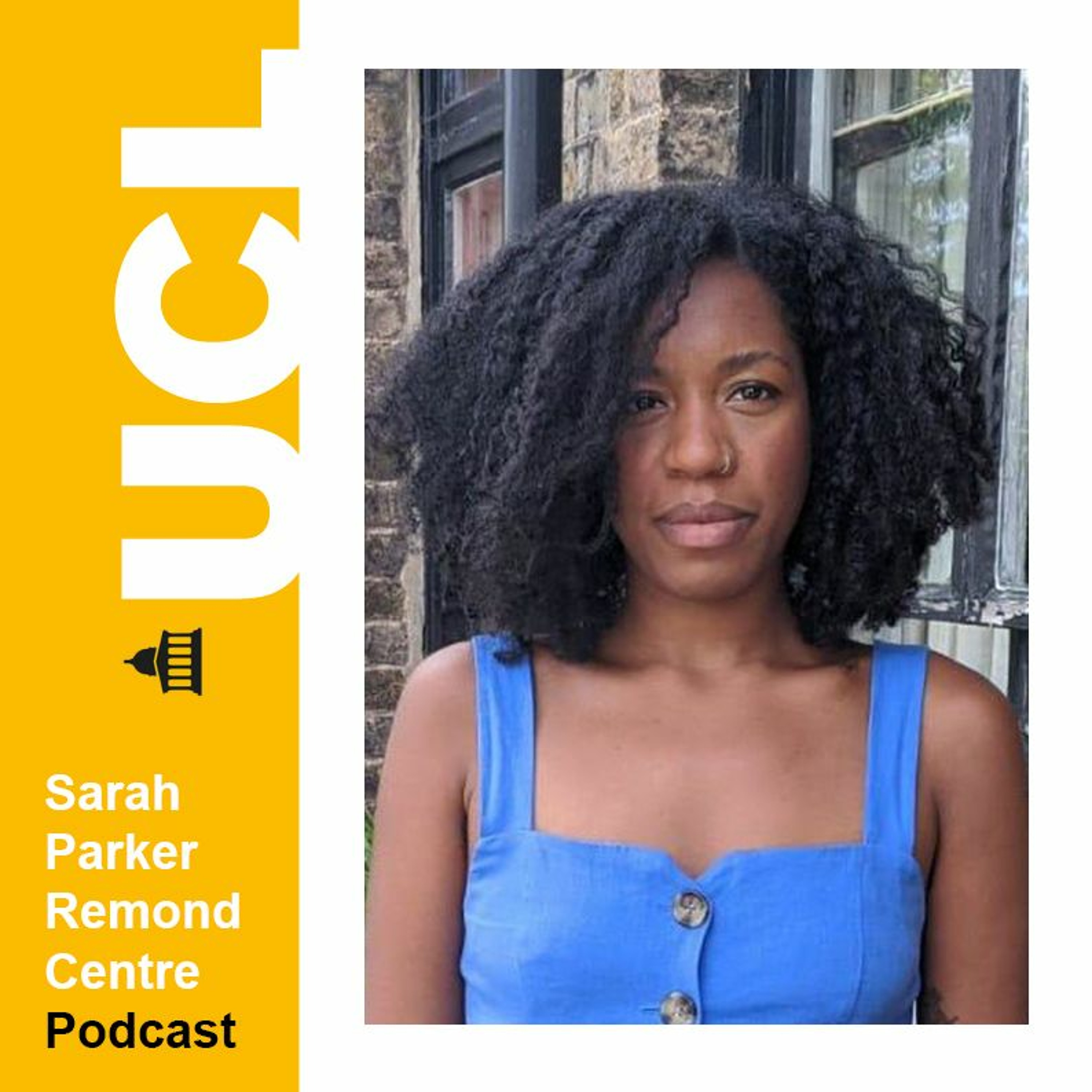 UCL Institute of Advanced StudiesSPRC In conversation with Gracie Mae BradleyLuke de Noronha is joined by Gracie Mae Bradley, policy expert, writer and campaigner, and Interim Director of Liberty. Involved in the wider grassroots movement for social justice in the UK and having written extensively on state racism and civil liberties, Gracie joins us to speak about the state response and policing throughout the pandemic, race disproportionality, and the trend towards pre-criminalisation.
Transcript: www.ucl.ac.uk/racism-racialisation/transcript-conversation-gracie-mae-bradley
This conversation was recorded on 24th June 2021
Speakers: Luke de Noronha, Lecturer in Race, Ethnicity & Postcolonial Studies, UCL Sarah Parker Remond Centre // Gracie Mae Bradley, policy expert, writer and campaigner, and...2021-08-1139 min
UCL Institute of Advanced StudiesSPRC In conversation with Gracie Mae BradleyLuke de Noronha is joined by Gracie Mae Bradley, policy expert, writer and campaigner, and Interim Director of Liberty. Involved in the wider grassroots movement for social justice in the UK and having written extensively on state racism and civil liberties, Gracie joins us to speak about the state response and policing throughout the pandemic, race disproportionality, and the trend towards pre-criminalisation.
Transcript: www.ucl.ac.uk/racism-racialisation/transcript-conversation-gracie-mae-bradley
This conversation was recorded on 24th June 2021
Speakers: Luke de Noronha, Lecturer in Race, Ethnicity & Postcolonial Studies, UCL Sarah Parker Remond Centre // Gracie Mae Bradley, policy expert, writer and campaigner, and...2021-08-1139 min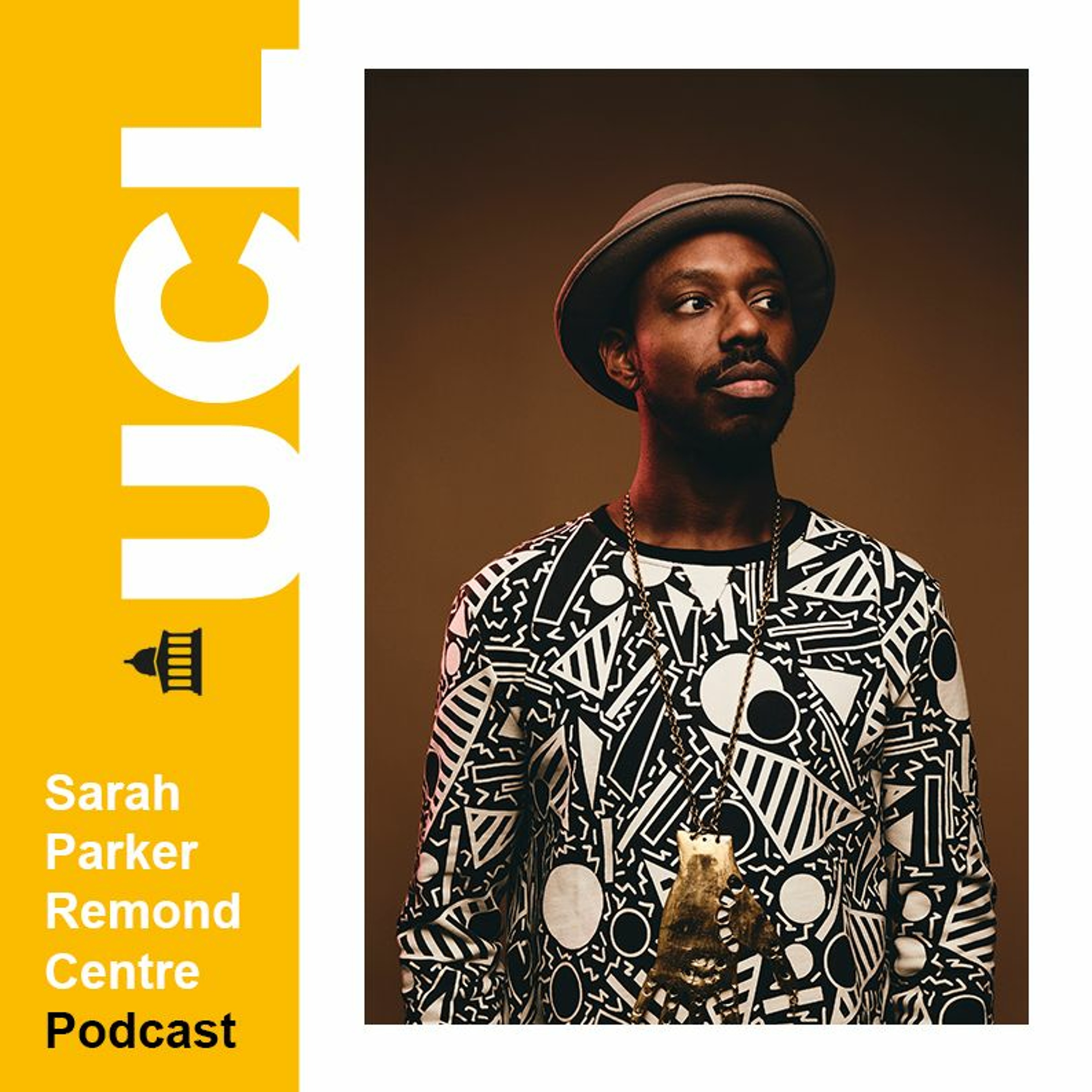 UCL Institute of Advanced StudiesSPRC In conversation with Shabaka HutchingsShabaka Hutchings, jazz musician and band leader, joins us to talk about his new album with Sons of Kemet, 'Black to the Future', delving into transcending from the individual to the collective state, and the healing and spiritual force of music. Discussing his musical influences and progression, Shabaka reflects on how “…being in a metropole makes you think that you understand what culturally is vital in the world, where actually we aren’t in the centre of the world, musically or socially, and there are cultures that are formulating real vital relations between music and living.”
Transcript: www.ucl.ac.uk/racis...2021-07-2842 min
UCL Institute of Advanced StudiesSPRC In conversation with Shabaka HutchingsShabaka Hutchings, jazz musician and band leader, joins us to talk about his new album with Sons of Kemet, 'Black to the Future', delving into transcending from the individual to the collective state, and the healing and spiritual force of music. Discussing his musical influences and progression, Shabaka reflects on how “…being in a metropole makes you think that you understand what culturally is vital in the world, where actually we aren’t in the centre of the world, musically or socially, and there are cultures that are formulating real vital relations between music and living.”
Transcript: www.ucl.ac.uk/racis...2021-07-2842 min UCL Sarah Parker Remond Centre PodcastIn conversation with Shabaka HutchingsShabaka Hutchings, jazz musician and band leader, joins us to talk about his new album with Sons of Kemet, Black to the Future, delving into transcending from the individual to the collective state, and the healing and spiritual force of music. Discussing his musical influences and progression, Shabaka reflects on how “…being in a metropole makes you think that you understand what culturally is vital in the world, where actually we aren’t in the centre of the world, musically or socially, and there are cultures that are formulating real vital relations between music and living.” Transcr...2021-07-2842 min
UCL Sarah Parker Remond Centre PodcastIn conversation with Shabaka HutchingsShabaka Hutchings, jazz musician and band leader, joins us to talk about his new album with Sons of Kemet, Black to the Future, delving into transcending from the individual to the collective state, and the healing and spiritual force of music. Discussing his musical influences and progression, Shabaka reflects on how “…being in a metropole makes you think that you understand what culturally is vital in the world, where actually we aren’t in the centre of the world, musically or socially, and there are cultures that are formulating real vital relations between music and living.” Transcr...2021-07-2842 min UCL Sarah Parker Remond Centre PodcastIn conversation with Adam Elliott-CooperAdam Elliott-Cooper joins Luke de Noronha to talk about resistance to racist state violence in Britain, and how this resistance is shaped by histories of imperialism and anti-imperialism. Discussing his book, Black Resistance to British Policing (MUP, 2021), Adam situates current mobilisations in a longer history of anti-racist resistance in the UK, and explores the politics of abolitionism and anti-colonial struggles in the context of Black Britain and Black politics in the 21st century. Transcript: www.ucl.ac.uk/racism-racialisation/transcript-conversation-adam-elliott-cooperThis conversation was recorded on 26th May 2021 Speakers: L...2021-07-0837 min
UCL Sarah Parker Remond Centre PodcastIn conversation with Adam Elliott-CooperAdam Elliott-Cooper joins Luke de Noronha to talk about resistance to racist state violence in Britain, and how this resistance is shaped by histories of imperialism and anti-imperialism. Discussing his book, Black Resistance to British Policing (MUP, 2021), Adam situates current mobilisations in a longer history of anti-racist resistance in the UK, and explores the politics of abolitionism and anti-colonial struggles in the context of Black Britain and Black politics in the 21st century. Transcript: www.ucl.ac.uk/racism-racialisation/transcript-conversation-adam-elliott-cooperThis conversation was recorded on 26th May 2021 Speakers: L...2021-07-0837 min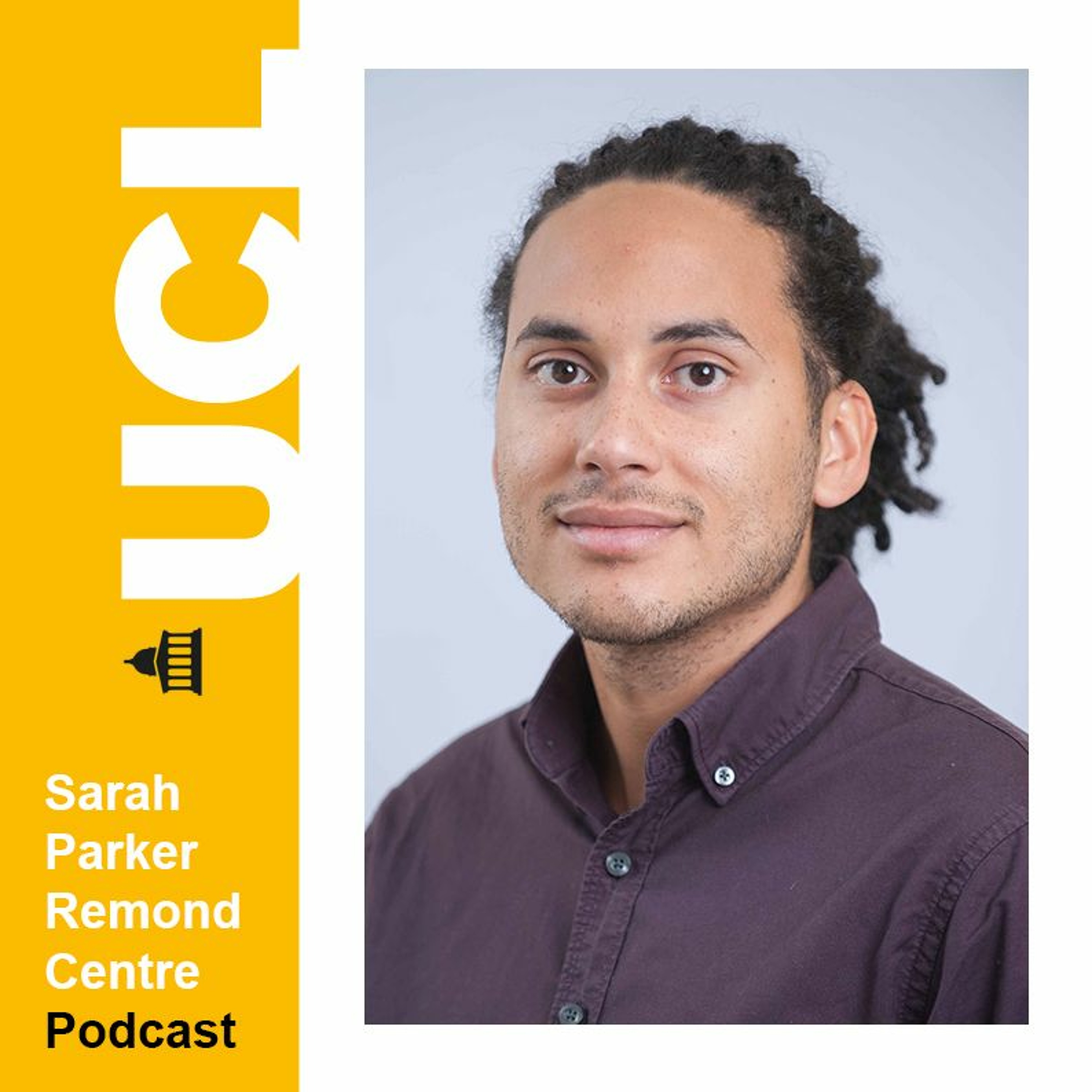 UCL Institute of Advanced StudiesSPRC In conversation with Adam Elliott-CooperAdam Elliott-Cooper joins Luke de Noronha to talk about resistance to racist state violence in Britain, and how this resistance is shaped by histories of imperialism and anti-imperialism. Discussing his book, 'Black Resistance to British Policing' (MUP, 2021), Adam situates current mobilisations in a longer history of anti-racist resistance in the UK, and explores the politics of abolitionism and anti-colonial struggles in the context of Black Britain and Black politics in the 21st century.
Transcript: www.ucl.ac.uk/racism-racialisation/transcript-conversation-adam-elliott-cooper
This conversation was recorded on 26th May 2021
Speakers: Luke de Noronha, Lecturer in Race, Ethnicity & Postcolonial Studies, UCL Sarah Parker...2021-07-0837 min
UCL Institute of Advanced StudiesSPRC In conversation with Adam Elliott-CooperAdam Elliott-Cooper joins Luke de Noronha to talk about resistance to racist state violence in Britain, and how this resistance is shaped by histories of imperialism and anti-imperialism. Discussing his book, 'Black Resistance to British Policing' (MUP, 2021), Adam situates current mobilisations in a longer history of anti-racist resistance in the UK, and explores the politics of abolitionism and anti-colonial struggles in the context of Black Britain and Black politics in the 21st century.
Transcript: www.ucl.ac.uk/racism-racialisation/transcript-conversation-adam-elliott-cooper
This conversation was recorded on 26th May 2021
Speakers: Luke de Noronha, Lecturer in Race, Ethnicity & Postcolonial Studies, UCL Sarah Parker...2021-07-0837 min UCL Sarah Parker Remond Centre PodcastIn conversation with Robbie ShilliamLuke de Noronha welcomes Robbie Shilliam, Professor of International Relations at Johns Hopkins University, to discuss his recent book Decolonizing Politics: An Introduction (Polity Press, 2021). Across his writing, Robbie’s made several critical interventions on questions surrounding race, colonialism and global order, and in Decolonizing Politics he methodologically looks at what it might mean to decolonize political science by reconceptualizing and reimagining the logics of the field.Transcript: www.ucl.ac.uk/racism-racialisation/transcript-conversation-robbie-shilliamThis conversation was recorded on 17th May 2021Speakers: Luke de Noronha, Lecturer in Race, Ethnicity & Postcolonial St...2021-06-2335 min
UCL Sarah Parker Remond Centre PodcastIn conversation with Robbie ShilliamLuke de Noronha welcomes Robbie Shilliam, Professor of International Relations at Johns Hopkins University, to discuss his recent book Decolonizing Politics: An Introduction (Polity Press, 2021). Across his writing, Robbie’s made several critical interventions on questions surrounding race, colonialism and global order, and in Decolonizing Politics he methodologically looks at what it might mean to decolonize political science by reconceptualizing and reimagining the logics of the field.Transcript: www.ucl.ac.uk/racism-racialisation/transcript-conversation-robbie-shilliamThis conversation was recorded on 17th May 2021Speakers: Luke de Noronha, Lecturer in Race, Ethnicity & Postcolonial St...2021-06-2335 min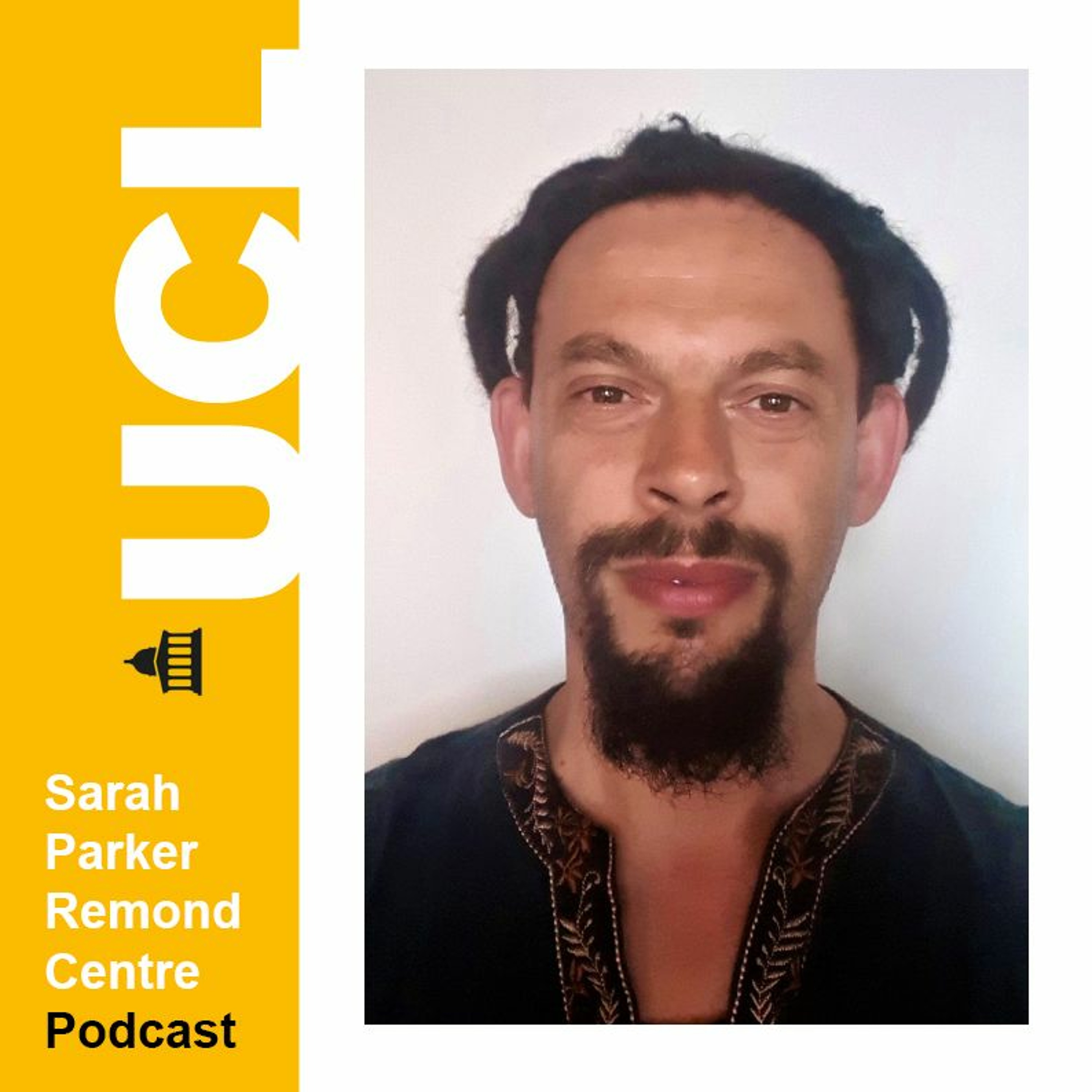 UCL Institute of Advanced StudiesSPRC In conversation with Robbie ShilliamLuke de Noronha welcomes Robbie Shilliam, Professor of International Relations at Johns Hopkins University, to discuss his recent book 'Decolonizing Politics: An Introduction' (Polity Press, 2021). Across his writing, Robbie’s made several critical interventions on questions surrounding race, colonialism and global order, and in 'Decolonizing Politics' he methodologically looks at what it might mean to decolonize political science by reconceptualizing and reimagining the logics of the field.
Transcript: www.ucl.ac.uk/racism-racialisation/transcript-conversation-robbie-shilliam
This conversation was recorded on 17th May 2021
Speakers: Luke de Noronha, Lecturer in Race, Ethnicity & Postcolonial Studies, UCL Sarah Parker Remond Centre // Robbie Shilliam, Professor of In...2021-06-2335 min
UCL Institute of Advanced StudiesSPRC In conversation with Robbie ShilliamLuke de Noronha welcomes Robbie Shilliam, Professor of International Relations at Johns Hopkins University, to discuss his recent book 'Decolonizing Politics: An Introduction' (Polity Press, 2021). Across his writing, Robbie’s made several critical interventions on questions surrounding race, colonialism and global order, and in 'Decolonizing Politics' he methodologically looks at what it might mean to decolonize political science by reconceptualizing and reimagining the logics of the field.
Transcript: www.ucl.ac.uk/racism-racialisation/transcript-conversation-robbie-shilliam
This conversation was recorded on 17th May 2021
Speakers: Luke de Noronha, Lecturer in Race, Ethnicity & Postcolonial Studies, UCL Sarah Parker Remond Centre // Robbie Shilliam, Professor of In...2021-06-2335 min UCL Sarah Parker Remond Centre PodcastWhat Does Eugenics Mean To Us? Episode 6: People, people, peopleOne of the ways in which eugenics became incorporated into mainstream society all around the world was through the birth control movement. Early twentieth-century birth control pioneers like Marie Stopes and Margaret Sanger were also ardent eugenicists, and their motives were bound up with imperial concerns about, as eugenicists saw it, the deterioration of the 'white race'. Their arguments were taken up in the cause of another imperialist concern, which was the growing population of non-white people in the colonies. In this episode, Subhadra and her guests consider how we can confront historical and contemporary eugenics practices in the...2021-05-1230 min
UCL Sarah Parker Remond Centre PodcastWhat Does Eugenics Mean To Us? Episode 6: People, people, peopleOne of the ways in which eugenics became incorporated into mainstream society all around the world was through the birth control movement. Early twentieth-century birth control pioneers like Marie Stopes and Margaret Sanger were also ardent eugenicists, and their motives were bound up with imperial concerns about, as eugenicists saw it, the deterioration of the 'white race'. Their arguments were taken up in the cause of another imperialist concern, which was the growing population of non-white people in the colonies. In this episode, Subhadra and her guests consider how we can confront historical and contemporary eugenics practices in the...2021-05-1230 min UCL Institute of Advanced StudiesWhat Does Eugenics Mean To Us? Episode 6: People, people, peopleOne of the ways in which eugenics became incorporated into mainstream society all around the world was through the birth control movement. Early twentieth-century birth control pioneers like Marie Stopes and Margaret Sanger were also ardent eugenicists, and their motives were bound up with imperial concerns about, as eugenicists saw it, the deterioration of the 'white race'. Their arguments were taken up in the cause of another imperialist concern, which was the growing population of non-white people in the colonies. In this episode, Subhadra and her guests consider how we can confront historical and contemporary eugenics practices in the continuing...2021-05-1230 min
UCL Institute of Advanced StudiesWhat Does Eugenics Mean To Us? Episode 6: People, people, peopleOne of the ways in which eugenics became incorporated into mainstream society all around the world was through the birth control movement. Early twentieth-century birth control pioneers like Marie Stopes and Margaret Sanger were also ardent eugenicists, and their motives were bound up with imperial concerns about, as eugenicists saw it, the deterioration of the 'white race'. Their arguments were taken up in the cause of another imperialist concern, which was the growing population of non-white people in the colonies. In this episode, Subhadra and her guests consider how we can confront historical and contemporary eugenics practices in the continuing...2021-05-1230 min UCL Sarah Parker Remond Centre PodcastWhat Does Eugenics Mean To Us? Episode 5: Race and spaceThe places and spaces we inhabit profoundly affect our lives and how we live them in ways we need to think about more critically. At the launch of the project that is the subject of today's episode, Kamna Patel spoke to how people have been affected by the Covid-19 pandemic by saying "It is not who we are and what we eat that will kill us, but where we live and where we work." Subhadra’s guests in this episode came together to write a curriculum to help students and researchers of the built environment be more mindful about th...2021-05-1229 min
UCL Sarah Parker Remond Centre PodcastWhat Does Eugenics Mean To Us? Episode 5: Race and spaceThe places and spaces we inhabit profoundly affect our lives and how we live them in ways we need to think about more critically. At the launch of the project that is the subject of today's episode, Kamna Patel spoke to how people have been affected by the Covid-19 pandemic by saying "It is not who we are and what we eat that will kill us, but where we live and where we work." Subhadra’s guests in this episode came together to write a curriculum to help students and researchers of the built environment be more mindful about th...2021-05-1229 min UCL Institute of Advanced StudiesWhat Does Eugenics Mean To Us? Episode 5: Race and spaceThe places and spaces we inhabit profoundly affect our lives and how we live them in ways we need to think about more critically. At the launch of the project that is the subject of today's episode, Kamna Patel spoke to how people have been affected by the Covid-19 pandemic by saying "It is not who we are and what we eat that will kill us, but where we live and where we work." Subhadra’s guests in this episode came together to write a curriculum to help students and researchers of the built environment be more mindful about the wa...2021-05-1229 min
UCL Institute of Advanced StudiesWhat Does Eugenics Mean To Us? Episode 5: Race and spaceThe places and spaces we inhabit profoundly affect our lives and how we live them in ways we need to think about more critically. At the launch of the project that is the subject of today's episode, Kamna Patel spoke to how people have been affected by the Covid-19 pandemic by saying "It is not who we are and what we eat that will kill us, but where we live and where we work." Subhadra’s guests in this episode came together to write a curriculum to help students and researchers of the built environment be more mindful about the wa...2021-05-1229 min UCL Sarah Parker Remond Centre PodcastWhat Does Eugenics Mean To Us? Episode 4: Confronting ableism in eugenicsAlong with being inherently racist, eugenics was also an inherently ableist concern. In this episode Subhadra speaks to experts in the field of disability studies to explore the ways in which power delineates difference between people, and how this relates to the much broader structures of our society, as well as how we think and perceive of ourselves.Transcript: www.ucl.ac.uk/racism-racialisation/transcript-what-does-eugenics-mean-us-episode-4This conversation was recorded on 14th April 2021Host: Subhadra Das, Critical Eugenics Researcher, UCL Sarah Parker Remond CentreGuests: Nicole Brown is Lect...2021-05-1228 min
UCL Sarah Parker Remond Centre PodcastWhat Does Eugenics Mean To Us? Episode 4: Confronting ableism in eugenicsAlong with being inherently racist, eugenics was also an inherently ableist concern. In this episode Subhadra speaks to experts in the field of disability studies to explore the ways in which power delineates difference between people, and how this relates to the much broader structures of our society, as well as how we think and perceive of ourselves.Transcript: www.ucl.ac.uk/racism-racialisation/transcript-what-does-eugenics-mean-us-episode-4This conversation was recorded on 14th April 2021Host: Subhadra Das, Critical Eugenics Researcher, UCL Sarah Parker Remond CentreGuests: Nicole Brown is Lect...2021-05-1228 min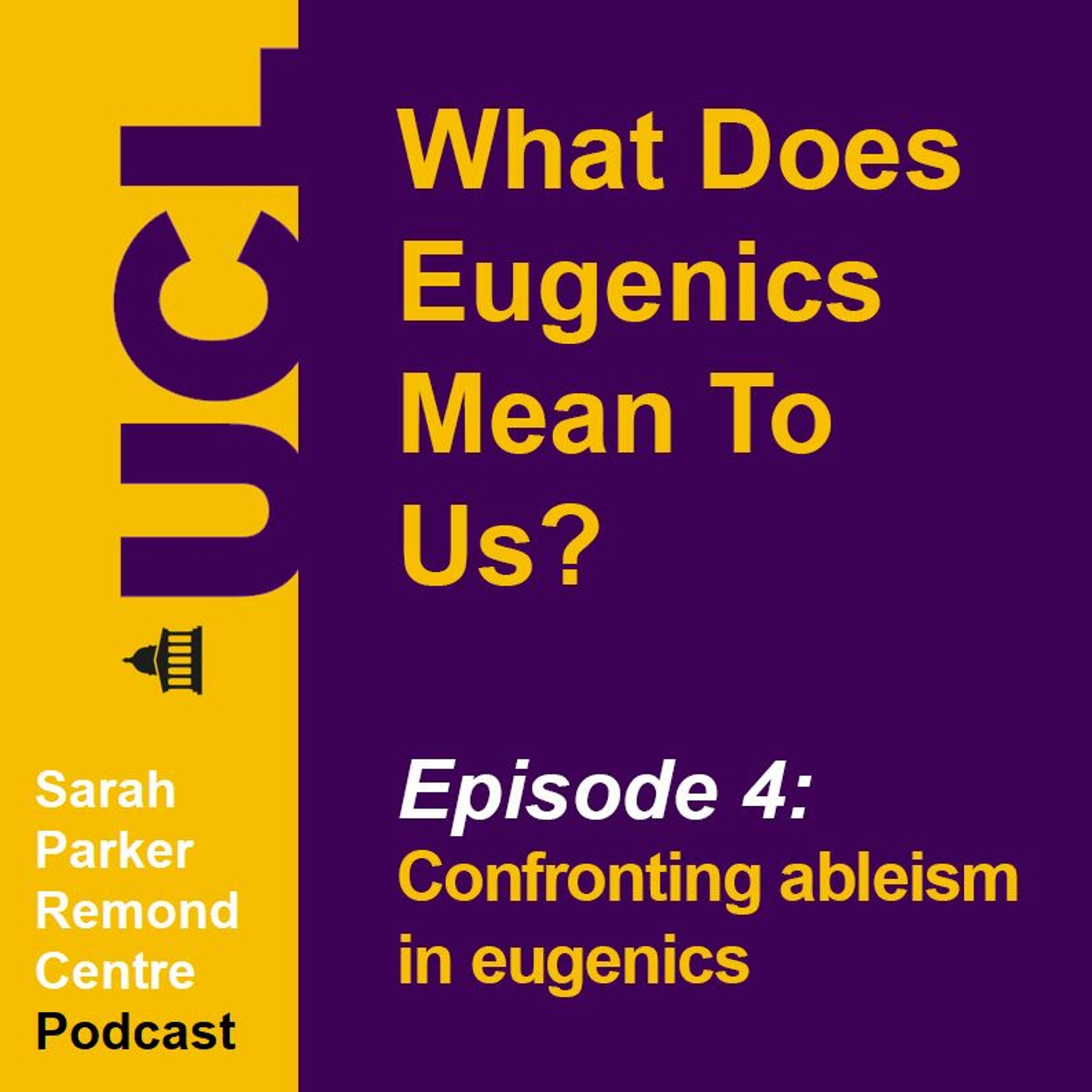 UCL Institute of Advanced StudiesWhat Does Eugenics Mean To Us? Episode 4: Confronting ableism in eugenicsAlong with being inherently racist, eugenics was also an inherently ableist concern. In this episode Subhadra speaks to experts in the field of disability studies to explore the ways in which power delineates difference between people, and how this relates to the much broader structures of our society, as well as how we think and perceive of ourselves.
Transcript: www.ucl.ac.uk/racism-racialisation/transcript-what-does-eugenics-mean-us-episode-4
This conversation was recorded on 14th April 2021
Host: Subhadra Das, Critical Eugenics Researcher, UCL Sarah Parker Remond Centre
Guests: Nicole Brown is Lecturer in Education at the Institute of Education here at UCL, and the...2021-05-1228 min
UCL Institute of Advanced StudiesWhat Does Eugenics Mean To Us? Episode 4: Confronting ableism in eugenicsAlong with being inherently racist, eugenics was also an inherently ableist concern. In this episode Subhadra speaks to experts in the field of disability studies to explore the ways in which power delineates difference between people, and how this relates to the much broader structures of our society, as well as how we think and perceive of ourselves.
Transcript: www.ucl.ac.uk/racism-racialisation/transcript-what-does-eugenics-mean-us-episode-4
This conversation was recorded on 14th April 2021
Host: Subhadra Das, Critical Eugenics Researcher, UCL Sarah Parker Remond Centre
Guests: Nicole Brown is Lecturer in Education at the Institute of Education here at UCL, and the...2021-05-1228 min UCL Sarah Parker Remond Centre PodcastWhat Does Eugenics Mean To Us? Episode 3: The legacy of Cyril BurtTwo of the fields where eugenic thinking had an enormous influence, and where some of its legacies continue to hold sway are Psychology and Education Studies. An influential figure in both those fields was a former UCL Professor of Psychology, Sir Cyril Burt. In this episode Subhadra and her guests wade through Burt’s legacy and reflect on how to confront and confound eugenic thinking in both these fields.Transcript: www.ucl.ac.uk/racism-racialisation/transcript-what-does-eugenics-mean-us-episode-3This conversation was recorded on 31st March 2021Host: Subhadra Das, Critical Eugenics Researcher, UCL Sara...2021-05-1232 min
UCL Sarah Parker Remond Centre PodcastWhat Does Eugenics Mean To Us? Episode 3: The legacy of Cyril BurtTwo of the fields where eugenic thinking had an enormous influence, and where some of its legacies continue to hold sway are Psychology and Education Studies. An influential figure in both those fields was a former UCL Professor of Psychology, Sir Cyril Burt. In this episode Subhadra and her guests wade through Burt’s legacy and reflect on how to confront and confound eugenic thinking in both these fields.Transcript: www.ucl.ac.uk/racism-racialisation/transcript-what-does-eugenics-mean-us-episode-3This conversation was recorded on 31st March 2021Host: Subhadra Das, Critical Eugenics Researcher, UCL Sara...2021-05-1232 min UCL Institute of Advanced StudiesWhat Does Eugenics Mean To Us? Episode 3: The legacy of Cyril BurtTwo of the fields where eugenic thinking had an enormous influence, and where some of its legacies continue to hold sway are Psychology and Education Studies. An influential figure in both those fields was a former UCL Professor of Psychology, Sir Cyril Burt. In this episode Subhadra and her guests wade through Burt’s legacy and reflect on how to confront and confound eugenic thinking in both these fields.
Transcript: www.ucl.ac.uk/racism-racialisation/transcript-what-does-eugenics-mean-us-episode-3
This conversation was recorded on 31st March 2021
Host: Subhadra Das, Critical Eugenics Researcher, UCL Sarah Parker Remond Centre
Guests: If you believe what you re...2021-05-1232 min
UCL Institute of Advanced StudiesWhat Does Eugenics Mean To Us? Episode 3: The legacy of Cyril BurtTwo of the fields where eugenic thinking had an enormous influence, and where some of its legacies continue to hold sway are Psychology and Education Studies. An influential figure in both those fields was a former UCL Professor of Psychology, Sir Cyril Burt. In this episode Subhadra and her guests wade through Burt’s legacy and reflect on how to confront and confound eugenic thinking in both these fields.
Transcript: www.ucl.ac.uk/racism-racialisation/transcript-what-does-eugenics-mean-us-episode-3
This conversation was recorded on 31st March 2021
Host: Subhadra Das, Critical Eugenics Researcher, UCL Sarah Parker Remond Centre
Guests: If you believe what you re...2021-05-1232 min UCL Sarah Parker Remond Centre PodcastWhat Does Eugenics Mean To Us? Episode 2: Curating HeadsThis episode documents and commemorates a collaborative research project at UCL, which brought together geneticists, historians, archaeologists and museum curators to consider how science mediates the dilemma of death. It was called Curating Heads and its scientific aims were to use the latest techniques in Ancient DNA analysis to sequence the genomes of two historic figures at UCL: the philosopher Jeremy Bentham and the archaeologist, William Matthew Flinders Petrie. The exhibition that grew out of this research showcased this work and also critically examined the legacies of eugenics in genetics and archaeology. Join Subhadra and her guests as they re...2021-05-1230 min
UCL Sarah Parker Remond Centre PodcastWhat Does Eugenics Mean To Us? Episode 2: Curating HeadsThis episode documents and commemorates a collaborative research project at UCL, which brought together geneticists, historians, archaeologists and museum curators to consider how science mediates the dilemma of death. It was called Curating Heads and its scientific aims were to use the latest techniques in Ancient DNA analysis to sequence the genomes of two historic figures at UCL: the philosopher Jeremy Bentham and the archaeologist, William Matthew Flinders Petrie. The exhibition that grew out of this research showcased this work and also critically examined the legacies of eugenics in genetics and archaeology. Join Subhadra and her guests as they re...2021-05-1230 min UCL Institute of Advanced StudiesWhat Does Eugenics Mean To Us? Episode 2: Curating HeadsThis episode documents and commemorates a collaborative research project at UCL, which brought together geneticists, historians, archaeologists and museum curators to consider how science mediates the dilemma of death. It was called Curating Heads and its scientific aims were to use the latest techniques in Ancient DNA analysis to sequence the genomes of two historic figures at UCL: the philosopher Jeremy Bentham and the archaeologist, William Matthew Flinders Petrie. The exhibition that grew out of this research showcased this work and also critically examined the legacies of eugenics in genetics and archaeology. Join Subhadra and her guests as they reminisce...2021-05-1230 min
UCL Institute of Advanced StudiesWhat Does Eugenics Mean To Us? Episode 2: Curating HeadsThis episode documents and commemorates a collaborative research project at UCL, which brought together geneticists, historians, archaeologists and museum curators to consider how science mediates the dilemma of death. It was called Curating Heads and its scientific aims were to use the latest techniques in Ancient DNA analysis to sequence the genomes of two historic figures at UCL: the philosopher Jeremy Bentham and the archaeologist, William Matthew Flinders Petrie. The exhibition that grew out of this research showcased this work and also critically examined the legacies of eugenics in genetics and archaeology. Join Subhadra and her guests as they reminisce...2021-05-1230 min UCL Sarah Parker Remond Centre PodcastWhat Does Eugenics Mean To Us? Episode 1: The stories we tell are powerfulIt has often been argued that eugenicists were not real scientists, but almost all of their ideas were grounded in late nineteenth and early twentieth-century scientific discourse. Science is a social and a socialised endeavour. Scientists are people, and their work is embodied in the social and historical contexts in which they live. In this episode, Subhadra speaks to science historians and communicators who are experts in exploring and uncovering the stories around our science. Together they look at how eugenic thinking can be perpetuated, but also confronted by the stories we tell.Transcript: www.ucl...2021-05-1234 min
UCL Sarah Parker Remond Centre PodcastWhat Does Eugenics Mean To Us? Episode 1: The stories we tell are powerfulIt has often been argued that eugenicists were not real scientists, but almost all of their ideas were grounded in late nineteenth and early twentieth-century scientific discourse. Science is a social and a socialised endeavour. Scientists are people, and their work is embodied in the social and historical contexts in which they live. In this episode, Subhadra speaks to science historians and communicators who are experts in exploring and uncovering the stories around our science. Together they look at how eugenic thinking can be perpetuated, but also confronted by the stories we tell.Transcript: www.ucl...2021-05-1234 min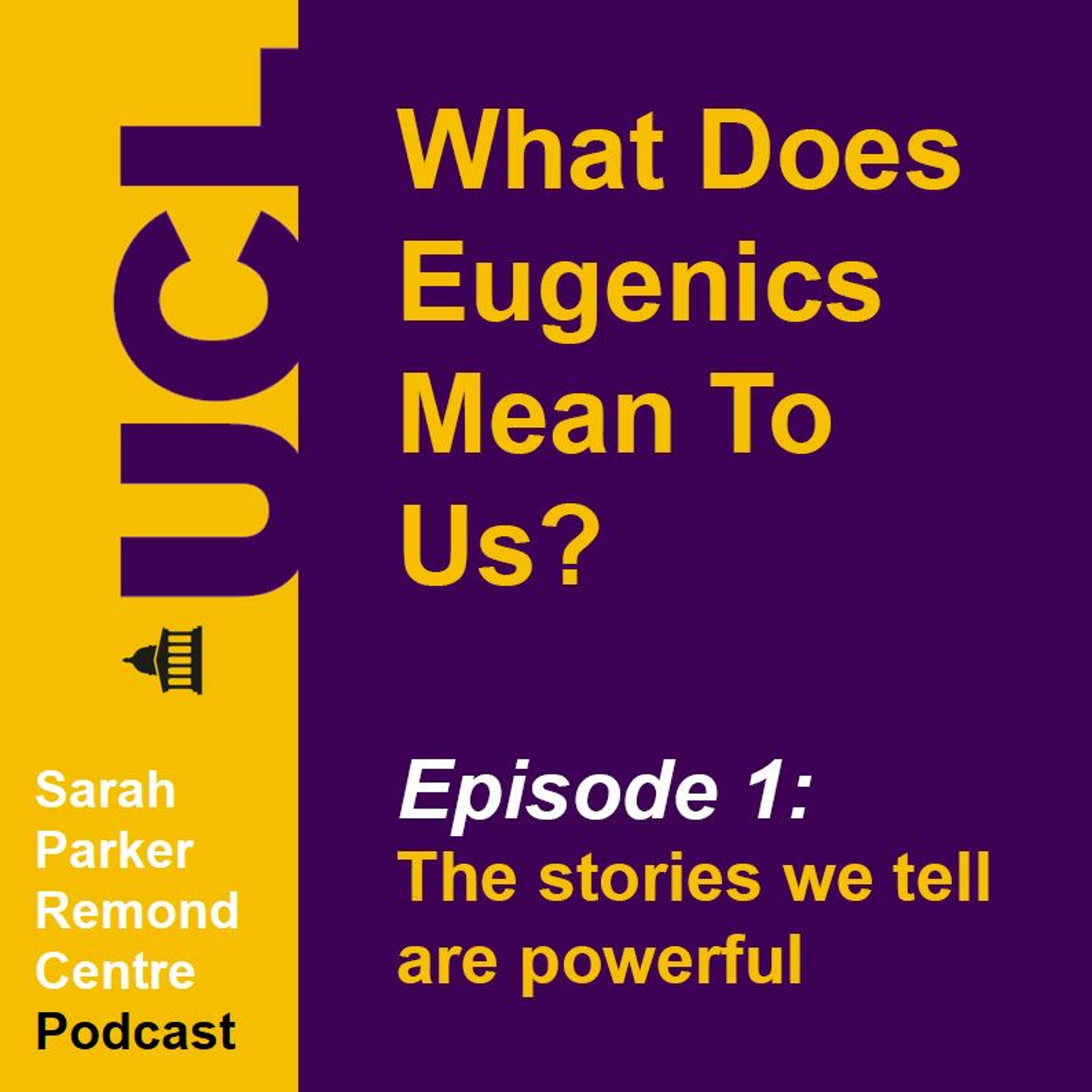 UCL Institute of Advanced StudiesWhat Does Eugenics Mean To Us? Episode 1: The stories we tell are powerfulIt has often been argued that eugenicists were not real scientists, but almost all of their ideas were grounded in late nineteenth and early twentieth-century scientific discourse. Science is a social and a socialised endeavour. Scientists are people, and their work is embodied in the social and historical contexts in which they live. In this episode, Subhadra speaks to science historians and communicators who are experts in exploring and uncovering the stories around our science. Together they look at how eugenic thinking can be perpetuated, but also confronted by the stories we tell.
Transcript: www.ucl.ac.uk/racism-racialisation/transcript-what-does-eugenics-mean-us-episode-1
...2021-05-1234 min
UCL Institute of Advanced StudiesWhat Does Eugenics Mean To Us? Episode 1: The stories we tell are powerfulIt has often been argued that eugenicists were not real scientists, but almost all of their ideas were grounded in late nineteenth and early twentieth-century scientific discourse. Science is a social and a socialised endeavour. Scientists are people, and their work is embodied in the social and historical contexts in which they live. In this episode, Subhadra speaks to science historians and communicators who are experts in exploring and uncovering the stories around our science. Together they look at how eugenic thinking can be perpetuated, but also confronted by the stories we tell.
Transcript: www.ucl.ac.uk/racism-racialisation/transcript-what-does-eugenics-mean-us-episode-1
...2021-05-1234 min UCL Sarah Parker Remond Centre PodcastIn conversation with Angela SainiPaige Patchin is joined by science journalist, Angela Saini, for a conversation on her book Superior: The Return of Race Science, discussing the resurgence of race science, pseudoscientific racial myths and problematic narratives of human difference. Angela looks at how the changing figure of the Neanderthal is an example of how the circle of humanity can be used as tool of racism in science, and discusses the implications of race science in the context of the Covid-19 pandemic.This conversation was recorded on 22nd March 2021Speakers: Paige Patchin, Lecturer in Race, Ethnicity & Postcolonial Studi...2021-03-3128 min
UCL Sarah Parker Remond Centre PodcastIn conversation with Angela SainiPaige Patchin is joined by science journalist, Angela Saini, for a conversation on her book Superior: The Return of Race Science, discussing the resurgence of race science, pseudoscientific racial myths and problematic narratives of human difference. Angela looks at how the changing figure of the Neanderthal is an example of how the circle of humanity can be used as tool of racism in science, and discusses the implications of race science in the context of the Covid-19 pandemic.This conversation was recorded on 22nd March 2021Speakers: Paige Patchin, Lecturer in Race, Ethnicity & Postcolonial Studi...2021-03-3128 min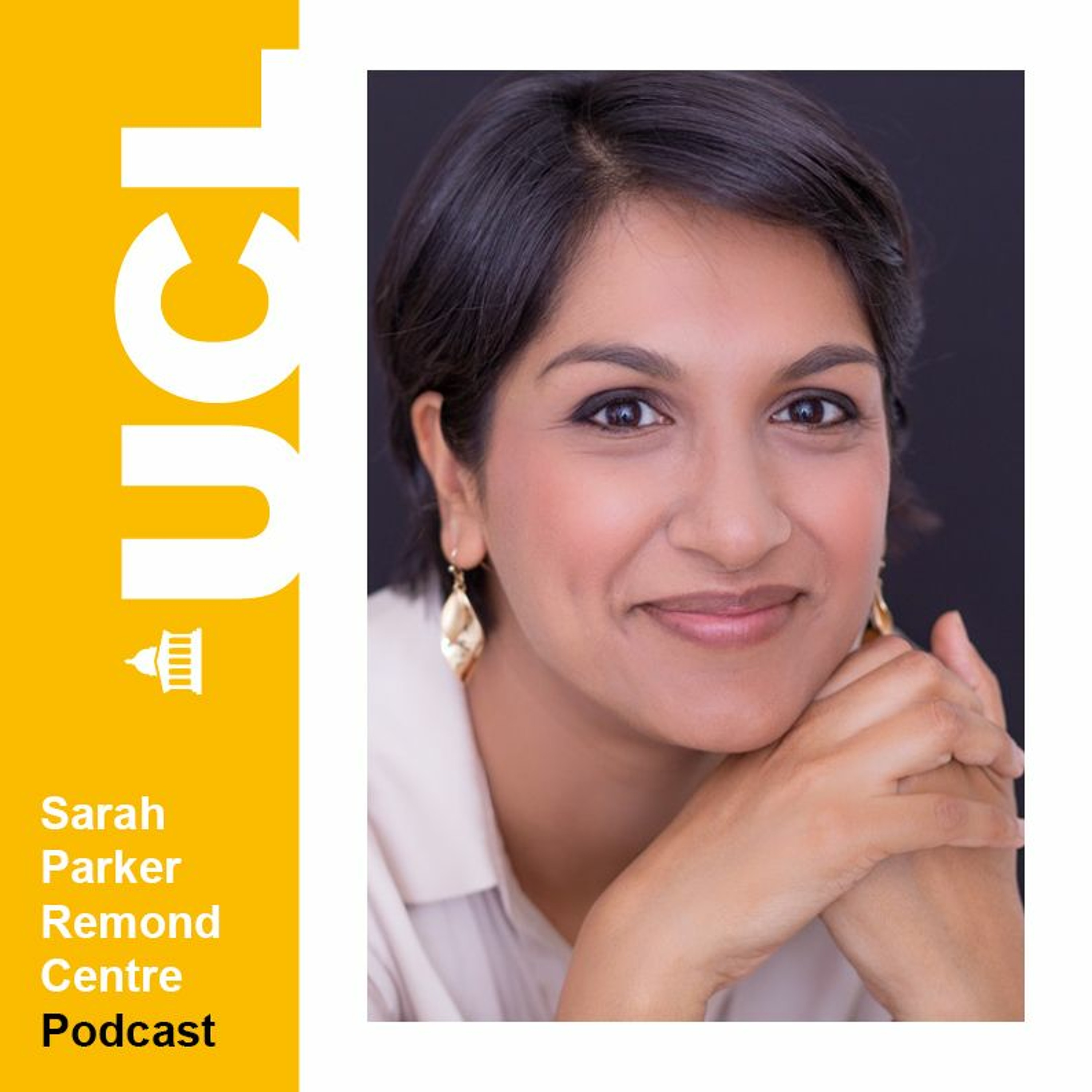 UCL Institute of Advanced StudiesSPRC In conversation with Angela SainiPaige Patchin is joined by science journalist, Angela Saini, for a conversation on her book 'Superior: The Return of Race Science', discussing the resurgence of race science, pseudoscientific racial myths and problematic narratives of human difference. Angela looks at how the changing figure of the Neanderthal is an example of how the circle of humanity can be used as tool of racism in science, and discusses the implications of race science in the context of the Covid-19 pandemic.
This conversation was recorded on 22nd March 2021
Speakers: Paige Patchin, Lecturer in Race, Ethnicity & Postcolonial Studies, UCL Sarah Parker Remond Centre // Angela...2021-03-3128 min
UCL Institute of Advanced StudiesSPRC In conversation with Angela SainiPaige Patchin is joined by science journalist, Angela Saini, for a conversation on her book 'Superior: The Return of Race Science', discussing the resurgence of race science, pseudoscientific racial myths and problematic narratives of human difference. Angela looks at how the changing figure of the Neanderthal is an example of how the circle of humanity can be used as tool of racism in science, and discusses the implications of race science in the context of the Covid-19 pandemic.
This conversation was recorded on 22nd March 2021
Speakers: Paige Patchin, Lecturer in Race, Ethnicity & Postcolonial Studies, UCL Sarah Parker Remond Centre // Angela...2021-03-3128 min UCL Sarah Parker Remond Centre PodcastIn conversation with Nicholas De GenovaNicholas De Genova joins Luke de Noronha for a conversation about the relationship between bordering, migration and the pandemic, and his current thinking around The Migrant Metropolis. Nicholas discusses why it’s important to think of migrant crises as racial crises, recapturing the subjectivity of migration, and the autonomy of migration as a framework.Transcript: www.ucl.ac.uk/racism-racialisation/transcript-conversation-nicholas-de-genovaThis conversation was recorded on 8th February 2021Speakers: Luke de Noronha, Lecturer in Race, Ethnicity & Postcolonial Studies, UCL Sarah Parker Remond Centre // Nicholas De Genova, Professor and Chair of the Dep...2021-03-1032 min
UCL Sarah Parker Remond Centre PodcastIn conversation with Nicholas De GenovaNicholas De Genova joins Luke de Noronha for a conversation about the relationship between bordering, migration and the pandemic, and his current thinking around The Migrant Metropolis. Nicholas discusses why it’s important to think of migrant crises as racial crises, recapturing the subjectivity of migration, and the autonomy of migration as a framework.Transcript: www.ucl.ac.uk/racism-racialisation/transcript-conversation-nicholas-de-genovaThis conversation was recorded on 8th February 2021Speakers: Luke de Noronha, Lecturer in Race, Ethnicity & Postcolonial Studies, UCL Sarah Parker Remond Centre // Nicholas De Genova, Professor and Chair of the Dep...2021-03-1032 min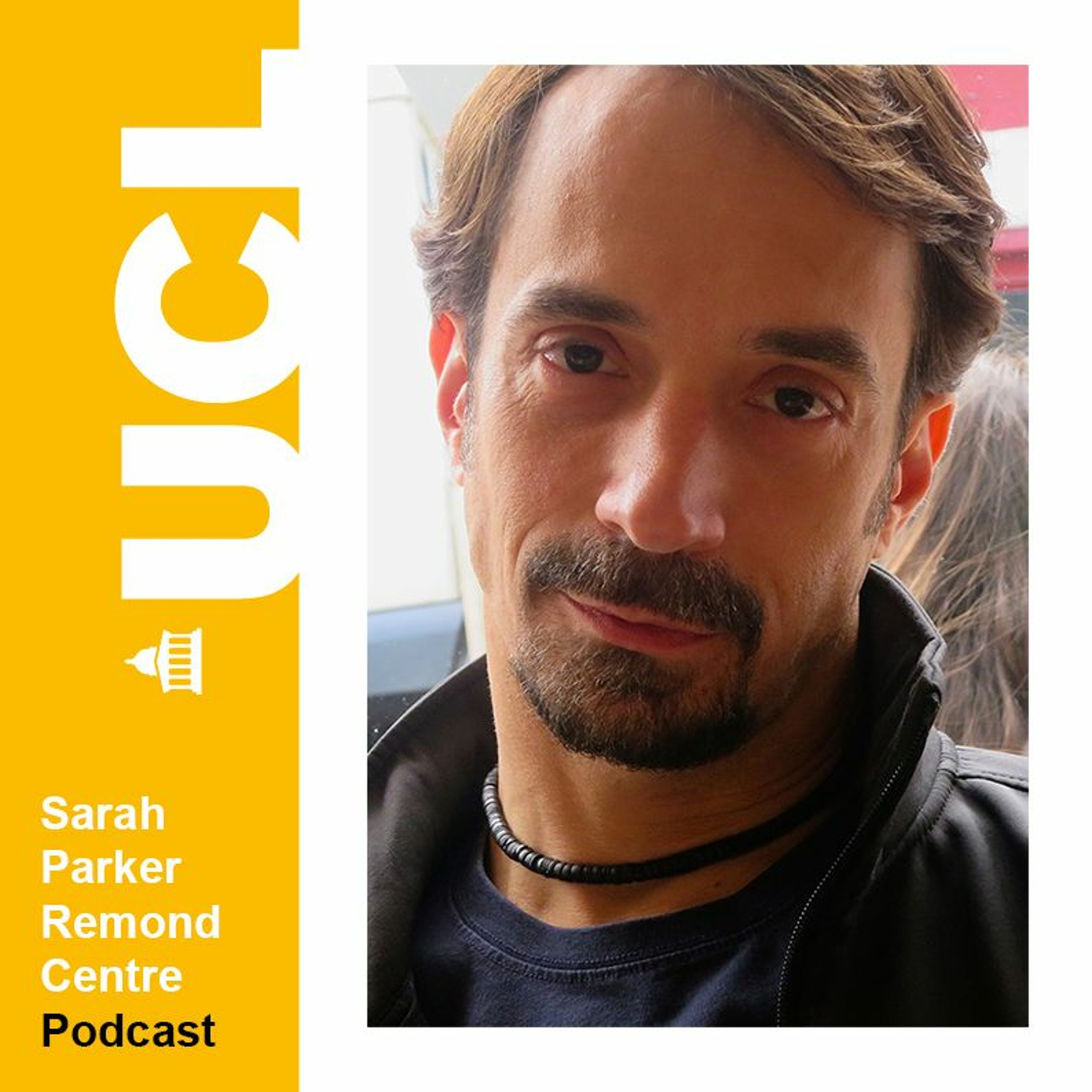 UCL Institute of Advanced StudiesSPRC In conversation with Nicholas De GenovaNicholas De Genova joins Luke de Noronha for a conversation about the relationship between bordering, migration and the pandemic, and his current thinking around The Migrant Metropolis. Nicholas discusses why it’s important to think of migrant crises as racial crises, recapturing the subjectivity of migration, and the autonomy of migration as a framework.
Transcript: www.ucl.ac.uk/racism-racialisation/transcript-conversation-nicholas-de-genova
This conversation was recorded on 8th February 2021
Speakers: Luke de Noronha, Lecturer in Race, Ethnicity & Postcolonial Studies, UCL Sarah Parker Remond Centre // Nicholas de Genova, Professor and Chair of the Department of Comparative Cultural Studies at the University of Ho...2021-03-1032 min
UCL Institute of Advanced StudiesSPRC In conversation with Nicholas De GenovaNicholas De Genova joins Luke de Noronha for a conversation about the relationship between bordering, migration and the pandemic, and his current thinking around The Migrant Metropolis. Nicholas discusses why it’s important to think of migrant crises as racial crises, recapturing the subjectivity of migration, and the autonomy of migration as a framework.
Transcript: www.ucl.ac.uk/racism-racialisation/transcript-conversation-nicholas-de-genova
This conversation was recorded on 8th February 2021
Speakers: Luke de Noronha, Lecturer in Race, Ethnicity & Postcolonial Studies, UCL Sarah Parker Remond Centre // Nicholas de Genova, Professor and Chair of the Department of Comparative Cultural Studies at the University of Ho...2021-03-1032 min UCL Sarah Parker Remond Centre PodcastIn conversation with Linton Kwesi JohnsonAs we approach the 40th anniversary of the Black People’s Day of Action march that took place on 2nd March 1981, Paul Gilroy welcomes Linton Kwesi Johnson, poet and activist, to reflect on the events of that day and year, and discuss how we see these patterns repeated in Black life in this country today in the forms of inequality and conflict and demands for truth, right and justice.Transcript: www.ucl.ac.uk/racism-racialisation/transcript-conversation-linton-kwesi-johnsonThis conversation was recorded on 9th February 2021Speakers: Paul Gilroy, Director of the UCL Sara...2021-02-2533 min
UCL Sarah Parker Remond Centre PodcastIn conversation with Linton Kwesi JohnsonAs we approach the 40th anniversary of the Black People’s Day of Action march that took place on 2nd March 1981, Paul Gilroy welcomes Linton Kwesi Johnson, poet and activist, to reflect on the events of that day and year, and discuss how we see these patterns repeated in Black life in this country today in the forms of inequality and conflict and demands for truth, right and justice.Transcript: www.ucl.ac.uk/racism-racialisation/transcript-conversation-linton-kwesi-johnsonThis conversation was recorded on 9th February 2021Speakers: Paul Gilroy, Director of the UCL Sara...2021-02-2533 min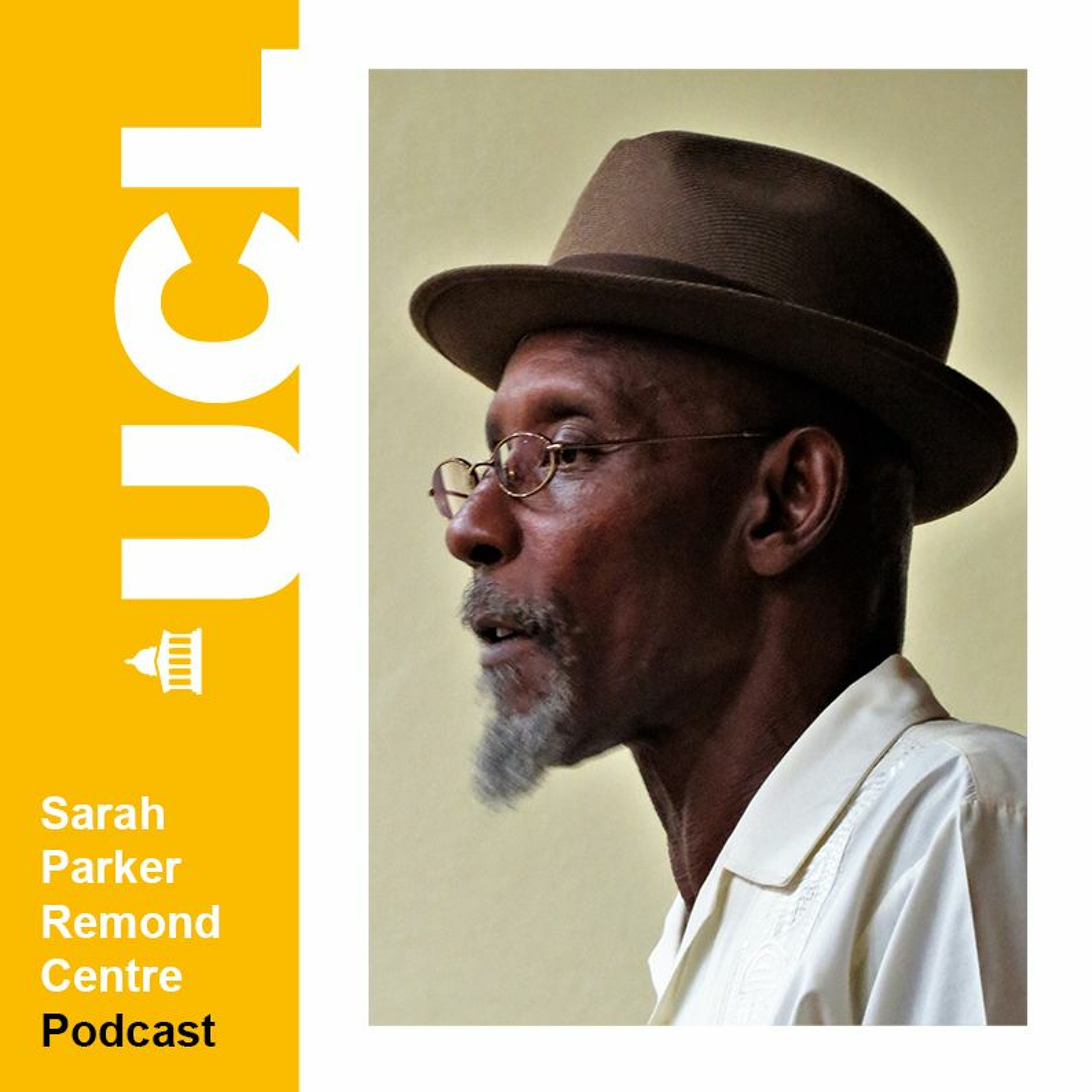 UCL Institute of Advanced StudiesSPRC In conversation with Linton Kwesi JohnsonAs we approach the 40th anniversary of the Black People’s Day of Action march that took place on 2nd March 1981, Paul Gilroy welcomes Linton Kwesi Johnson, poet and activist, to reflect on the events of that day and year, and discuss how we see these patterns repeated in Black life in this country today in the forms of inequality and conflict and demands for truth, right and justice.
Transcript: www.ucl.ac.uk/racism-racialisation/transcript-conversation-linton-kwesi-johnson
This conversation was recorded on 9th February 2021
Speakers: Paul Gilroy, Director of the UCL Sarah Parker Remond Centre // Linton Kwesi Johnson, world-renowned reggae poet an...2021-02-2533 min
UCL Institute of Advanced StudiesSPRC In conversation with Linton Kwesi JohnsonAs we approach the 40th anniversary of the Black People’s Day of Action march that took place on 2nd March 1981, Paul Gilroy welcomes Linton Kwesi Johnson, poet and activist, to reflect on the events of that day and year, and discuss how we see these patterns repeated in Black life in this country today in the forms of inequality and conflict and demands for truth, right and justice.
Transcript: www.ucl.ac.uk/racism-racialisation/transcript-conversation-linton-kwesi-johnson
This conversation was recorded on 9th February 2021
Speakers: Paul Gilroy, Director of the UCL Sarah Parker Remond Centre // Linton Kwesi Johnson, world-renowned reggae poet an...2021-02-2533 min UCL Sarah Parker Remond Centre PodcastIn conversation with Les BackLuke de Noronha is joined by Les Back, Professor of Sociology at Goldsmiths, to talk about the concept of the ‘metropolitan paradox’, reflecting on how the events of 1981 – the New Cross house fire and the resulting Black People’s Day of Action march – formed his thinking and future academic work. Discussing how the tragedy of Grenfell Tower paralleled that of 1981, Les explores how the demonstrations and silent walks provide a service of hope.Transcript: www.ucl.ac.uk/racism-racialisation/transcript-conversation-les-backThis conversation was recorded on 29th January 2021Speakers: Luke de Noronha, Lect...2021-02-1829 min
UCL Sarah Parker Remond Centre PodcastIn conversation with Les BackLuke de Noronha is joined by Les Back, Professor of Sociology at Goldsmiths, to talk about the concept of the ‘metropolitan paradox’, reflecting on how the events of 1981 – the New Cross house fire and the resulting Black People’s Day of Action march – formed his thinking and future academic work. Discussing how the tragedy of Grenfell Tower paralleled that of 1981, Les explores how the demonstrations and silent walks provide a service of hope.Transcript: www.ucl.ac.uk/racism-racialisation/transcript-conversation-les-backThis conversation was recorded on 29th January 2021Speakers: Luke de Noronha, Lect...2021-02-1829 min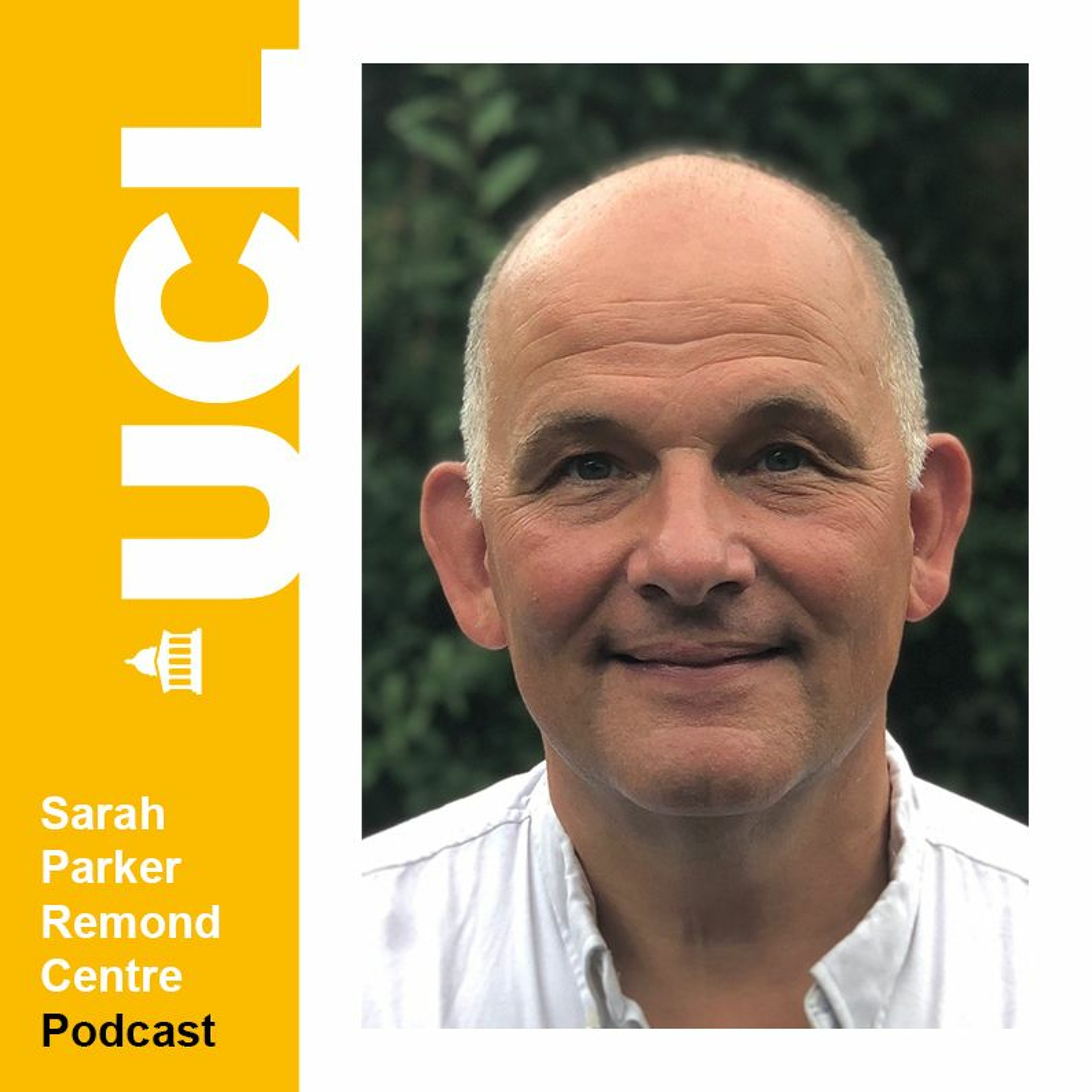 UCL Institute of Advanced StudiesSPRC In conversation with Les BackLuke de Noronha is joined by Les Back, Professor of Sociology at Goldsmiths, to talk about the concept of the ‘metropolitan paradox’, reflecting on how the events of 1981 – the New Cross house fire and the resulting Black People’s Day of Action march – formed his thinking and future academic work. Discussing how the tragedy of Grenfell Tower paralleled that of 1981, Les explores how the demonstrations and silent walks provide a service of hope.
Transcript: www.ucl.ac.uk/racism-racialisation/transcript-conversation-les-back
This conversation was recorded on 29th January 2021
Speaker: Luke de Noronha, Lecturer in Race, Ethnicity & Postcolonial Studies, UCL Sarah Parker Remond Cen...2021-02-1829 min
UCL Institute of Advanced StudiesSPRC In conversation with Les BackLuke de Noronha is joined by Les Back, Professor of Sociology at Goldsmiths, to talk about the concept of the ‘metropolitan paradox’, reflecting on how the events of 1981 – the New Cross house fire and the resulting Black People’s Day of Action march – formed his thinking and future academic work. Discussing how the tragedy of Grenfell Tower paralleled that of 1981, Les explores how the demonstrations and silent walks provide a service of hope.
Transcript: www.ucl.ac.uk/racism-racialisation/transcript-conversation-les-back
This conversation was recorded on 29th January 2021
Speaker: Luke de Noronha, Lecturer in Race, Ethnicity & Postcolonial Studies, UCL Sarah Parker Remond Cen...2021-02-1829 min UCL Sarah Parker Remond Centre PodcastIn conversation with Dennis BovellDennis Bovell, UK reggae pioneer and writer of the hit song Silly Games, joins Paul Gilroy for a conversation about his career as a producer, multi-instrumentalist, sound engineer and more. Dennis discusses not having any musical boundaries, working across reggae to country to afrobeats, and recounts stories of working with Linton Kwesi Johnson, Leroy Smart, Fela Kuti and John Kpiaye.Transcript: www.ucl.ac.uk/racism-racialisation/transcript-conversation-dennis-bovellThis conversation was recorded on 21st November 2020Speakers: Paul Gilroy, Director of the UCL Sarah Parker Remond Centre // Dennis Bovell, UK Reggae pioneer, pr...2021-02-1133 min
UCL Sarah Parker Remond Centre PodcastIn conversation with Dennis BovellDennis Bovell, UK reggae pioneer and writer of the hit song Silly Games, joins Paul Gilroy for a conversation about his career as a producer, multi-instrumentalist, sound engineer and more. Dennis discusses not having any musical boundaries, working across reggae to country to afrobeats, and recounts stories of working with Linton Kwesi Johnson, Leroy Smart, Fela Kuti and John Kpiaye.Transcript: www.ucl.ac.uk/racism-racialisation/transcript-conversation-dennis-bovellThis conversation was recorded on 21st November 2020Speakers: Paul Gilroy, Director of the UCL Sarah Parker Remond Centre // Dennis Bovell, UK Reggae pioneer, pr...2021-02-1133 min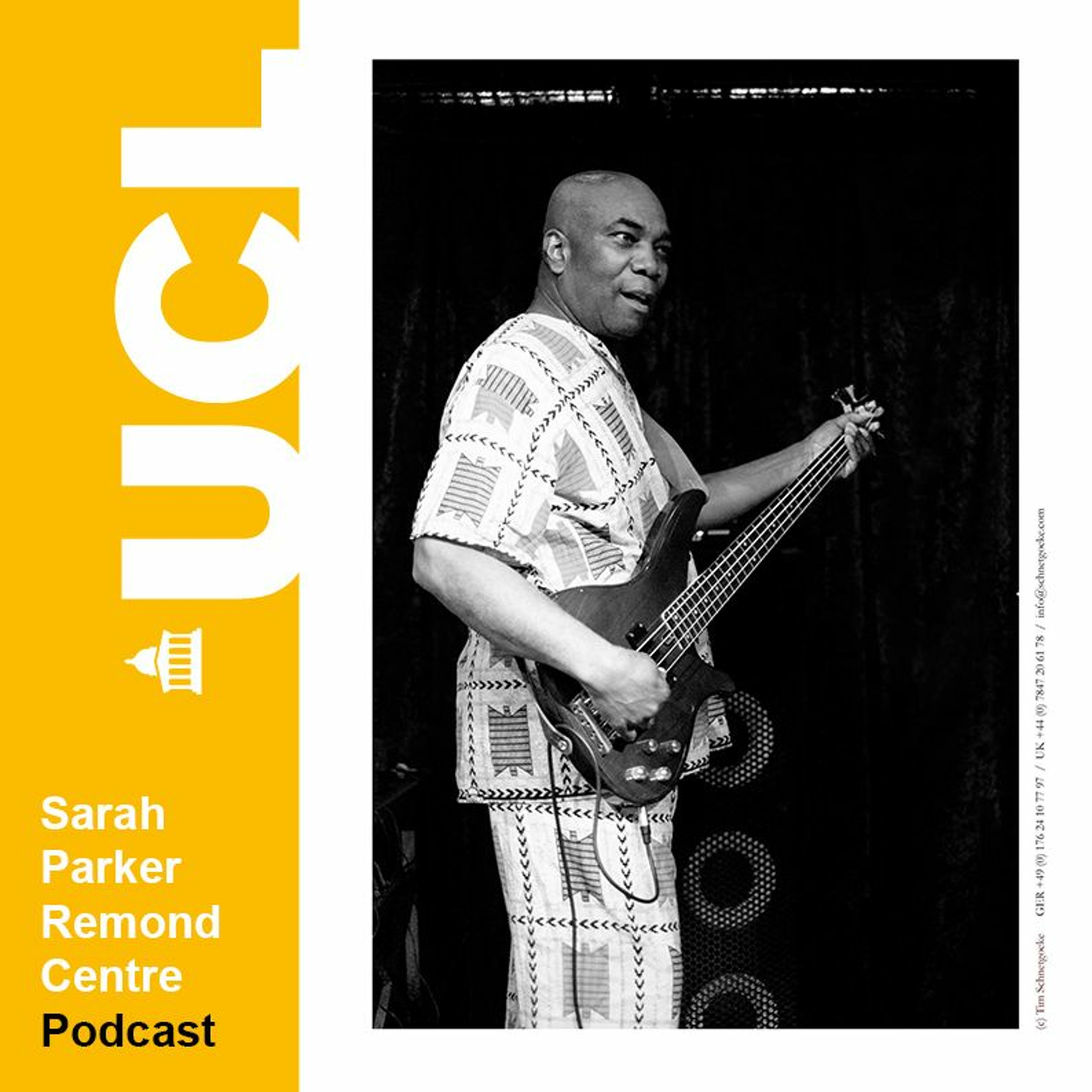 UCL Institute of Advanced StudiesSPRC In conversation with Dennis BovellDennis Bovell, UK reggae pioneer and writer of the hit song Silly Games, joins Paul Gilroy for a conversation about his career as a producer, multi-instrumentalist, sound engineer and more. Dennis discusses not having any musical boundaries, working across reggae to country to afrobeats, and recounts stories of working with Linton Kwesi Johnson, Leroy Smart, Fela Kuti and John Kpiaye.
Transcript: www.ucl.ac.uk/racism-racialisation/transcript-conversation-dennis-bovell
This conversation was recorded on 21st November 2020
Speakers: Paul Gilroy, Director of the UCL Sarah Parker Remond Centre // Dennis Bovell, UK Reggae pioneer, producer, musician, multi-instrumentalist, songwriter and sound engineer
Image: Photo by...2021-02-1133 min
UCL Institute of Advanced StudiesSPRC In conversation with Dennis BovellDennis Bovell, UK reggae pioneer and writer of the hit song Silly Games, joins Paul Gilroy for a conversation about his career as a producer, multi-instrumentalist, sound engineer and more. Dennis discusses not having any musical boundaries, working across reggae to country to afrobeats, and recounts stories of working with Linton Kwesi Johnson, Leroy Smart, Fela Kuti and John Kpiaye.
Transcript: www.ucl.ac.uk/racism-racialisation/transcript-conversation-dennis-bovell
This conversation was recorded on 21st November 2020
Speakers: Paul Gilroy, Director of the UCL Sarah Parker Remond Centre // Dennis Bovell, UK Reggae pioneer, producer, musician, multi-instrumentalist, songwriter and sound engineer
Image: Photo by...2021-02-1133 min UCL Sarah Parker Remond Centre PodcastIn conversation with Pragna PatelMaki Kimura (UCL Political Science & UCL Arts and Sciences) is joined by Pragna Patel, director and founding member of Southall Black Sisters. Pragna speaks to us about the feminist and anti-racist roots of Southall Black Sisters, discussing intersectionality and structures of inequality, domestic abuse and violence against women and girls, and how the pandemic has further impacted vulnerable groups such as migrant women.Transcript: www.ucl.ac.uk/racism-racialisation/transcript-conversation-pragna-patelThis conversation was recorded on 10th November 2020Speakers: Maki Kimura, Lecturer in UCL Political Science & UCL Arts and Sciences // Pragna Pate...2021-02-0248 min
UCL Sarah Parker Remond Centre PodcastIn conversation with Pragna PatelMaki Kimura (UCL Political Science & UCL Arts and Sciences) is joined by Pragna Patel, director and founding member of Southall Black Sisters. Pragna speaks to us about the feminist and anti-racist roots of Southall Black Sisters, discussing intersectionality and structures of inequality, domestic abuse and violence against women and girls, and how the pandemic has further impacted vulnerable groups such as migrant women.Transcript: www.ucl.ac.uk/racism-racialisation/transcript-conversation-pragna-patelThis conversation was recorded on 10th November 2020Speakers: Maki Kimura, Lecturer in UCL Political Science & UCL Arts and Sciences // Pragna Pate...2021-02-0248 min UCL Sarah Parker Remond Centre PodcastIn conversation with Pumla Gobodo-MadikizelaTamar Garb is joined by Pumla Gobodo-Madikizela, South African National Research Chair in Violent Histories and Transgenerational Trauma, for a conversation about her work and recent interventions into a very difficult political and social landscape in South Africa. Pumla uses social psychology and psychoanalysis to discuss the ongoing threat and challenge of racism, the intergenerational inheritance of trauma, and the notion of the aesthetic as a site for reparative humanism.Transcript: www.ucl.ac.uk/racism-racialisation/transcript-conversation-pumla-gobodo-madikizelaThis conversation was recorded on 6th November 2020Speakers: Tamar Garb, Durning Lawrence Professor in t...2021-01-1939 min
UCL Sarah Parker Remond Centre PodcastIn conversation with Pumla Gobodo-MadikizelaTamar Garb is joined by Pumla Gobodo-Madikizela, South African National Research Chair in Violent Histories and Transgenerational Trauma, for a conversation about her work and recent interventions into a very difficult political and social landscape in South Africa. Pumla uses social psychology and psychoanalysis to discuss the ongoing threat and challenge of racism, the intergenerational inheritance of trauma, and the notion of the aesthetic as a site for reparative humanism.Transcript: www.ucl.ac.uk/racism-racialisation/transcript-conversation-pumla-gobodo-madikizelaThis conversation was recorded on 6th November 2020Speakers: Tamar Garb, Durning Lawrence Professor in t...2021-01-1939 min UCL Sarah Parker Remond Centre PodcastIn conversation with Sindre BangstadSocial anthropologist, Sindre Bangstad, discusses how local memories have been mobilised in the context of the Norwegian anti-racist movement, addressing the deep racialised grammar of the national imaginary of what Norway is. Exploring examples of right-wing extremism, Sindre reflects on the 2001 murder of Benjamin Hermansen as we approach the 20-year anniversary of his death.Transcript: www.ucl.ac.uk/racism-racialisation/transcript-conversation-sindre-bangstadThis conversation was recorded on 27th October 2020Speakers: Paul Gilroy, Director of the UCL Sarah Parker Remond Centre // Sindre Bangstad, Research Professor at KIFO, the Institute for Church, Religion an...2020-12-1431 min
UCL Sarah Parker Remond Centre PodcastIn conversation with Sindre BangstadSocial anthropologist, Sindre Bangstad, discusses how local memories have been mobilised in the context of the Norwegian anti-racist movement, addressing the deep racialised grammar of the national imaginary of what Norway is. Exploring examples of right-wing extremism, Sindre reflects on the 2001 murder of Benjamin Hermansen as we approach the 20-year anniversary of his death.Transcript: www.ucl.ac.uk/racism-racialisation/transcript-conversation-sindre-bangstadThis conversation was recorded on 27th October 2020Speakers: Paul Gilroy, Director of the UCL Sarah Parker Remond Centre // Sindre Bangstad, Research Professor at KIFO, the Institute for Church, Religion an...2020-12-1431 min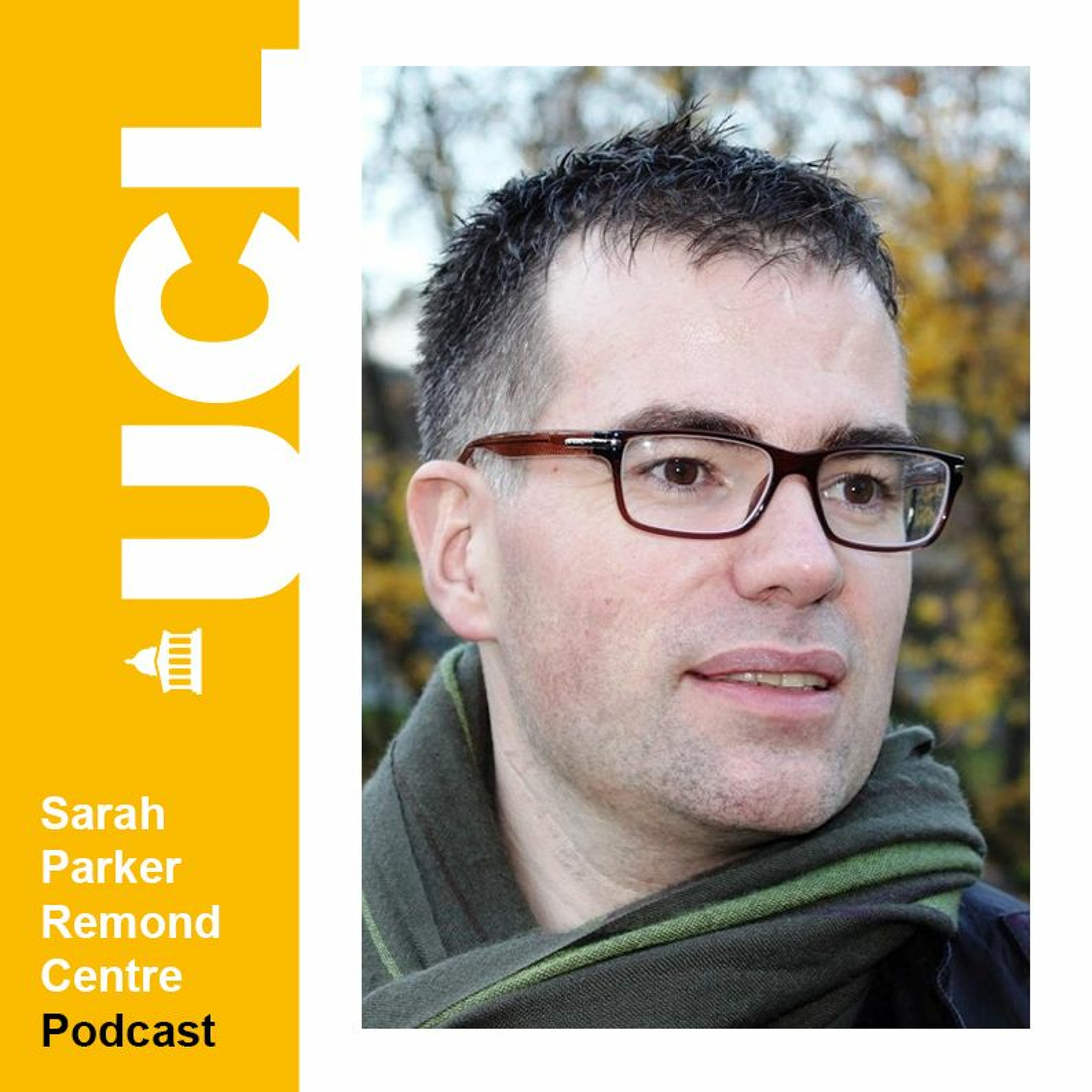 UCL Institute of Advanced StudiesSPRC In conversation with Sindre BangstadSocial anthropologist, Sindre Bangstad, discusses how local memories have been mobilised in the context of the Norwegian anti-racist movement, addressing the deep racialised grammar of the national imaginary of what Norway is. Exploring examples of right-wing extremism, Sindre reflects on the 2001 murder of Benjamin Hermansen as we approach the 20-year anniversary of his death.
Transcript: www.ucl.ac.uk/racism-racialisation/transcript-conversation-sindre-bangstad
This conversation was recorded on 27th October 2020
Speakers: Paul Gilroy, Director of the UCL Sarah Parker Remond Centre // Sindre Bangstad, Research Professor at KIFO, the Institute for Church, Religion and Worldview Research
Producer and Editor: Kaissa Karhu
www.ucl...2020-12-1431 min
UCL Institute of Advanced StudiesSPRC In conversation with Sindre BangstadSocial anthropologist, Sindre Bangstad, discusses how local memories have been mobilised in the context of the Norwegian anti-racist movement, addressing the deep racialised grammar of the national imaginary of what Norway is. Exploring examples of right-wing extremism, Sindre reflects on the 2001 murder of Benjamin Hermansen as we approach the 20-year anniversary of his death.
Transcript: www.ucl.ac.uk/racism-racialisation/transcript-conversation-sindre-bangstad
This conversation was recorded on 27th October 2020
Speakers: Paul Gilroy, Director of the UCL Sarah Parker Remond Centre // Sindre Bangstad, Research Professor at KIFO, the Institute for Church, Religion and Worldview Research
Producer and Editor: Kaissa Karhu
www.ucl...2020-12-1431 min UCL Sarah Parker Remond Centre PodcastShort Takes: Toward a Global History of White SupremacyOur latest Short Take is provided by Camilla Schofield, Senior Lecturer in Modern History at UEA. This year, in conjunction with her fellow editors Daniel Geary and Jennifer Sutton, Camilla has produced Global White Nationalism: From Apartheid to Trump, an important anthology of writing covering different historical examples and geographical regions. Camilla talks to us about this substantive contribution to the really urgent discussions about whiteness, and the kind of political and scholarly intervention that it represents.Transcript: www.ucl.ac.uk/racism-racialisation/transcript-toward-global-history-white-supremacySpeaker: Camilla Schofield, Senior Lecturer in Modern History at Uni...2020-12-0220 min
UCL Sarah Parker Remond Centre PodcastShort Takes: Toward a Global History of White SupremacyOur latest Short Take is provided by Camilla Schofield, Senior Lecturer in Modern History at UEA. This year, in conjunction with her fellow editors Daniel Geary and Jennifer Sutton, Camilla has produced Global White Nationalism: From Apartheid to Trump, an important anthology of writing covering different historical examples and geographical regions. Camilla talks to us about this substantive contribution to the really urgent discussions about whiteness, and the kind of political and scholarly intervention that it represents.Transcript: www.ucl.ac.uk/racism-racialisation/transcript-toward-global-history-white-supremacySpeaker: Camilla Schofield, Senior Lecturer in Modern History at Uni...2020-12-0220 min UCL Sarah Parker Remond Centre PodcastIn conversation with Antonella BunduPaul Gilroy is joined by Antonella Bundu, Italian activist and council member for a left coalition, for a conversation about the politics of Florence, Italy, and her position within the polity. Antonella discusses Black presence and belonging in the Italian context, fighting for social and civil rights, and the work that still needs to be done for an anti-racist and anti-fascist society.Transcript: www.ucl.ac.uk/racism-racialisation/transcript-conversation-antonella-bunduThis conversation was recorded on 23rd October 2020Speakers: Paul Gilroy, Director of the UCL Sarah Parker Remond Centre // Antonella Bundu, activist an...2020-11-2525 min
UCL Sarah Parker Remond Centre PodcastIn conversation with Antonella BunduPaul Gilroy is joined by Antonella Bundu, Italian activist and council member for a left coalition, for a conversation about the politics of Florence, Italy, and her position within the polity. Antonella discusses Black presence and belonging in the Italian context, fighting for social and civil rights, and the work that still needs to be done for an anti-racist and anti-fascist society.Transcript: www.ucl.ac.uk/racism-racialisation/transcript-conversation-antonella-bunduThis conversation was recorded on 23rd October 2020Speakers: Paul Gilroy, Director of the UCL Sarah Parker Remond Centre // Antonella Bundu, activist an...2020-11-2525 min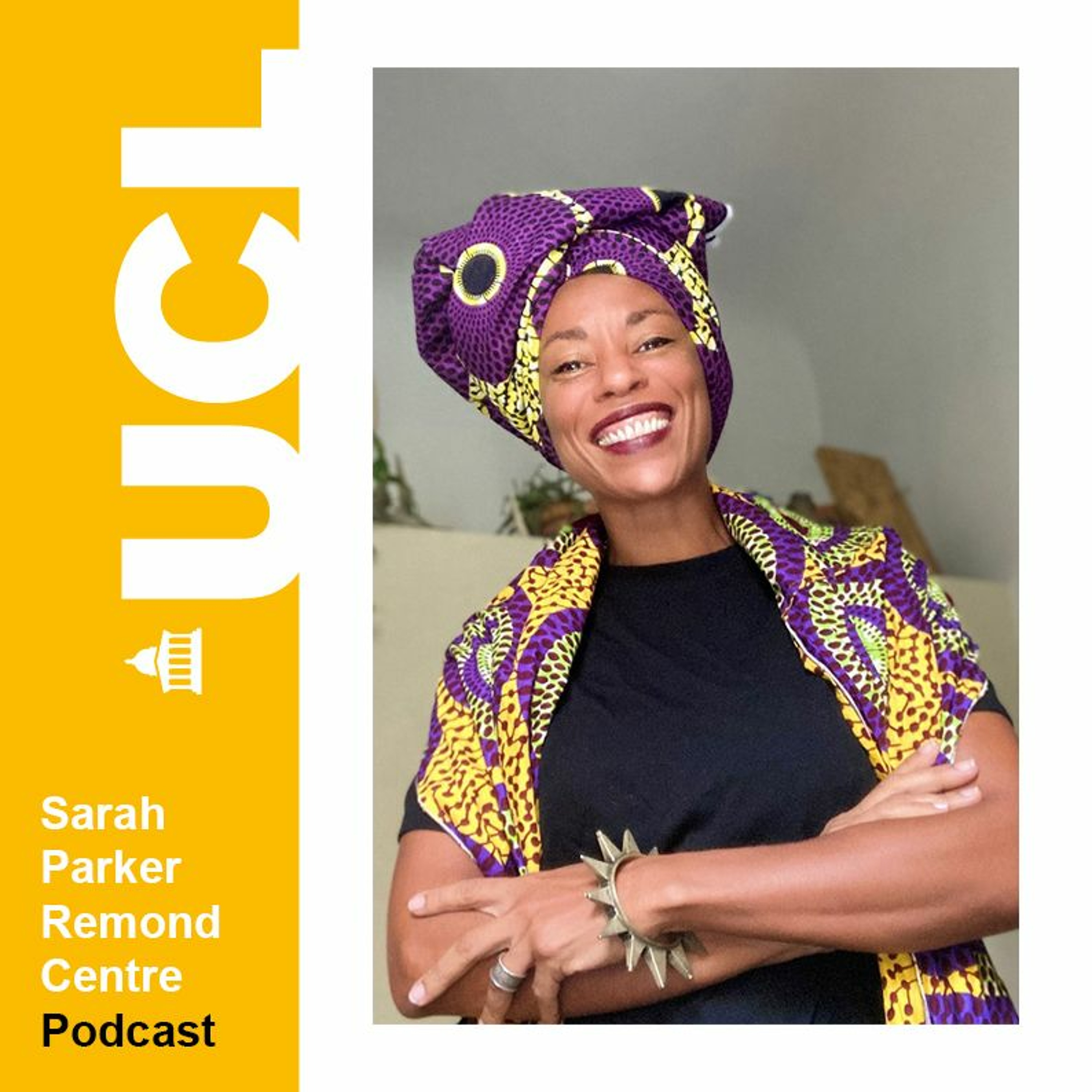 UCL Institute of Advanced StudiesSPRC In conversation with Antonella BunduPaul Gilroy is joined by Antonella Bundu, Italian activist and council member for a left coalition, for a conversation about the politics of Florence, Italy, and her position within the polity. Antonella discusses Black presence and belonging in the Italian context, fighting for social and civil rights, and the work that still needs to be done for an anti-racist and anti-fascist society.
Transcript: www.ucl.ac.uk/racism-racialisation/transcript-conversation-antonella-bundu
This conversation was recorded on 23rd October 2020
Speakers: Paul Gilroy, Director of the UCL Sarah Parker Remond Centre // Antonella Bundu, activist and council member leading the left opposition Sinistra Progetto Comune...2020-11-2525 min
UCL Institute of Advanced StudiesSPRC In conversation with Antonella BunduPaul Gilroy is joined by Antonella Bundu, Italian activist and council member for a left coalition, for a conversation about the politics of Florence, Italy, and her position within the polity. Antonella discusses Black presence and belonging in the Italian context, fighting for social and civil rights, and the work that still needs to be done for an anti-racist and anti-fascist society.
Transcript: www.ucl.ac.uk/racism-racialisation/transcript-conversation-antonella-bundu
This conversation was recorded on 23rd October 2020
Speakers: Paul Gilroy, Director of the UCL Sarah Parker Remond Centre // Antonella Bundu, activist and council member leading the left opposition Sinistra Progetto Comune...2020-11-2525 min UCL Sarah Parker Remond Centre PodcastIn conversation with Steve McQueenAward-winning filmmaker, Steve McQueen, joins Paul Gilroy for a conversation on the motivation for his Small Axe film series. McQueen addresses making something that is Black and beautiful in depicting justice and freedom, and how art can give recognition to Black British lives by shoring up “who we are, where we came from and what we contributed to this country”.Transcript: www.ucl.ac.uk/racism-racialisation/transcript-conversation-steve-mcqueenThis conversation was recorded on 26th October 2020Speakers: Paul Gilroy, Director of the UCL Sarah Parker Remond Centre // Steve McQueen, Academy Award-winning filmmaker and arti...2020-11-0527 min
UCL Sarah Parker Remond Centre PodcastIn conversation with Steve McQueenAward-winning filmmaker, Steve McQueen, joins Paul Gilroy for a conversation on the motivation for his Small Axe film series. McQueen addresses making something that is Black and beautiful in depicting justice and freedom, and how art can give recognition to Black British lives by shoring up “who we are, where we came from and what we contributed to this country”.Transcript: www.ucl.ac.uk/racism-racialisation/transcript-conversation-steve-mcqueenThis conversation was recorded on 26th October 2020Speakers: Paul Gilroy, Director of the UCL Sarah Parker Remond Centre // Steve McQueen, Academy Award-winning filmmaker and arti...2020-11-0527 min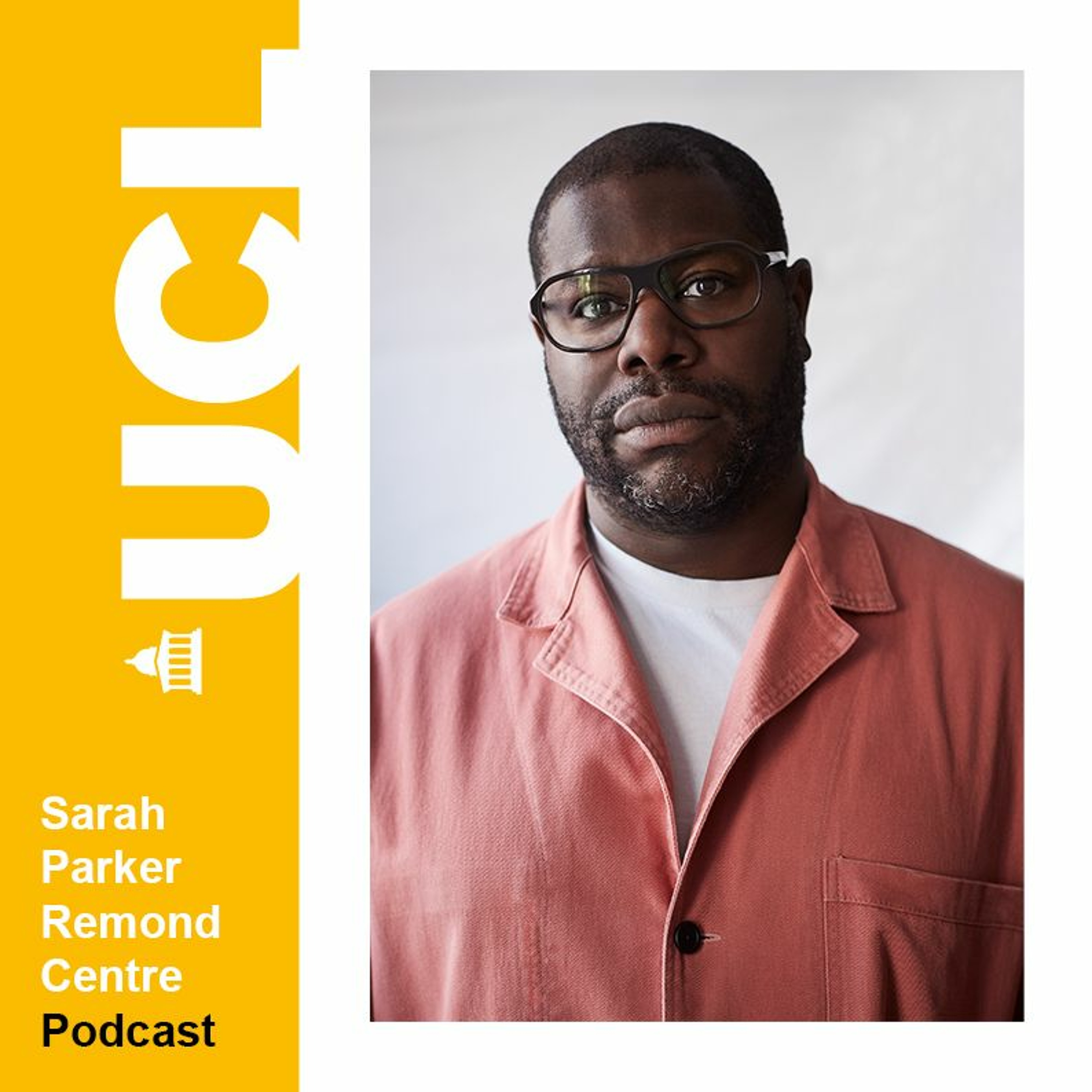 UCL Institute of Advanced StudiesSPRC In conversation with Steve McQueenAward-winning filmmaker, Steve McQueen, joins Paul Gilroy for a conversation on the motivation for his 'Small Axe' film series. McQueen addresses making something that is Black and beautiful in depicting justice and freedom, and how art can give recognition to Black British lives by shoring up “who we are, where we came from and what we contributed to this country”.
Transcript: www.ucl.ac.uk/racism-racialisation/transcript-conversation-steve-mcqueen
This conversation was recorded on 26th October 2020
Speakers: Paul Gilroy, Director of the UCL Sarah Parker Remond Centre // Steve McQueen, Academy Award-winning filmmaker and artist; creator and director of 'Small Axe'
Image: Photo by J...2020-11-0527 min
UCL Institute of Advanced StudiesSPRC In conversation with Steve McQueenAward-winning filmmaker, Steve McQueen, joins Paul Gilroy for a conversation on the motivation for his 'Small Axe' film series. McQueen addresses making something that is Black and beautiful in depicting justice and freedom, and how art can give recognition to Black British lives by shoring up “who we are, where we came from and what we contributed to this country”.
Transcript: www.ucl.ac.uk/racism-racialisation/transcript-conversation-steve-mcqueen
This conversation was recorded on 26th October 2020
Speakers: Paul Gilroy, Director of the UCL Sarah Parker Remond Centre // Steve McQueen, Academy Award-winning filmmaker and artist; creator and director of 'Small Axe'
Image: Photo by J...2020-11-0527 min UCL Sarah Parker Remond Centre PodcastIn conversation with Olivia U. RutazibwaOlivia U. Rutazibwa, Senior Lecturer in International Development and European Studies, explores rethinking international relations with a critical and anti-colonial perspective. Addressing the tearing down of statues of Leopold II in Belgium, reparations and recognition, and moving away from the language of ‘aid’, Olivia discusses decolonial thought and concepts of dignity, retreat and repair.Transcript: www.ucl.ac.uk/racism-racialisation/transcript-conversation-olivia-u-rutazibwaThis conversation was recorded on 13th October 2020Speakers: Paul Gilroy, Director of the UCL Sarah Parker Remond Centre // Olivia U. Rutazibwa, Senior Lecturer in International Development and European Studies at the...2020-10-2734 min
UCL Sarah Parker Remond Centre PodcastIn conversation with Olivia U. RutazibwaOlivia U. Rutazibwa, Senior Lecturer in International Development and European Studies, explores rethinking international relations with a critical and anti-colonial perspective. Addressing the tearing down of statues of Leopold II in Belgium, reparations and recognition, and moving away from the language of ‘aid’, Olivia discusses decolonial thought and concepts of dignity, retreat and repair.Transcript: www.ucl.ac.uk/racism-racialisation/transcript-conversation-olivia-u-rutazibwaThis conversation was recorded on 13th October 2020Speakers: Paul Gilroy, Director of the UCL Sarah Parker Remond Centre // Olivia U. Rutazibwa, Senior Lecturer in International Development and European Studies at the...2020-10-2734 min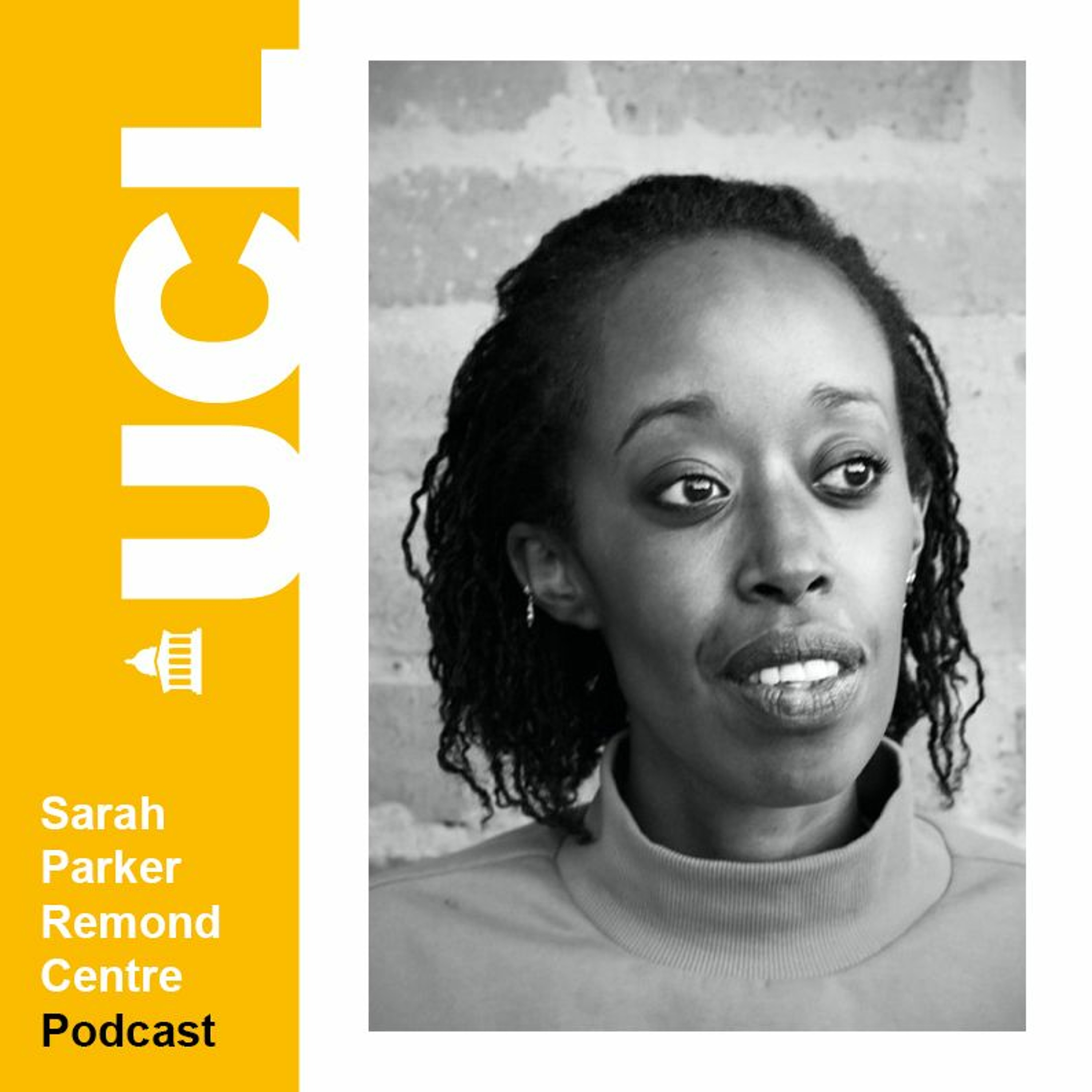 UCL Institute of Advanced StudiesSPRC In conversation with Olivia U. RutazibwaOlivia U. Rutazibwa, Senior Lecturer in International Development and European Studies, explores rethinking international relations with a critical and anti-colonial perspective. Addressing the tearing down of statues of Leopold II in Belgium, reparations and recognition, and moving away from the language of ‘aid’, Olivia discusses decolonial thought and concepts of dignity, retreat and repair.
Transcript: www.ucl.ac.uk/racism-racialisation/transcript-conversation-olivia-u-rutazibwa
This conversation was recorded on 13th October 2020
Speakers: Paul Gilroy, Director of the UCL Sarah Parker Remond Centre // Olivia U. Rutazibwa, Senior Lecturer in International Development and European Studies at the University of Portsmouth
Image: © Malebo Sephodi
Producer and Edito...2020-10-2734 min
UCL Institute of Advanced StudiesSPRC In conversation with Olivia U. RutazibwaOlivia U. Rutazibwa, Senior Lecturer in International Development and European Studies, explores rethinking international relations with a critical and anti-colonial perspective. Addressing the tearing down of statues of Leopold II in Belgium, reparations and recognition, and moving away from the language of ‘aid’, Olivia discusses decolonial thought and concepts of dignity, retreat and repair.
Transcript: www.ucl.ac.uk/racism-racialisation/transcript-conversation-olivia-u-rutazibwa
This conversation was recorded on 13th October 2020
Speakers: Paul Gilroy, Director of the UCL Sarah Parker Remond Centre // Olivia U. Rutazibwa, Senior Lecturer in International Development and European Studies at the University of Portsmouth
Image: © Malebo Sephodi
Producer and Edito...2020-10-2734 min UCL Sarah Parker Remond Centre PodcastIn conversation with Francio GuadeloupeSocial and cultural anthropologist Francio Guadeloupe joins us for a conversation on understanding the black condition and the racialisation of Muslims within the Netherlands and the Dutch Caribbean. Addressing the conviviality and creolization of the Kingdom, Francio explains the harmony and struggle that is present and looks at the changing politics of race.Transcript: www.ucl.ac.uk/racism-racialisation/transcript-conversation-francio-guadloupeThis conversation was recorded on 7th October 2020Speakers: Paul Gilroy, Director of the UCL Sarah Parker Remond Centre // Francio Guadeloupe, Assistant Professor of Anthropology at the University of AmsterdamPro...2020-10-1628 min
UCL Sarah Parker Remond Centre PodcastIn conversation with Francio GuadeloupeSocial and cultural anthropologist Francio Guadeloupe joins us for a conversation on understanding the black condition and the racialisation of Muslims within the Netherlands and the Dutch Caribbean. Addressing the conviviality and creolization of the Kingdom, Francio explains the harmony and struggle that is present and looks at the changing politics of race.Transcript: www.ucl.ac.uk/racism-racialisation/transcript-conversation-francio-guadloupeThis conversation was recorded on 7th October 2020Speakers: Paul Gilroy, Director of the UCL Sarah Parker Remond Centre // Francio Guadeloupe, Assistant Professor of Anthropology at the University of AmsterdamPro...2020-10-1628 min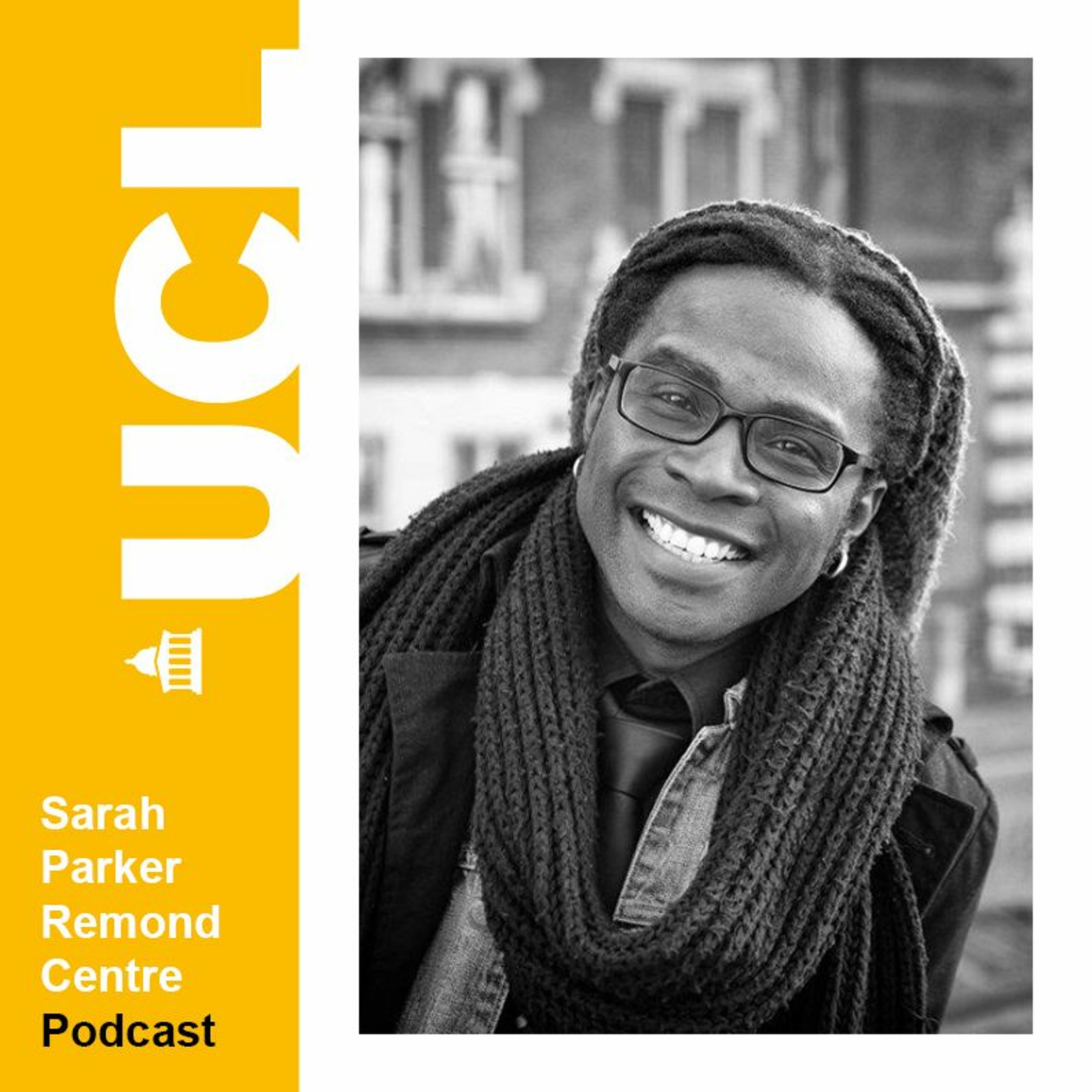 UCL Institute of Advanced StudiesSPRC In conversation with Francio GuadeloupeSocial and cultural anthropologist Francio Guadeloupe joins us for a conversation on understanding the black condition and the racialisation of Muslims within the Netherlands and the Dutch Caribbean. Addressing the conviviality and creolization of the Kingdom, Francio explains the harmony and struggle that is present and looks at the changing politics of race.
Transcript: www.ucl.ac.uk/racism-racialisation/transcript-conversation-francio-guadloupe
This conversation was recorded on 7th October 2020
Speakers: Paul Gilroy, Director of the UCL Sarah Parker Remond Centre // Francio Guadeloupe, Assistant Professor of Anthropology at the University of Amsterdam
Producer and Editor: Kaissa Karhu
www.ucl.ac.uk/racism-racialisation/podcasts2020-10-1628 min
UCL Institute of Advanced StudiesSPRC In conversation with Francio GuadeloupeSocial and cultural anthropologist Francio Guadeloupe joins us for a conversation on understanding the black condition and the racialisation of Muslims within the Netherlands and the Dutch Caribbean. Addressing the conviviality and creolization of the Kingdom, Francio explains the harmony and struggle that is present and looks at the changing politics of race.
Transcript: www.ucl.ac.uk/racism-racialisation/transcript-conversation-francio-guadloupe
This conversation was recorded on 7th October 2020
Speakers: Paul Gilroy, Director of the UCL Sarah Parker Remond Centre // Francio Guadeloupe, Assistant Professor of Anthropology at the University of Amsterdam
Producer and Editor: Kaissa Karhu
www.ucl.ac.uk/racism-racialisation/podcasts2020-10-1628 min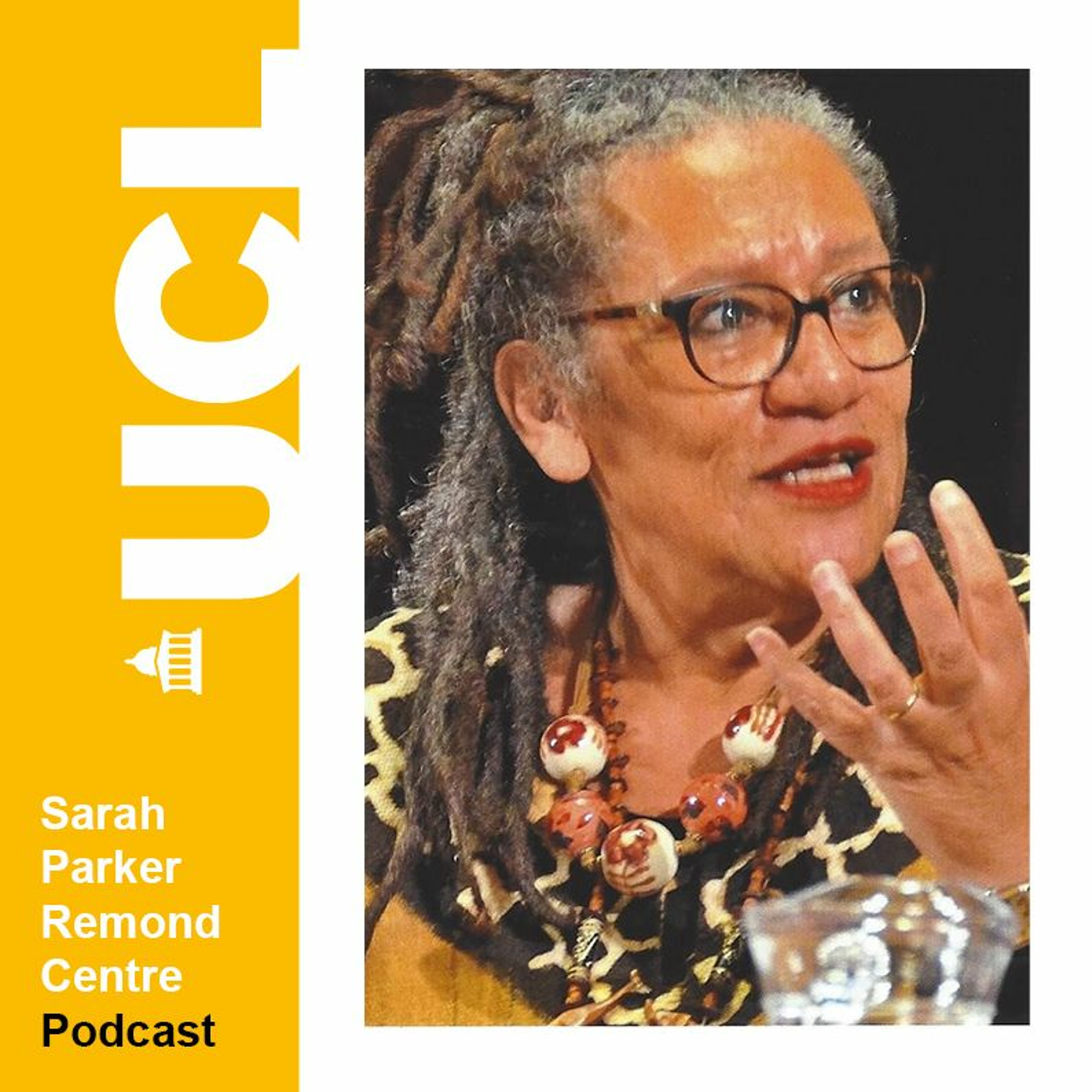 UCL Institute of Advanced StudiesSPRC In conversation with Gloria WekkerGloria Wekker, author of 'White Innocence: Paradoxes of Colonialism and Race', discusses white innocence and colour-blindness in the Netherlands; reflecting on the country’s relationship with colonialism, its lack of discourse about race, and the importance of intergenerational knowledge exchange. Gloria also looks back on her experiences in the US: the moment she learned she was ‘black’, how the prom shaped her understanding of intersectionality, and the significance of having a black female professor for the first time.
Transcript: www.ucl.ac.uk/racism-racialisation/transcript-conversation-gloria-wekker
This conversation was recorded on 1st October 2020
Speakers: Paul Gilroy, Director of the UCL Sarah Parker...2020-10-0833 min
UCL Institute of Advanced StudiesSPRC In conversation with Gloria WekkerGloria Wekker, author of 'White Innocence: Paradoxes of Colonialism and Race', discusses white innocence and colour-blindness in the Netherlands; reflecting on the country’s relationship with colonialism, its lack of discourse about race, and the importance of intergenerational knowledge exchange. Gloria also looks back on her experiences in the US: the moment she learned she was ‘black’, how the prom shaped her understanding of intersectionality, and the significance of having a black female professor for the first time.
Transcript: www.ucl.ac.uk/racism-racialisation/transcript-conversation-gloria-wekker
This conversation was recorded on 1st October 2020
Speakers: Paul Gilroy, Director of the UCL Sarah Parker...2020-10-0833 min UCL Sarah Parker Remond Centre PodcastIn conversation with Gloria WekkerGloria Wekker, author of White Innocence: Paradoxes of Colonialism and Race, discusses white innocence and colour-blindness in the Netherlands; reflecting on the country’s relationship with colonialism, its lack of discourse about race, and the importance of intergenerational knowledge exchange. Gloria also looks back on her experiences in the US: the moment she learned she was black, how the prom shaped her understanding of intersectionality, and the significance of having a black female professor for the first time.Transcript: www.ucl.ac.uk/racism-racialisation/transcript-conversation-gloria-wekkerThis conversation was recorded on 1st October 20202020-10-0833 min
UCL Sarah Parker Remond Centre PodcastIn conversation with Gloria WekkerGloria Wekker, author of White Innocence: Paradoxes of Colonialism and Race, discusses white innocence and colour-blindness in the Netherlands; reflecting on the country’s relationship with colonialism, its lack of discourse about race, and the importance of intergenerational knowledge exchange. Gloria also looks back on her experiences in the US: the moment she learned she was black, how the prom shaped her understanding of intersectionality, and the significance of having a black female professor for the first time.Transcript: www.ucl.ac.uk/racism-racialisation/transcript-conversation-gloria-wekkerThis conversation was recorded on 1st October 20202020-10-0833 min UCL Sarah Parker Remond Centre PodcastShort Takes: Deporting Black Britons: Portraits of deportation to JamaicaOur latest Short Takes podcast is provided by Luke de Noronha, author of Deporting Black Britons: Portraits of deportation to Jamaica. “An ethnography of deportation, and therefore an ethnography of separation, absence and exile”, Luke talks us through the motivation for his research and its contribution to our collective understanding and shared struggles.Transcript: www.ucl.ac.uk/racism-racialisation/transcript-deporting-black-britons-portraits-deportation-jamaicaSpeaker: Luke de Noronha, Simon Research Fellow at the University of ManchesterImage: Deporting Black Britons: Portraits of deportation to Jamaica (Manchester University Press, 2020)Producer and Editor: Kaissa Karhuw...2020-10-0108 min
UCL Sarah Parker Remond Centre PodcastShort Takes: Deporting Black Britons: Portraits of deportation to JamaicaOur latest Short Takes podcast is provided by Luke de Noronha, author of Deporting Black Britons: Portraits of deportation to Jamaica. “An ethnography of deportation, and therefore an ethnography of separation, absence and exile”, Luke talks us through the motivation for his research and its contribution to our collective understanding and shared struggles.Transcript: www.ucl.ac.uk/racism-racialisation/transcript-deporting-black-britons-portraits-deportation-jamaicaSpeaker: Luke de Noronha, Simon Research Fellow at the University of ManchesterImage: Deporting Black Britons: Portraits of deportation to Jamaica (Manchester University Press, 2020)Producer and Editor: Kaissa Karhuw...2020-10-0108 min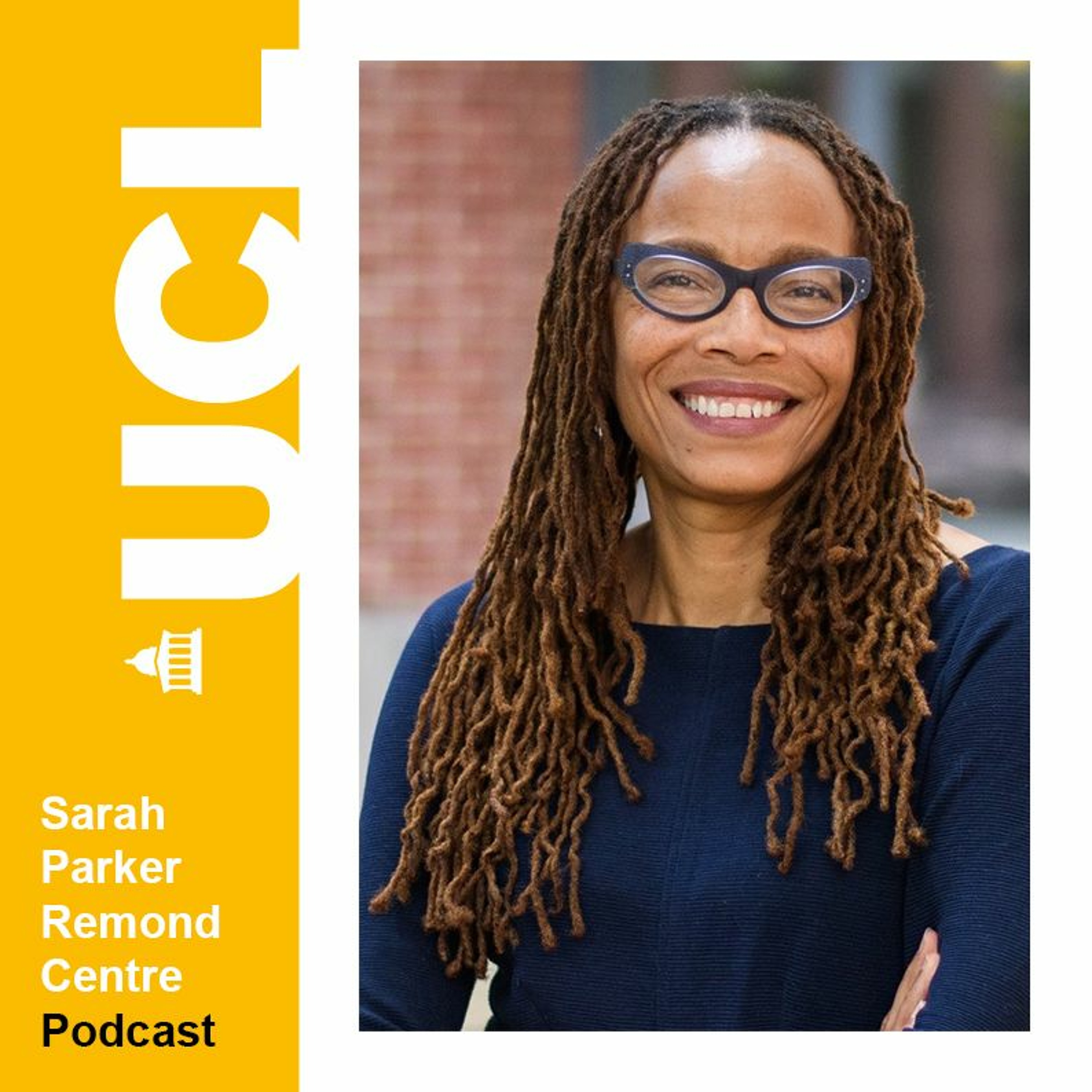 UCL Institute of Advanced StudiesSPRC In conversation with Dorothy E. RobertsAcclaimed scholar of race, gender and law, Dorothy E. Roberts discusses the harm and health inequities produced by structural racism, with race correction in medicine disqualifying black people from specialised care, and evident collaboration of doctors and lawyers in promoting juridical ideas about race. Addressing a violent policing system that can be traced back to slave patrols and black codes, Dorothy also explains the need for abolition of the entire policing apparatus in the US.
Transcript: www.ucl.ac.uk/racism-racialisation/transcript-conversation-dorothy-e-roberts
This conversation was recorded on 28th August 2020
Speakers: Paul Gilroy, Director of the UCL Sarah Parker Remond Centre...2020-09-0938 min
UCL Institute of Advanced StudiesSPRC In conversation with Dorothy E. RobertsAcclaimed scholar of race, gender and law, Dorothy E. Roberts discusses the harm and health inequities produced by structural racism, with race correction in medicine disqualifying black people from specialised care, and evident collaboration of doctors and lawyers in promoting juridical ideas about race. Addressing a violent policing system that can be traced back to slave patrols and black codes, Dorothy also explains the need for abolition of the entire policing apparatus in the US.
Transcript: www.ucl.ac.uk/racism-racialisation/transcript-conversation-dorothy-e-roberts
This conversation was recorded on 28th August 2020
Speakers: Paul Gilroy, Director of the UCL Sarah Parker Remond Centre...2020-09-0938 min UCL Sarah Parker Remond Centre PodcastIn conversation with Dorothy E. RobertsAcclaimed scholar of race, gender and law, Dorothy E. Roberts discusses the harm and health inequities produced by structural racism, with race correction in medicine disqualifying black people from specialised care, and evident collaboration of doctors and lawyers in promoting juridical ideas about race. Addressing a violent policing system that can be traced back to slave patrols and black codes, Dorothy also explains the need for abolition of the entire policing apparatus in the US.Transcript: www.ucl.ac.uk/racism-racialisation/transcript-conversation-dorothy-e-robertsThis conversation was recorded on 28th August 2020Speakers: Pa...2020-09-0938 min
UCL Sarah Parker Remond Centre PodcastIn conversation with Dorothy E. RobertsAcclaimed scholar of race, gender and law, Dorothy E. Roberts discusses the harm and health inequities produced by structural racism, with race correction in medicine disqualifying black people from specialised care, and evident collaboration of doctors and lawyers in promoting juridical ideas about race. Addressing a violent policing system that can be traced back to slave patrols and black codes, Dorothy also explains the need for abolition of the entire policing apparatus in the US.Transcript: www.ucl.ac.uk/racism-racialisation/transcript-conversation-dorothy-e-robertsThis conversation was recorded on 28th August 2020Speakers: Pa...2020-09-0938 min UCL Sarah Parker Remond Centre PodcastIn conversation with Jacob DlaminiTamar Garb welcomes Jacob Dlamini for a conversation on the limitations of racialisations and categorisations, the problematic ethnicising of blackness, and understanding the centrality of race while also understanding that race doesn't explain everything. Jacob speaks on his work exploring the role of collaborators during apartheid, and how the traumas of the children of collaborators is important to the context of the traumas of South Africa’s past.Transcript: www.ucl.ac.uk/racism-racialisation/transcript-conversation-jacob-dlaminiThis conversation was recorded on 30th July 2020Speakers: Tamar Garb, Director of UCL Institute of Advan...2020-08-2739 min
UCL Sarah Parker Remond Centre PodcastIn conversation with Jacob DlaminiTamar Garb welcomes Jacob Dlamini for a conversation on the limitations of racialisations and categorisations, the problematic ethnicising of blackness, and understanding the centrality of race while also understanding that race doesn't explain everything. Jacob speaks on his work exploring the role of collaborators during apartheid, and how the traumas of the children of collaborators is important to the context of the traumas of South Africa’s past.Transcript: www.ucl.ac.uk/racism-racialisation/transcript-conversation-jacob-dlaminiThis conversation was recorded on 30th July 2020Speakers: Tamar Garb, Director of UCL Institute of Advan...2020-08-2739 min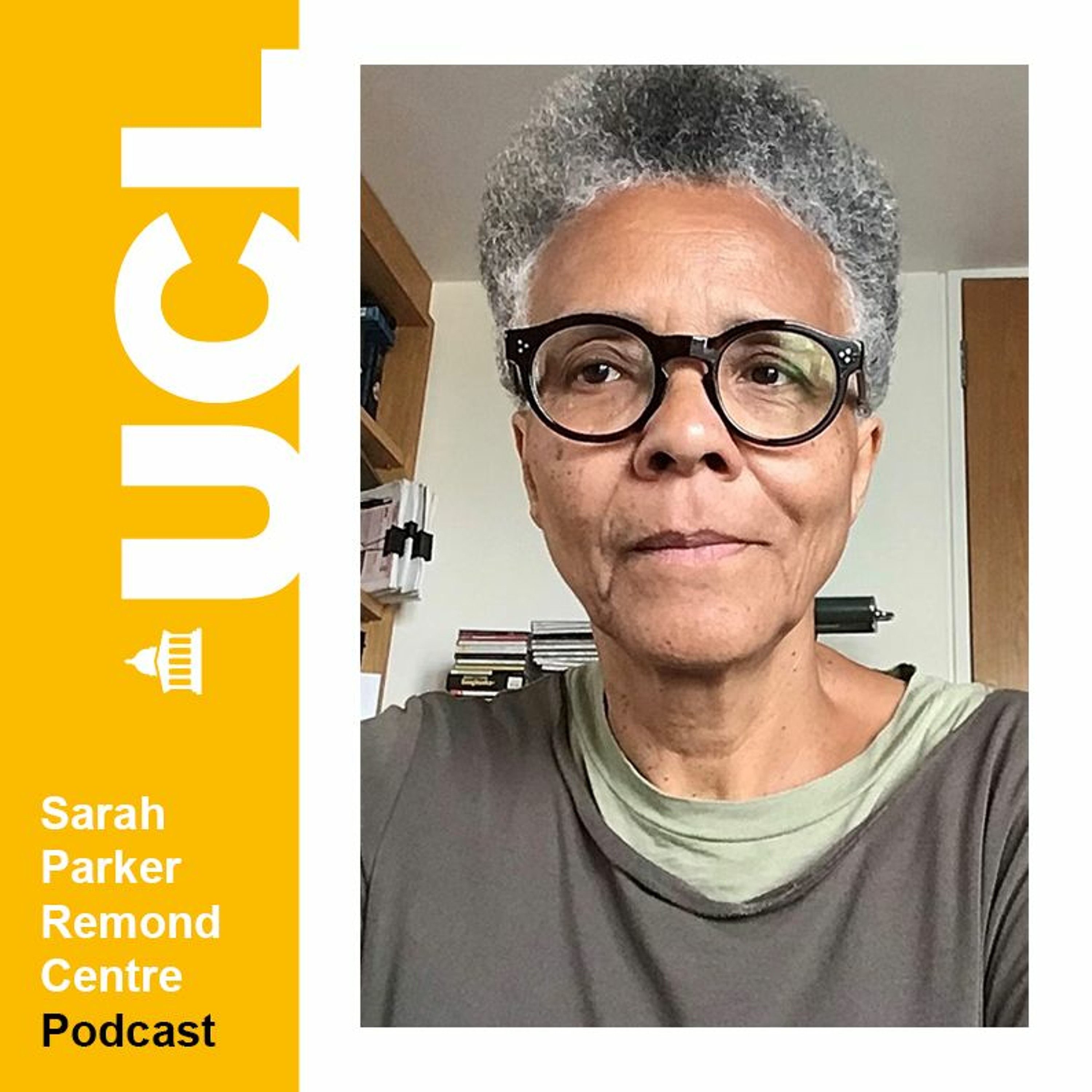 UCL Institute of Advanced StudiesSPRC In conversation with Gail LewisGail Lewis, psychotherapist and Visiting Senior Fellow at LSE, joins us for a conversation on Britain’s racial formation; speaking across the generational lines; and how music captures life and sustains us. Gail offers her psychoanalysis on black lives ‘mattering’ and how “being present to the aliveness, and the moments of deadening, and the moments of possibility, even in silence, really teaches you something about being ‘with’.”
Transcript: www.ucl.ac.uk/racism-racialisation/transcript-conversation-gail-lewis
This conversation was recorded on 13th July 2020
Speakers: Paul Gilroy, Director of the UCL Sarah Parker Remond Centre // Gail Lewis, Visiting Senior Fellow in the Department of Gender Stud...2020-08-1832 min
UCL Institute of Advanced StudiesSPRC In conversation with Gail LewisGail Lewis, psychotherapist and Visiting Senior Fellow at LSE, joins us for a conversation on Britain’s racial formation; speaking across the generational lines; and how music captures life and sustains us. Gail offers her psychoanalysis on black lives ‘mattering’ and how “being present to the aliveness, and the moments of deadening, and the moments of possibility, even in silence, really teaches you something about being ‘with’.”
Transcript: www.ucl.ac.uk/racism-racialisation/transcript-conversation-gail-lewis
This conversation was recorded on 13th July 2020
Speakers: Paul Gilroy, Director of the UCL Sarah Parker Remond Centre // Gail Lewis, Visiting Senior Fellow in the Department of Gender Stud...2020-08-1832 min UCL Sarah Parker Remond Centre PodcastIn conversation with Gail LewisGail Lewis, psychotherapist and Visiting Senior Fellow at LSE, joins us for a conversation on Britain’s racial formation; speaking across the generational lines; and how music captures life and sustains us. Gail offers her psychoanalysis on black lives ‘mattering’ and how “being present to the aliveness, and the moments of deadening, and the moments of possibility, even in silence, really teaches you something about being ‘with’.”Transcript: www.ucl.ac.uk/racism-racialisation/transcript-conversation-gail-lewisThis conversation was recorded on 13th July 2020Speakers: Paul Gilroy, Director of the UCL Sarah Parker Remond Centre...2020-08-1832 min
UCL Sarah Parker Remond Centre PodcastIn conversation with Gail LewisGail Lewis, psychotherapist and Visiting Senior Fellow at LSE, joins us for a conversation on Britain’s racial formation; speaking across the generational lines; and how music captures life and sustains us. Gail offers her psychoanalysis on black lives ‘mattering’ and how “being present to the aliveness, and the moments of deadening, and the moments of possibility, even in silence, really teaches you something about being ‘with’.”Transcript: www.ucl.ac.uk/racism-racialisation/transcript-conversation-gail-lewisThis conversation was recorded on 13th July 2020Speakers: Paul Gilroy, Director of the UCL Sarah Parker Remond Centre...2020-08-1832 min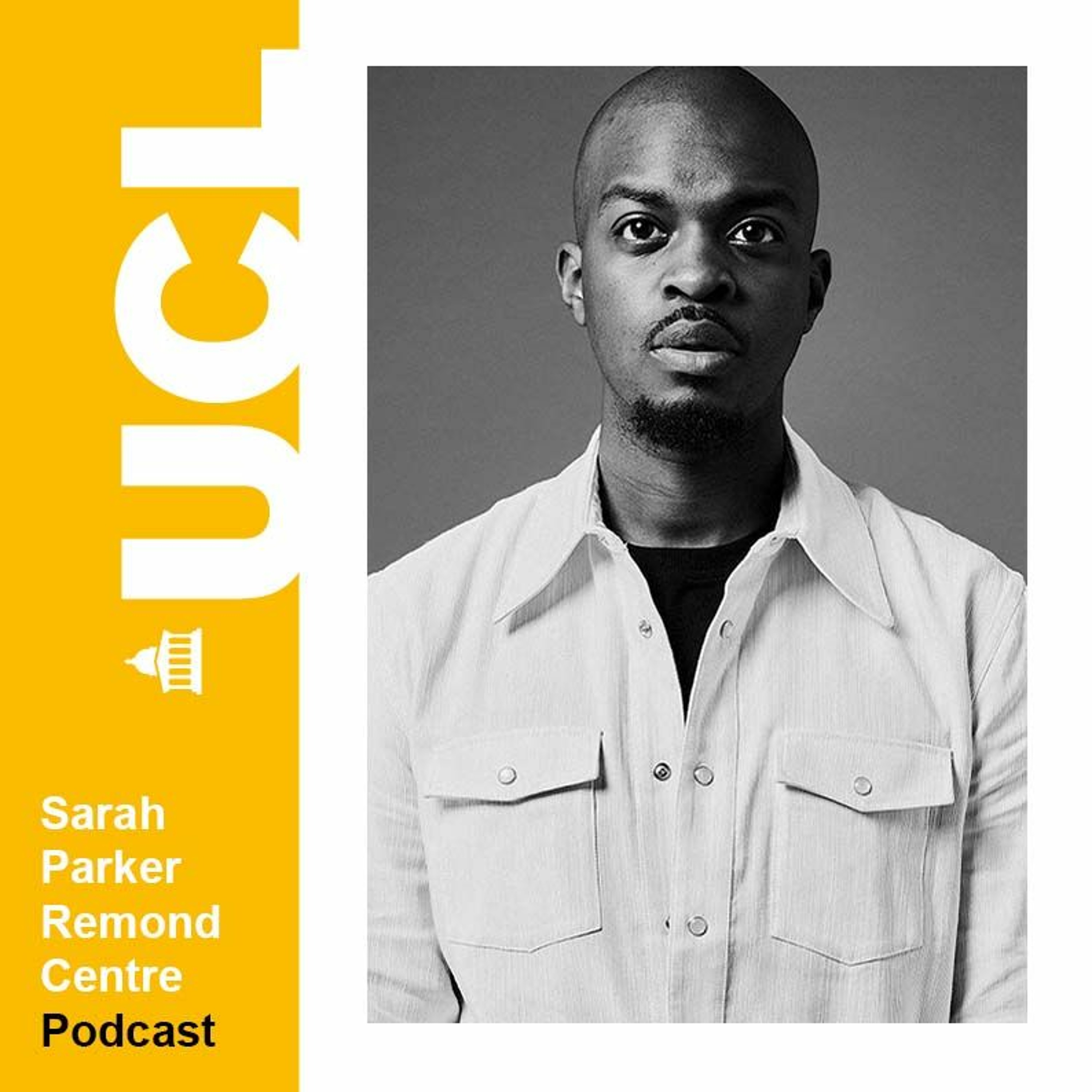 UCL Institute of Advanced StudiesSPRC In conversation with George the PoetPaul Gilroy is joined by George the Poet, for a conversation on poetry, podcasting and storytelling; looking at how hybridity and sociological thought have impacted George’s process of intuition and priorities in advocating for his community. George also discusses how, moving forward, these priorities are evolving around communication systems, value creation and academia.
Transcript: www.ucl.ac.uk/racism-racialisation/transcript-conversation-george-poet
This conversation was recorded on 9th July 2020
Speakers: Paul Gilroy, Director of the UCL Sarah Parker Remond Centre // George the Poet, spoken-word artist, poet and podcast host of 'Have You Heard George’s Podcast?'
Producer and Editor: Kaissa Karh...2020-08-1128 min
UCL Institute of Advanced StudiesSPRC In conversation with George the PoetPaul Gilroy is joined by George the Poet, for a conversation on poetry, podcasting and storytelling; looking at how hybridity and sociological thought have impacted George’s process of intuition and priorities in advocating for his community. George also discusses how, moving forward, these priorities are evolving around communication systems, value creation and academia.
Transcript: www.ucl.ac.uk/racism-racialisation/transcript-conversation-george-poet
This conversation was recorded on 9th July 2020
Speakers: Paul Gilroy, Director of the UCL Sarah Parker Remond Centre // George the Poet, spoken-word artist, poet and podcast host of 'Have You Heard George’s Podcast?'
Producer and Editor: Kaissa Karh...2020-08-1128 min UCL Sarah Parker Remond Centre PodcastIn conversation with George the PoetPaul Gilroy is joined by George the Poet, for a conversation on poetry, podcasting and storytelling; looking at how hybridity and sociological thought have impacted George’s process of intuition and priorities in advocating for his community. George also discusses how, moving forward, these priorities are evolving around communication systems, value creation and academia.Transcript: www.ucl.ac.uk/racism-racialisation/transcript-conversation-george-poetThis conversation was recorded on 9th July 2020Speakers: Paul Gilroy, Director of the UCL Sarah Parker Remond Centre // George the Poet, spoken-word artist, poet and podcast host of Have You He...2020-08-1128 min
UCL Sarah Parker Remond Centre PodcastIn conversation with George the PoetPaul Gilroy is joined by George the Poet, for a conversation on poetry, podcasting and storytelling; looking at how hybridity and sociological thought have impacted George’s process of intuition and priorities in advocating for his community. George also discusses how, moving forward, these priorities are evolving around communication systems, value creation and academia.Transcript: www.ucl.ac.uk/racism-racialisation/transcript-conversation-george-poetThis conversation was recorded on 9th July 2020Speakers: Paul Gilroy, Director of the UCL Sarah Parker Remond Centre // George the Poet, spoken-word artist, poet and podcast host of Have You He...2020-08-1128 min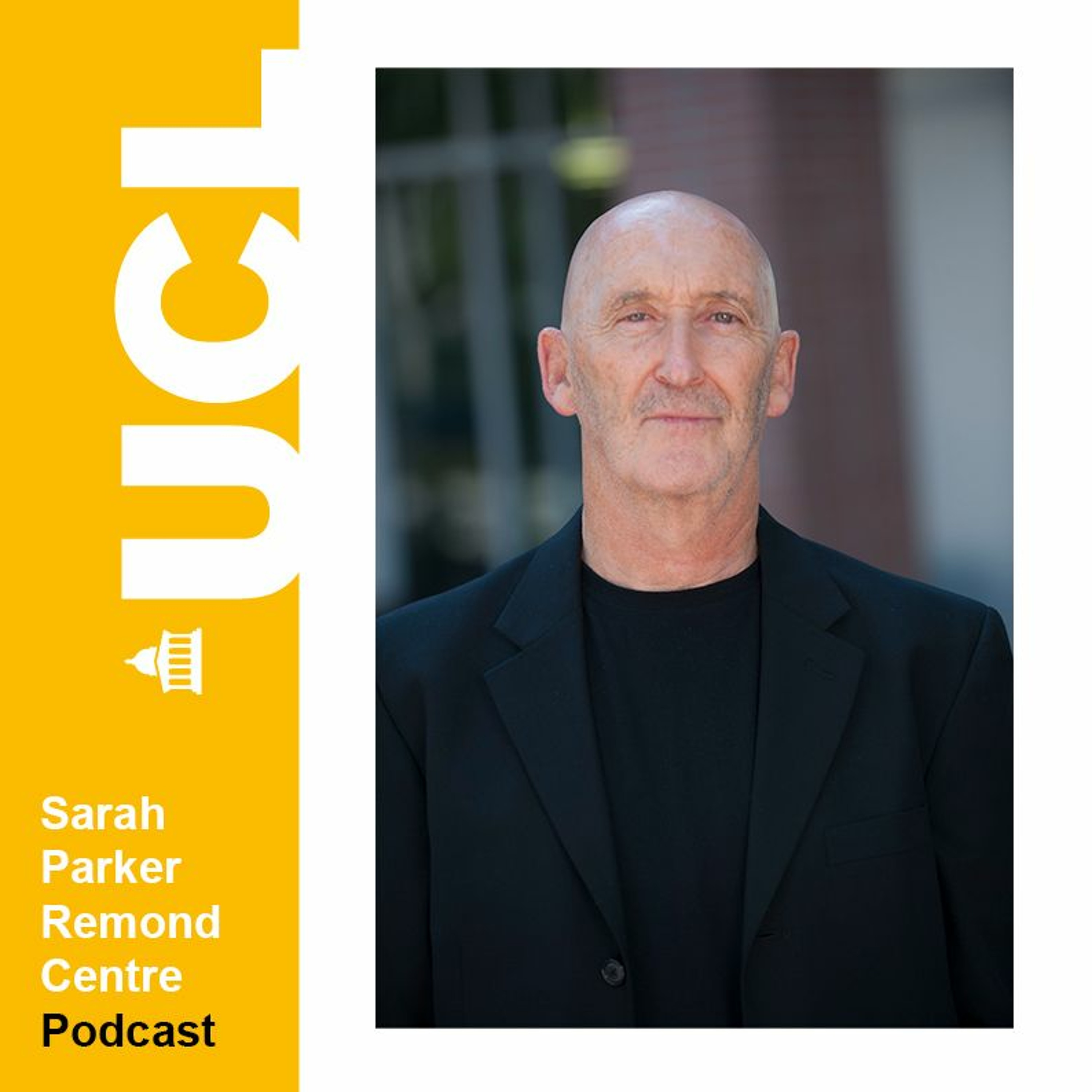 UCL Institute of Advanced StudiesSPRC In conversation with David Theo GoldbergDavid Theo Goldberg, Director of the University of California’s Humanities Research Institute, offers his insight about the state of critical thinking around race and racism, and the effacement of historicality in favour of presentism; and responds to the sanction of comparativisms and relationalities as “racism anywhere is not possible to be upheld without racisms elsewhere”.
Transcript: www.ucl.ac.uk/racism-racialisation/transcript-conversation-david-theo-goldberg
This conversation was recorded on 8th July 2020
Speakers: Paul Gilroy, Director of the UCL Sarah Parker Remond Centre // David Theo Goldberg, Director of the University of California Humanities Research Institute
Producer and Editor: Kaissa Karhu
www.ucl.ac.uk...2020-07-2930 min
UCL Institute of Advanced StudiesSPRC In conversation with David Theo GoldbergDavid Theo Goldberg, Director of the University of California’s Humanities Research Institute, offers his insight about the state of critical thinking around race and racism, and the effacement of historicality in favour of presentism; and responds to the sanction of comparativisms and relationalities as “racism anywhere is not possible to be upheld without racisms elsewhere”.
Transcript: www.ucl.ac.uk/racism-racialisation/transcript-conversation-david-theo-goldberg
This conversation was recorded on 8th July 2020
Speakers: Paul Gilroy, Director of the UCL Sarah Parker Remond Centre // David Theo Goldberg, Director of the University of California Humanities Research Institute
Producer and Editor: Kaissa Karhu
www.ucl.ac.uk...2020-07-2930 min UCL Sarah Parker Remond Centre PodcastIn conversation with David Theo GoldbergDavid Theo Goldberg, Director of the University of California’s Humanities Research Institute, offers his insight about the state of critical thinking around race and racism, and the effacement of historicality in favour of presentism; and responds to the sanction of comparativisms and relationalities as “racism anywhere is not possible to be upheld without racisms elsewhere”.Transcript: www.ucl.ac.uk/racism-racialisation/transcript-conversation-david-theo-goldbergThis conversation was recorded on 8th July 2020Speakers: Paul Gilroy, Director of the UCL Sarah Parker Remond Centre // David Theo Goldberg, Director of the University of California Humanit...2020-07-2930 min
UCL Sarah Parker Remond Centre PodcastIn conversation with David Theo GoldbergDavid Theo Goldberg, Director of the University of California’s Humanities Research Institute, offers his insight about the state of critical thinking around race and racism, and the effacement of historicality in favour of presentism; and responds to the sanction of comparativisms and relationalities as “racism anywhere is not possible to be upheld without racisms elsewhere”.Transcript: www.ucl.ac.uk/racism-racialisation/transcript-conversation-david-theo-goldbergThis conversation was recorded on 8th July 2020Speakers: Paul Gilroy, Director of the UCL Sarah Parker Remond Centre // David Theo Goldberg, Director of the University of California Humanit...2020-07-2930 min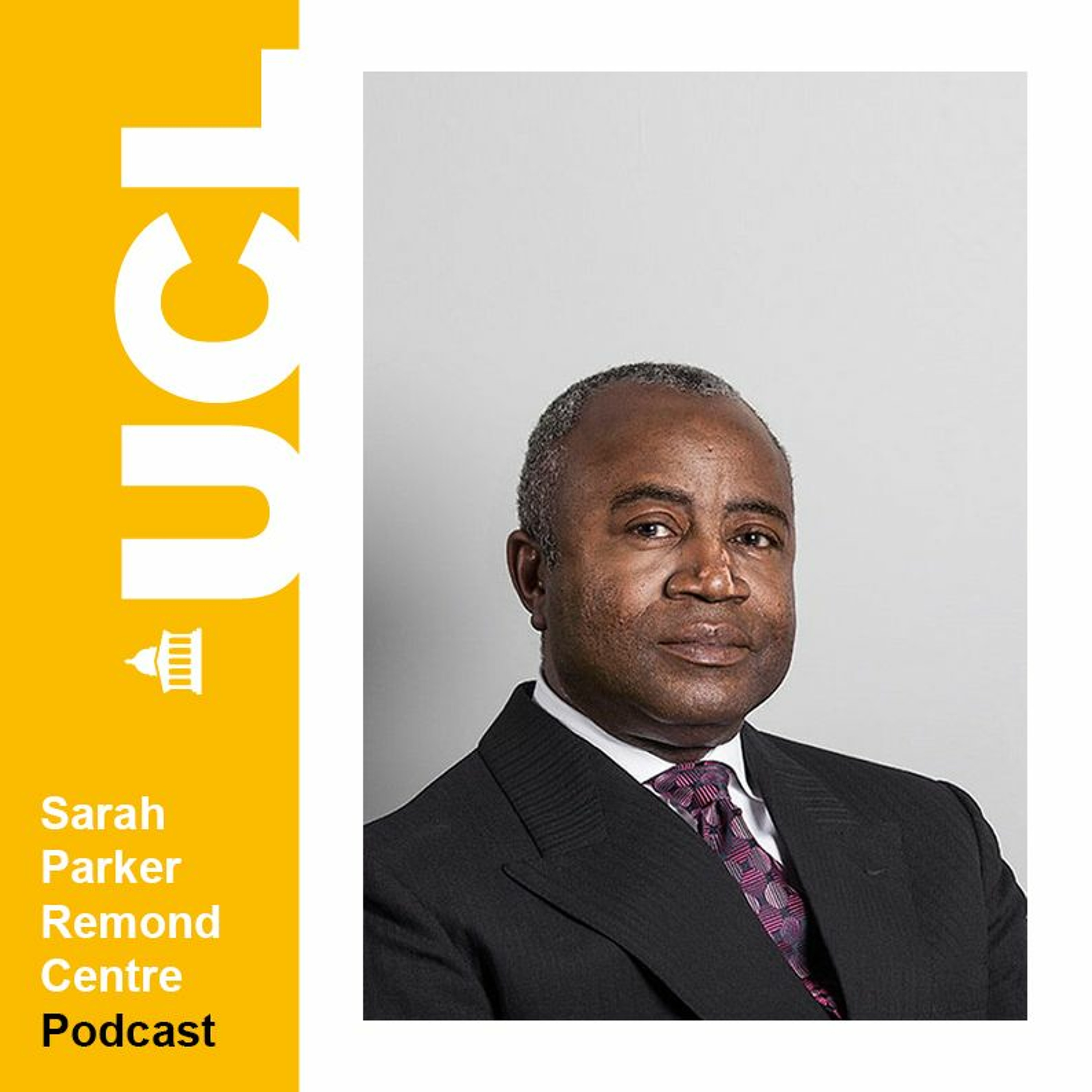 UCL Institute of Advanced StudiesSPRC In conversation with Courtenay Griffiths QCPaul Gilroy is joined by Courtenay Griffiths QC, distinguished criminal defence advocate with 40 years of experience, for a conversation on racism within the criminal justice system and its disproportionate effect on black people, and the need to confront patterns of criminalisation, the hierarchy within institutions and reforming education in relation to this.
Transcript: www.ucl.ac.uk/racism-racialisation/transcript-conversation-courtenay-griffiths-qc
This conversation was recorded on 24th June 2020
Speakers: Paul Gilroy, Director of the UCL Sarah Parker Remond Centre // Courtenay Griffiths QC, Barrister, 25 Bedford Row
Producer and Editor: Kaissa Karhu
www.ucl.ac.uk/racism-racialisation/podcasts2020-07-2238 min
UCL Institute of Advanced StudiesSPRC In conversation with Courtenay Griffiths QCPaul Gilroy is joined by Courtenay Griffiths QC, distinguished criminal defence advocate with 40 years of experience, for a conversation on racism within the criminal justice system and its disproportionate effect on black people, and the need to confront patterns of criminalisation, the hierarchy within institutions and reforming education in relation to this.
Transcript: www.ucl.ac.uk/racism-racialisation/transcript-conversation-courtenay-griffiths-qc
This conversation was recorded on 24th June 2020
Speakers: Paul Gilroy, Director of the UCL Sarah Parker Remond Centre // Courtenay Griffiths QC, Barrister, 25 Bedford Row
Producer and Editor: Kaissa Karhu
www.ucl.ac.uk/racism-racialisation/podcasts2020-07-2238 min UCL Sarah Parker Remond Centre PodcastIn conversation with Courtenay Griffiths QCPaul Gilroy is joined by Courtenay Griffiths QC, distinguished criminal defence advocate with 40 years of experience, for a conversation on racism within the criminal justice system and its disproportionate effect on black people, and the need to confront patterns of criminalisation, the hierarchy within institutions and reforming education in relation to this.Transcript: www.ucl.ac.uk/racism-racialisation/transcript-conversation-courtenay-griffiths-qcThis conversation was recorded on 24th June 2020Speakers: Paul Gilroy, Director of the UCL Sarah Parker Remond Centre // Courtenay Griffiths QC, Barrister, 25 Bedford RowProducer and Editor: Kaissa Karhu2020-07-2238 min
UCL Sarah Parker Remond Centre PodcastIn conversation with Courtenay Griffiths QCPaul Gilroy is joined by Courtenay Griffiths QC, distinguished criminal defence advocate with 40 years of experience, for a conversation on racism within the criminal justice system and its disproportionate effect on black people, and the need to confront patterns of criminalisation, the hierarchy within institutions and reforming education in relation to this.Transcript: www.ucl.ac.uk/racism-racialisation/transcript-conversation-courtenay-griffiths-qcThis conversation was recorded on 24th June 2020Speakers: Paul Gilroy, Director of the UCL Sarah Parker Remond Centre // Courtenay Griffiths QC, Barrister, 25 Bedford RowProducer and Editor: Kaissa Karhu2020-07-2238 min UCL Sarah Parker Remond Centre PodcastIn conversation with Suresh GroverSuresh Grover, Director of the anti-racist grassroots group The Monitoring Group, joins us to discuss his work and campaigning in the struggle against racism in Britain, the notion of black as a political colour and the vision of an inclusive political culture, and the importance of exposing the lived experiences of black communities in addressing institutional and state racism.Transcript: www.ucl.ac.uk/racism-racialisation/transcript-conversation-suresh-groverThis conversation was recorded on 23rd June 2020Speakers: Paul Gilroy, Director of the UCL Sarah Parker Remond Centre // Suresh Grover, Director of The Monitoring Grou...2020-07-1731 min
UCL Sarah Parker Remond Centre PodcastIn conversation with Suresh GroverSuresh Grover, Director of the anti-racist grassroots group The Monitoring Group, joins us to discuss his work and campaigning in the struggle against racism in Britain, the notion of black as a political colour and the vision of an inclusive political culture, and the importance of exposing the lived experiences of black communities in addressing institutional and state racism.Transcript: www.ucl.ac.uk/racism-racialisation/transcript-conversation-suresh-groverThis conversation was recorded on 23rd June 2020Speakers: Paul Gilroy, Director of the UCL Sarah Parker Remond Centre // Suresh Grover, Director of The Monitoring Grou...2020-07-1731 min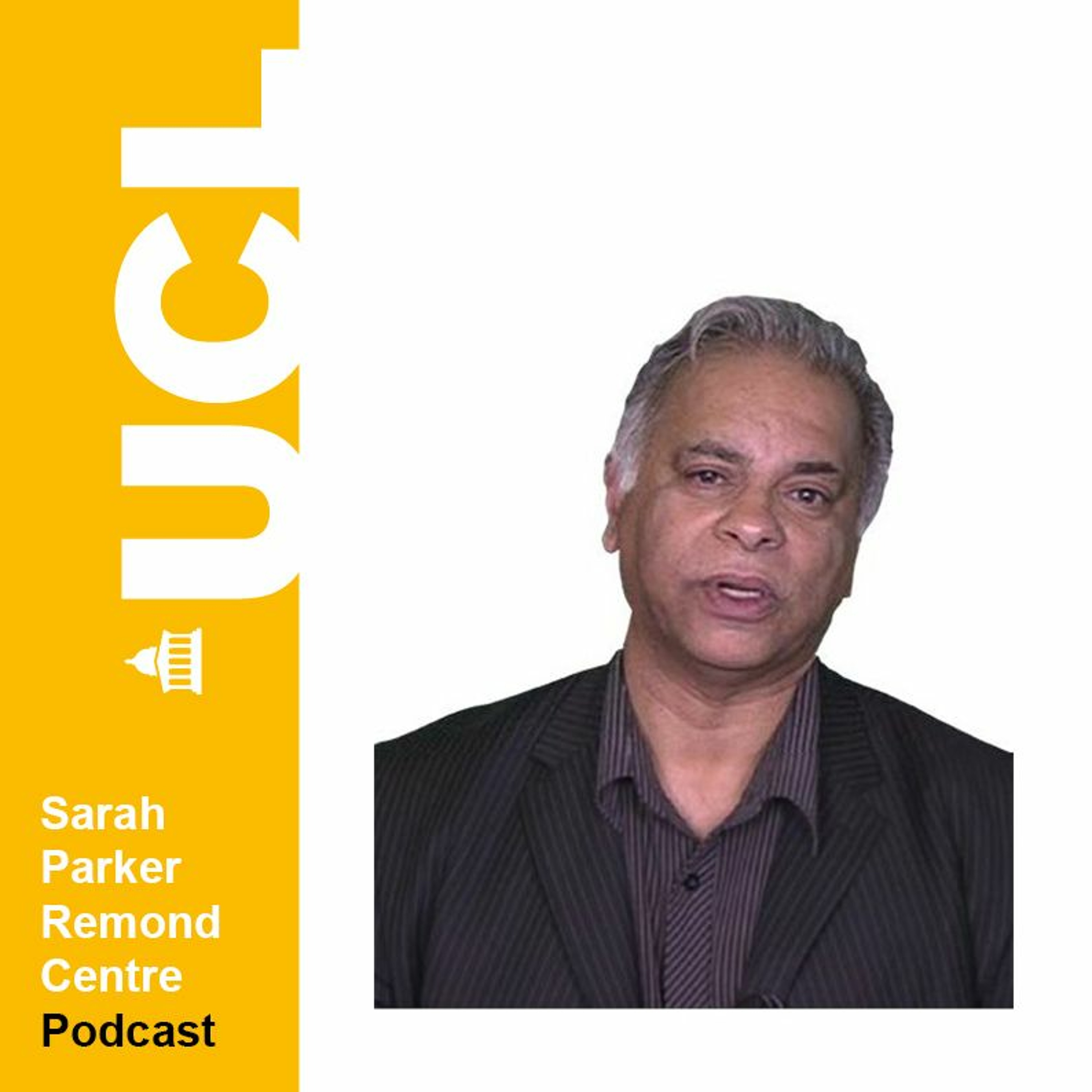 UCL Institute of Advanced StudiesSPRC In conversation with Suresh GroverSuresh Grover, Director of the anti-racist grassroots group The Monitoring Group, joins us to discuss his work and campaigning in the struggle against racism in Britain, the notion of black as a political colour and the vision of an inclusive political culture, and the importance of exposing the lived experiences of black communities in addressing institutional and state racism.
Transcript: www.ucl.ac.uk/racism-racialisation/transcript-conversation-suresh-grover
This conversation was recorded on 23rd June 2020
Speakers: Paul Gilroy, Director of the UCL Sarah Parker Remond Centre // Suresh Grover, Director of The Monitoring Group
Producer and Editor: Kaissa Karhu
www.ucl.ac.uk...2020-07-1731 min
UCL Institute of Advanced StudiesSPRC In conversation with Suresh GroverSuresh Grover, Director of the anti-racist grassroots group The Monitoring Group, joins us to discuss his work and campaigning in the struggle against racism in Britain, the notion of black as a political colour and the vision of an inclusive political culture, and the importance of exposing the lived experiences of black communities in addressing institutional and state racism.
Transcript: www.ucl.ac.uk/racism-racialisation/transcript-conversation-suresh-grover
This conversation was recorded on 23rd June 2020
Speakers: Paul Gilroy, Director of the UCL Sarah Parker Remond Centre // Suresh Grover, Director of The Monitoring Group
Producer and Editor: Kaissa Karhu
www.ucl.ac.uk...2020-07-1731 min UCL Sarah Parker Remond Centre PodcastIn conversation with Nikhil Pal SinghNikhil Pal Singh, Professor of Social and Cultural Analysis and History at NYU, talks us through ‘the unfinished struggle for democracy’ and the racialised ordering of systems in the United States; the balance of forces of the right and left; and the voice of corporate multiculturalism and celebrity renunciations of white privilege in response to Black Lives Matter.Transcript: www.ucl.ac.uk/racism-racialisation/transcript-conversation-nikhil-pal-singhThis conversation was recorded on 16th June 2020Speakers: Paul Gilroy, Director of the UCL Sarah Parker Remond Centre // Nikhil Pal Singh, Professor of Social and Cultura...2020-06-3029 min
UCL Sarah Parker Remond Centre PodcastIn conversation with Nikhil Pal SinghNikhil Pal Singh, Professor of Social and Cultural Analysis and History at NYU, talks us through ‘the unfinished struggle for democracy’ and the racialised ordering of systems in the United States; the balance of forces of the right and left; and the voice of corporate multiculturalism and celebrity renunciations of white privilege in response to Black Lives Matter.Transcript: www.ucl.ac.uk/racism-racialisation/transcript-conversation-nikhil-pal-singhThis conversation was recorded on 16th June 2020Speakers: Paul Gilroy, Director of the UCL Sarah Parker Remond Centre // Nikhil Pal Singh, Professor of Social and Cultura...2020-06-3029 min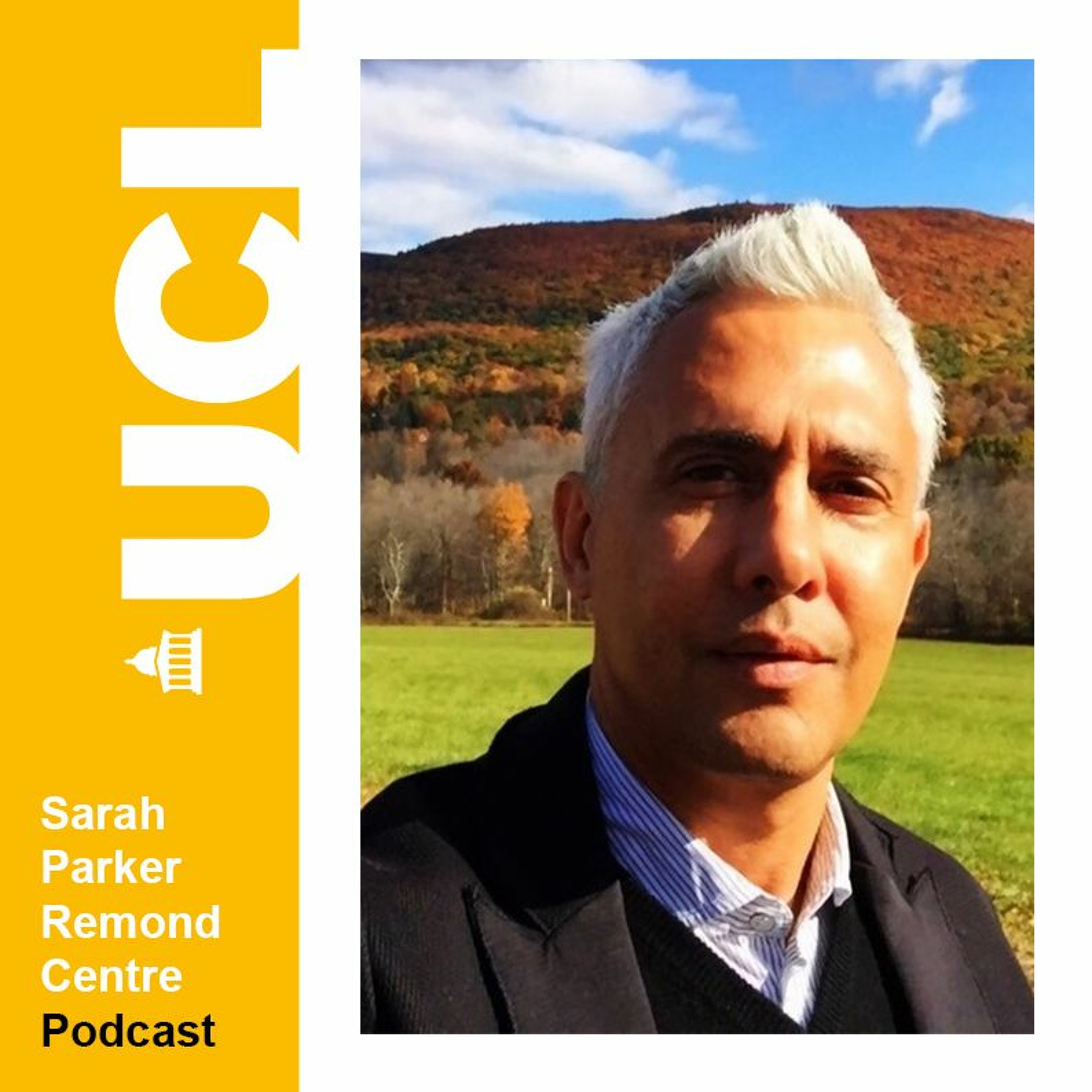 UCL Institute of Advanced StudiesSPRC In conversation with Nikhil Pal SinghNikhil Pal Singh, Professor of Social and Cultural Analysis and History at NYU, talks us through ‘the unfinished struggle for democracy’ and the racialised ordering of systems in the United States; the balance of forces of the right and left; and the voice of corporate multiculturalism and celebrity renunciations of white privilege in response to Black Lives Matter.
Transcript: www.ucl.ac.uk/racism-racialisation/transcript-conversation-nikhil-pal-singh
This conversation was recorded on 16th June 2020
Speakers: Paul Gilroy, Director of the UCL Sarah Parker Remond Centre // Nikhil Pal Singh, Professor of Social and Cultural Analysis and History, and Faculty Director of the NYU Pris...2020-06-3029 min
UCL Institute of Advanced StudiesSPRC In conversation with Nikhil Pal SinghNikhil Pal Singh, Professor of Social and Cultural Analysis and History at NYU, talks us through ‘the unfinished struggle for democracy’ and the racialised ordering of systems in the United States; the balance of forces of the right and left; and the voice of corporate multiculturalism and celebrity renunciations of white privilege in response to Black Lives Matter.
Transcript: www.ucl.ac.uk/racism-racialisation/transcript-conversation-nikhil-pal-singh
This conversation was recorded on 16th June 2020
Speakers: Paul Gilroy, Director of the UCL Sarah Parker Remond Centre // Nikhil Pal Singh, Professor of Social and Cultural Analysis and History, and Faculty Director of the NYU Pris...2020-06-3029 min UCL Sarah Parker Remond Centre PodcastIn conversation with Achille MbembeAchille Mbembe, author, commentator and philosopher, addresses his recent work The Universal Right to Breathe and Brutalisme in the context of the racial disparity of deaths and racially inflicted violence; speaking on the power of witnessing in preventing others from being expropriated of their breath, and the significance of respiration at the beginning and end of life.Transcript: www.ucl.ac.uk/racism-racialisation/transcript-conversation-achille-mbembeThis conversation was recorded on 17th June 2020Speakers: Paul Gilroy, Director of the UCL Sarah Parker Remond Centre // Achille Mbembe, Research Professor at the Wits Institute For So...2020-06-2531 min
UCL Sarah Parker Remond Centre PodcastIn conversation with Achille MbembeAchille Mbembe, author, commentator and philosopher, addresses his recent work The Universal Right to Breathe and Brutalisme in the context of the racial disparity of deaths and racially inflicted violence; speaking on the power of witnessing in preventing others from being expropriated of their breath, and the significance of respiration at the beginning and end of life.Transcript: www.ucl.ac.uk/racism-racialisation/transcript-conversation-achille-mbembeThis conversation was recorded on 17th June 2020Speakers: Paul Gilroy, Director of the UCL Sarah Parker Remond Centre // Achille Mbembe, Research Professor at the Wits Institute For So...2020-06-2531 min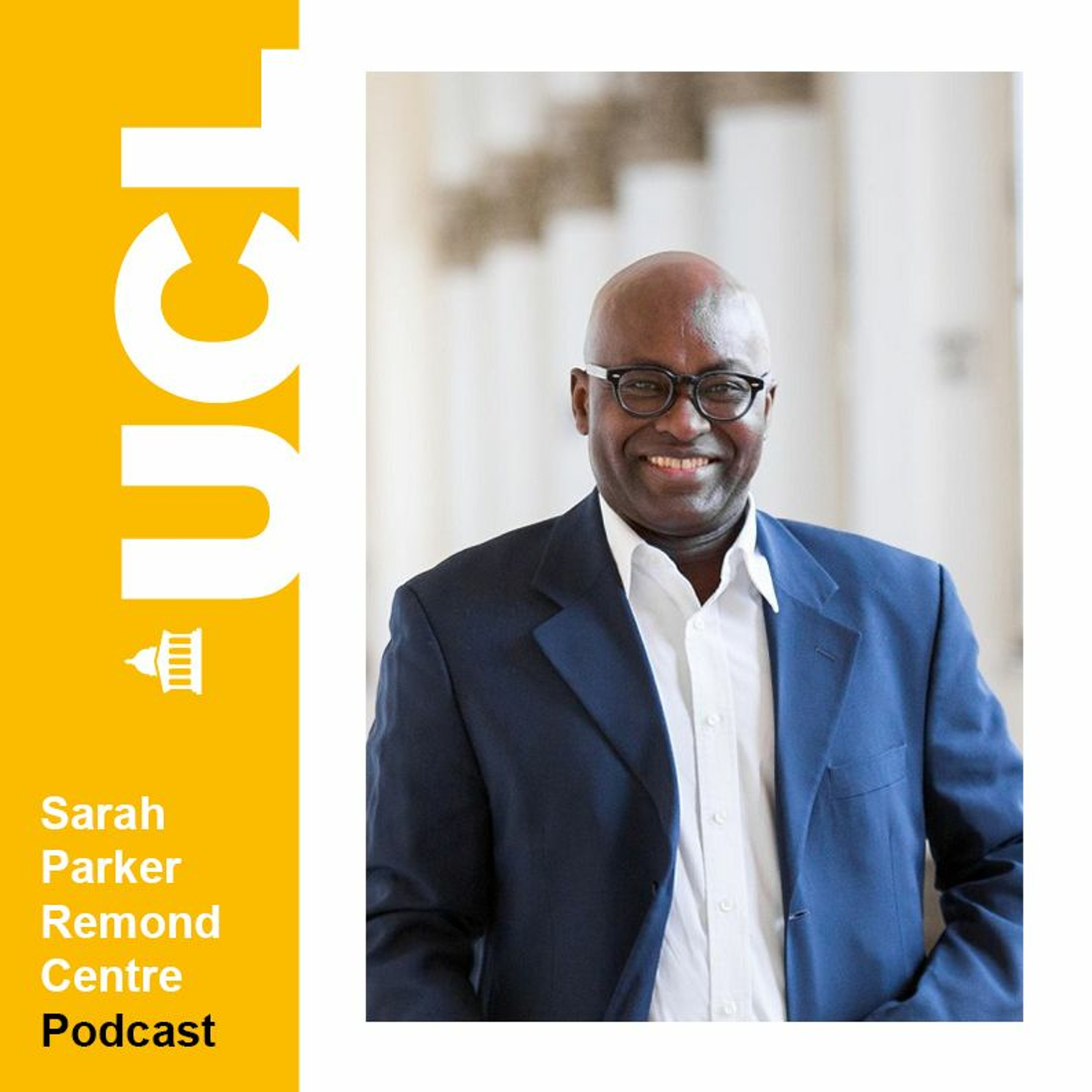 UCL Institute of Advanced StudiesSPRC In conversation with Achille MbembeAchille Mbembe, author, commentator and philosopher, addresses his recent work The Universal Right to Breathe and Brutalisme in the context of the racial disparity of deaths and racially inflicted violence; speaking on the power of witnessing in preventing others from being expropriated of their breath, and the significance of respiration at the beginning and end of life.
Transcript: www.ucl.ac.uk/racism-racialisation/transcript-conversation-achille-mbembe
This conversation was recorded on 17th June 2020
Speakers: Paul Gilroy, Director of the UCL Sarah Parker Remond Centre // Achille Mbembe, Research Professor at the Wits Institute For Social and Economic Research, University of the Witwatersrand, Johannesburg
...2020-06-2531 min
UCL Institute of Advanced StudiesSPRC In conversation with Achille MbembeAchille Mbembe, author, commentator and philosopher, addresses his recent work The Universal Right to Breathe and Brutalisme in the context of the racial disparity of deaths and racially inflicted violence; speaking on the power of witnessing in preventing others from being expropriated of their breath, and the significance of respiration at the beginning and end of life.
Transcript: www.ucl.ac.uk/racism-racialisation/transcript-conversation-achille-mbembe
This conversation was recorded on 17th June 2020
Speakers: Paul Gilroy, Director of the UCL Sarah Parker Remond Centre // Achille Mbembe, Research Professor at the Wits Institute For Social and Economic Research, University of the Witwatersrand, Johannesburg
...2020-06-2531 min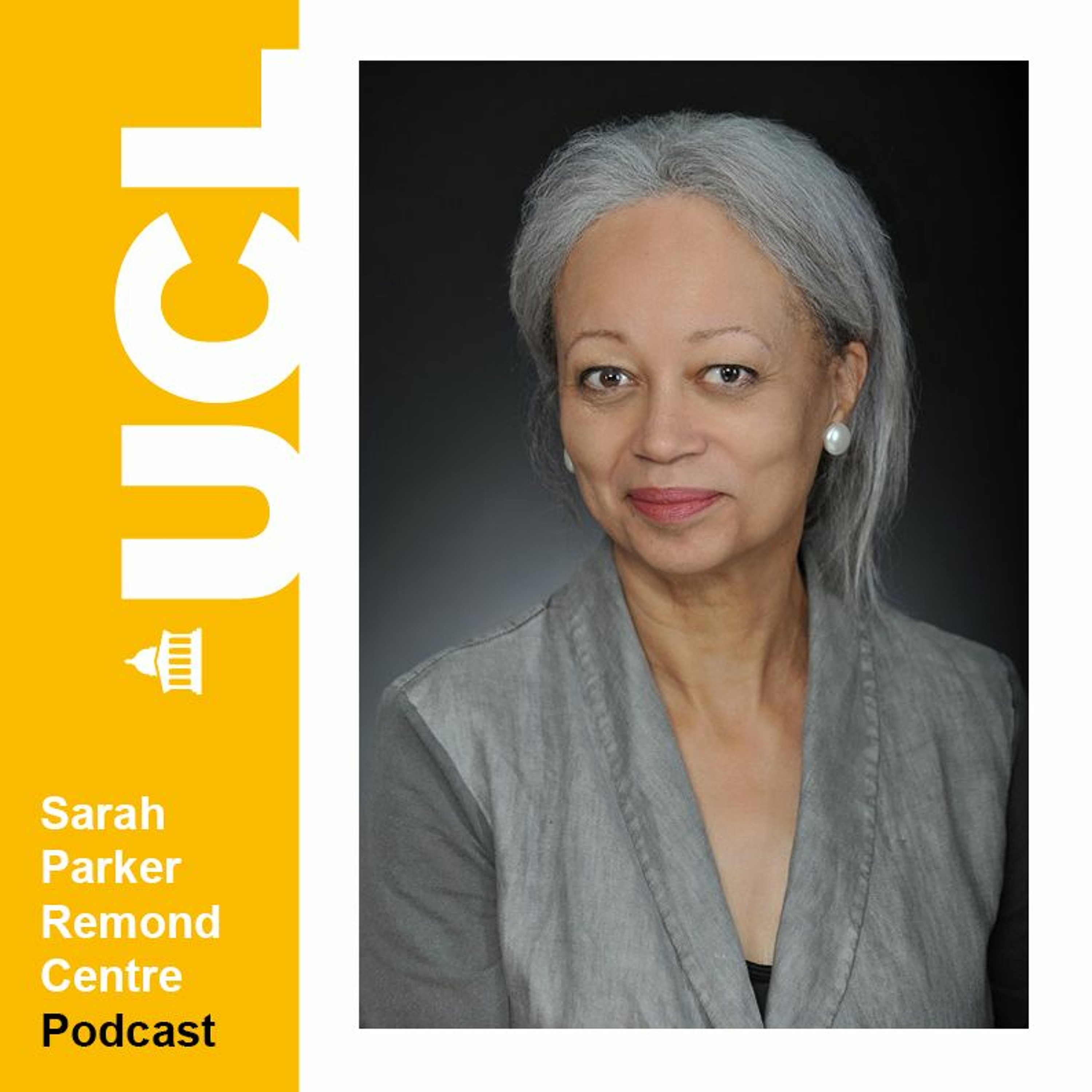 UCL Institute of Advanced StudiesSPRC In conversation with Patricia J. WilliamsDistinguished writer, commentator and American legal scholar, Patricia J. Williams joins Paul Gilroy to talk about the legacies of Critical Race Theory, the eugenic character of racialised governance and the current call to defund the police.
Transcript: www.ucl.ac.uk/racism-racialisation/transcript-conversation-patricia-j-williams
This conversation was recorded on 12th June 2020. Apologies for the noise of a smoke alarm in the background.
Speakers: Paul Gilroy, Director of the UCL Sarah Parker Remond Centre // Patricia J. Williams, University Distinguished Professor of Law and Humanities at Northeastern University, Boston
Producer and Editor: Kaissa Karhu
www.ucl.ac.uk/racism-racialisation/podcasts2020-06-1824 min
UCL Institute of Advanced StudiesSPRC In conversation with Patricia J. WilliamsDistinguished writer, commentator and American legal scholar, Patricia J. Williams joins Paul Gilroy to talk about the legacies of Critical Race Theory, the eugenic character of racialised governance and the current call to defund the police.
Transcript: www.ucl.ac.uk/racism-racialisation/transcript-conversation-patricia-j-williams
This conversation was recorded on 12th June 2020. Apologies for the noise of a smoke alarm in the background.
Speakers: Paul Gilroy, Director of the UCL Sarah Parker Remond Centre // Patricia J. Williams, University Distinguished Professor of Law and Humanities at Northeastern University, Boston
Producer and Editor: Kaissa Karhu
www.ucl.ac.uk/racism-racialisation/podcasts2020-06-1824 min UCL Sarah Parker Remond Centre PodcastIn conversation with Patricia J. WilliamsDistinguished writer, commentator and American legal scholar Patricia J. Williams joins Paul Gilroy to talk about the legacies of Critical Race Theory, the eugenic character of racialised governance and the current call to defund the police.Transcript: www.ucl.ac.uk/racism-racialisation/transcript-conversation-patricia-j-williamsThis conversation was recorded on 12th June 2020. Apologies for the noise of a smoke alarm in the background.Speakers: Paul Gilroy, Director of the UCL Sarah Parker Remond Centre // Patricia J. Williams, University Distinguished Professor of Law and Humanities at Northeastern University, BostonProducer and Edito...2020-06-1824 min
UCL Sarah Parker Remond Centre PodcastIn conversation with Patricia J. WilliamsDistinguished writer, commentator and American legal scholar Patricia J. Williams joins Paul Gilroy to talk about the legacies of Critical Race Theory, the eugenic character of racialised governance and the current call to defund the police.Transcript: www.ucl.ac.uk/racism-racialisation/transcript-conversation-patricia-j-williamsThis conversation was recorded on 12th June 2020. Apologies for the noise of a smoke alarm in the background.Speakers: Paul Gilroy, Director of the UCL Sarah Parker Remond Centre // Patricia J. Williams, University Distinguished Professor of Law and Humanities at Northeastern University, BostonProducer and Edito...2020-06-1824 min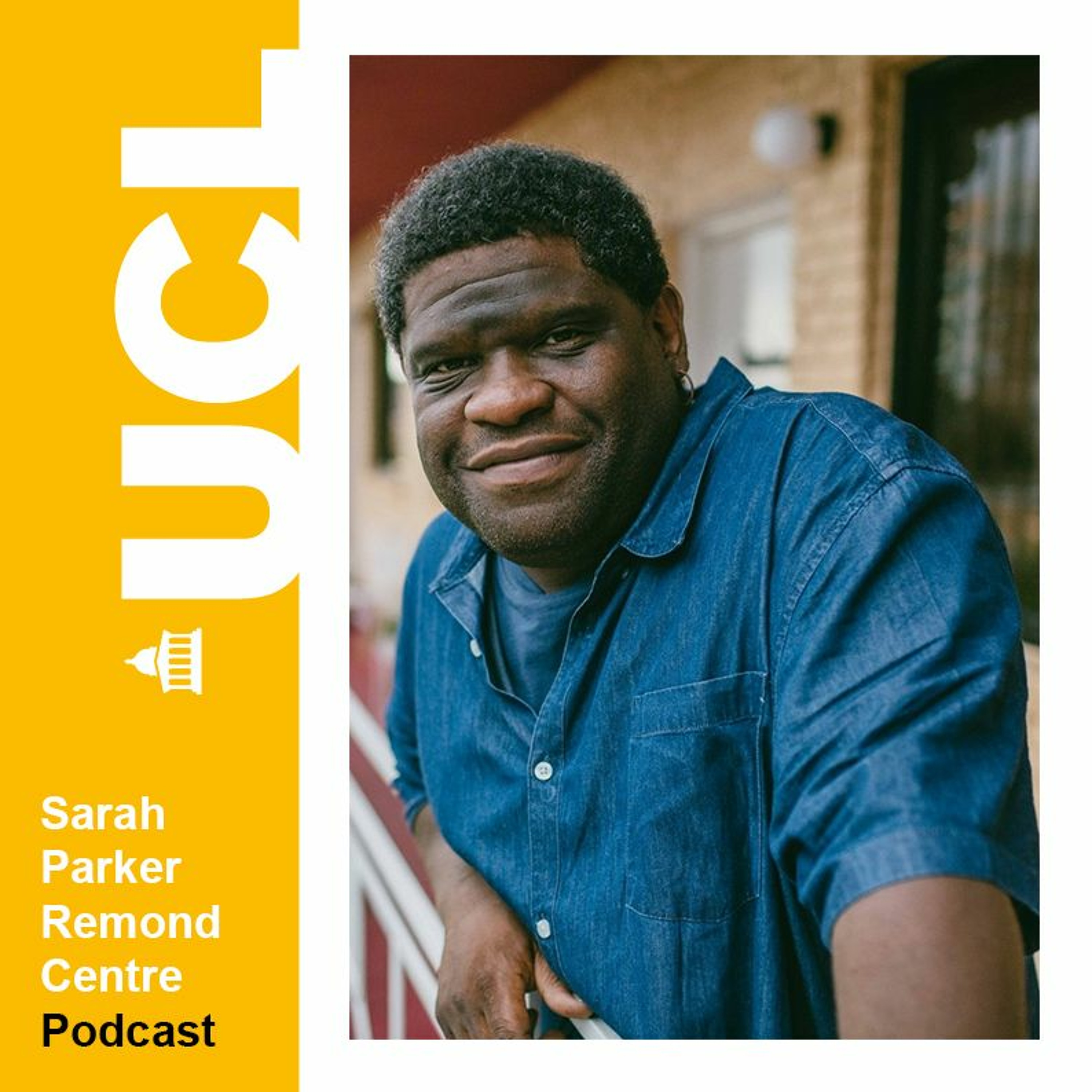 UCL Institute of Advanced StudiesSPRC In conversation with Gary YoungePaul Gilroy and Gary Younge, Professor of Sociology at Manchester University and distinguished journalist, reflect on Mark Twain’s reputed words ‘history doesn’t repeat itself but it rhymes’, the first political memories that shaped them, and the potential in engaging sympathy and humour critically.
Transcript: www.ucl.ac.uk/racism-racialisation/transcript-conversation-gary-younge
This conversation was recorded on 12th June 2020
Speakers: Paul Gilroy, Director of the UCL Sarah Parker Remond Centre // Gary Younge, Professor of Sociology at Manchester University and journalist
Producer and Editor: Kaissa Karhu
www.ucl.ac.uk/racism-racialisation/podcasts2020-06-1637 min
UCL Institute of Advanced StudiesSPRC In conversation with Gary YoungePaul Gilroy and Gary Younge, Professor of Sociology at Manchester University and distinguished journalist, reflect on Mark Twain’s reputed words ‘history doesn’t repeat itself but it rhymes’, the first political memories that shaped them, and the potential in engaging sympathy and humour critically.
Transcript: www.ucl.ac.uk/racism-racialisation/transcript-conversation-gary-younge
This conversation was recorded on 12th June 2020
Speakers: Paul Gilroy, Director of the UCL Sarah Parker Remond Centre // Gary Younge, Professor of Sociology at Manchester University and journalist
Producer and Editor: Kaissa Karhu
www.ucl.ac.uk/racism-racialisation/podcasts2020-06-1637 min UCL Sarah Parker Remond Centre PodcastIn conversation with Gary YoungePaul Gilroy and Gary Younge, Professor of Sociology at Manchester University and distinguished journalist, reflect on Mark Twain’s reputed words ‘history doesn’t repeat itself but it rhymes’, the first political memories that shaped them, and the potential in engaging sympathy and humour critically.Transcript: www.ucl.ac.uk/racism-racialisation/transcript-conversation-gary-youngeThis conversation was recorded on 12th June 2020Speakers: Paul Gilroy, Director of the UCL Sarah Parker Remond Centre // Gary Younge, Professor of Sociology at Manchester University and journalistProducer and Editor: Kaissa Karhuwww.ucl.ac.u...2020-06-1637 min
UCL Sarah Parker Remond Centre PodcastIn conversation with Gary YoungePaul Gilroy and Gary Younge, Professor of Sociology at Manchester University and distinguished journalist, reflect on Mark Twain’s reputed words ‘history doesn’t repeat itself but it rhymes’, the first political memories that shaped them, and the potential in engaging sympathy and humour critically.Transcript: www.ucl.ac.uk/racism-racialisation/transcript-conversation-gary-youngeThis conversation was recorded on 12th June 2020Speakers: Paul Gilroy, Director of the UCL Sarah Parker Remond Centre // Gary Younge, Professor of Sociology at Manchester University and journalistProducer and Editor: Kaissa Karhuwww.ucl.ac.u...2020-06-1637 min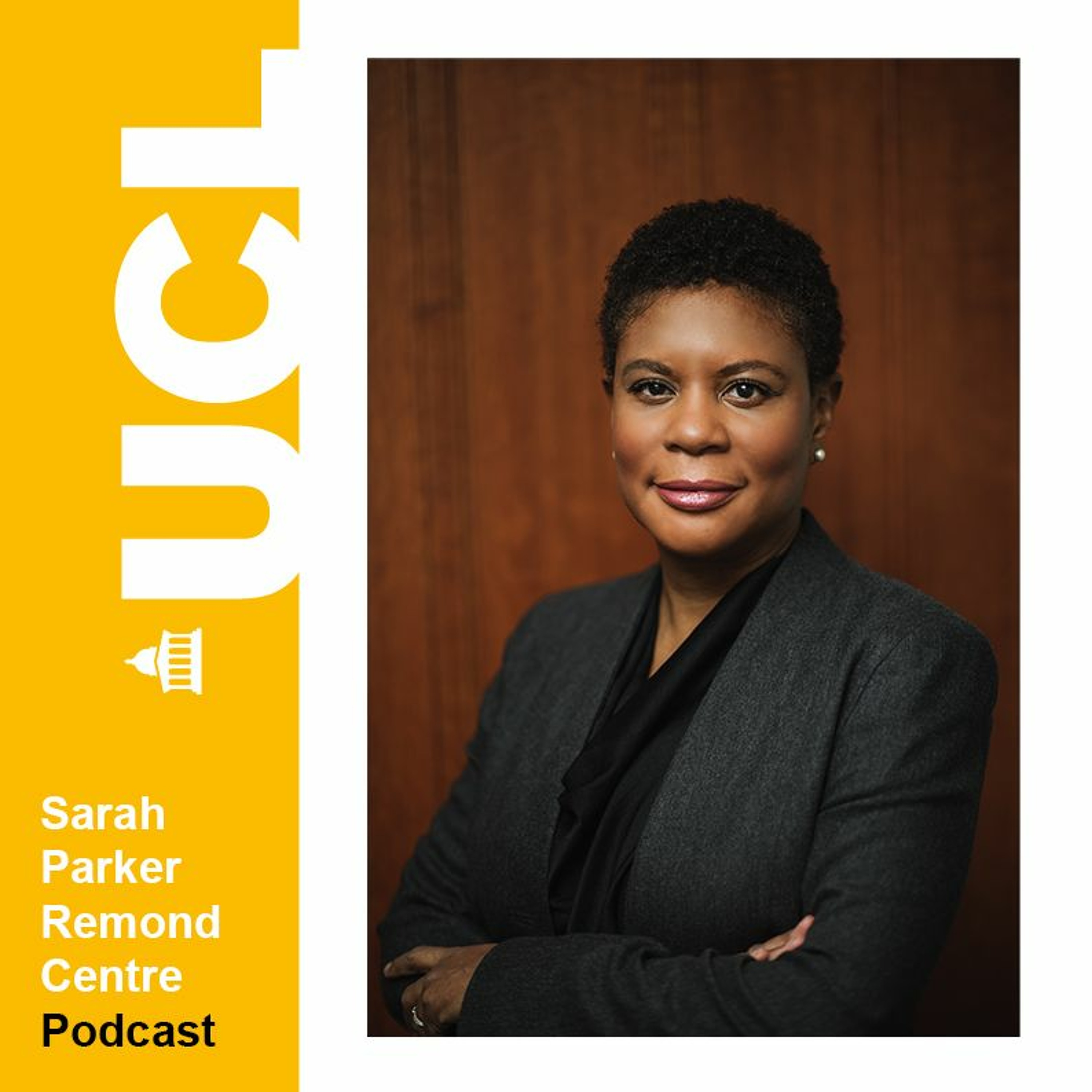 UCL Institute of Advanced StudiesSPRC In conversation with Alondra NelsonAlondra Nelson, President of the Social Science Research Council in the US and Harold F. Linder Chair in Social Science at the Institute for Advanced Study in Princeton, joins us to question who is assumed to be the disposable demographic, and the politics of genetic data and racial biology being used to understand the ‘black body’ during the Covid-19 pandemic.
Transcript: www.ucl.ac.uk/racism-racialisation/transcript-conversation-alondra-nelson
This conversation was recorded 8th June 2020
Speakers: Paul Gilroy, Director of the UCL Sarah Parker Remond Centre // Alondra Nelson, President of the Social Science Research Council and Harold F. Linder Chair in Social Scie...2020-06-1226 min
UCL Institute of Advanced StudiesSPRC In conversation with Alondra NelsonAlondra Nelson, President of the Social Science Research Council in the US and Harold F. Linder Chair in Social Science at the Institute for Advanced Study in Princeton, joins us to question who is assumed to be the disposable demographic, and the politics of genetic data and racial biology being used to understand the ‘black body’ during the Covid-19 pandemic.
Transcript: www.ucl.ac.uk/racism-racialisation/transcript-conversation-alondra-nelson
This conversation was recorded 8th June 2020
Speakers: Paul Gilroy, Director of the UCL Sarah Parker Remond Centre // Alondra Nelson, President of the Social Science Research Council and Harold F. Linder Chair in Social Scie...2020-06-1226 min UCL Sarah Parker Remond Centre PodcastIn conversation with Alondra NelsonAlondra Nelson, President of the Social Science Research Council in the US and Harold F. Linder Chair in Social Science at the Institute for Advanced Study in Princeton, joins us to question who is assumed to be the disposable demographic, and the politics of genetic data and racial biology being used to understand the ‘black body’ during the Covid-19 pandemic.Transcript: www.ucl.ac.uk/racism-racialisation/transcript-conversation-alondra-nelsonThis conversation was recorded on 8th June 2020Speakers: Paul Gilroy, Director of the UCL Sarah Parker Remond Centre // Alondra Nelson, President of the Social...2020-06-1226 min
UCL Sarah Parker Remond Centre PodcastIn conversation with Alondra NelsonAlondra Nelson, President of the Social Science Research Council in the US and Harold F. Linder Chair in Social Science at the Institute for Advanced Study in Princeton, joins us to question who is assumed to be the disposable demographic, and the politics of genetic data and racial biology being used to understand the ‘black body’ during the Covid-19 pandemic.Transcript: www.ucl.ac.uk/racism-racialisation/transcript-conversation-alondra-nelsonThis conversation was recorded on 8th June 2020Speakers: Paul Gilroy, Director of the UCL Sarah Parker Remond Centre // Alondra Nelson, President of the Social...2020-06-1226 min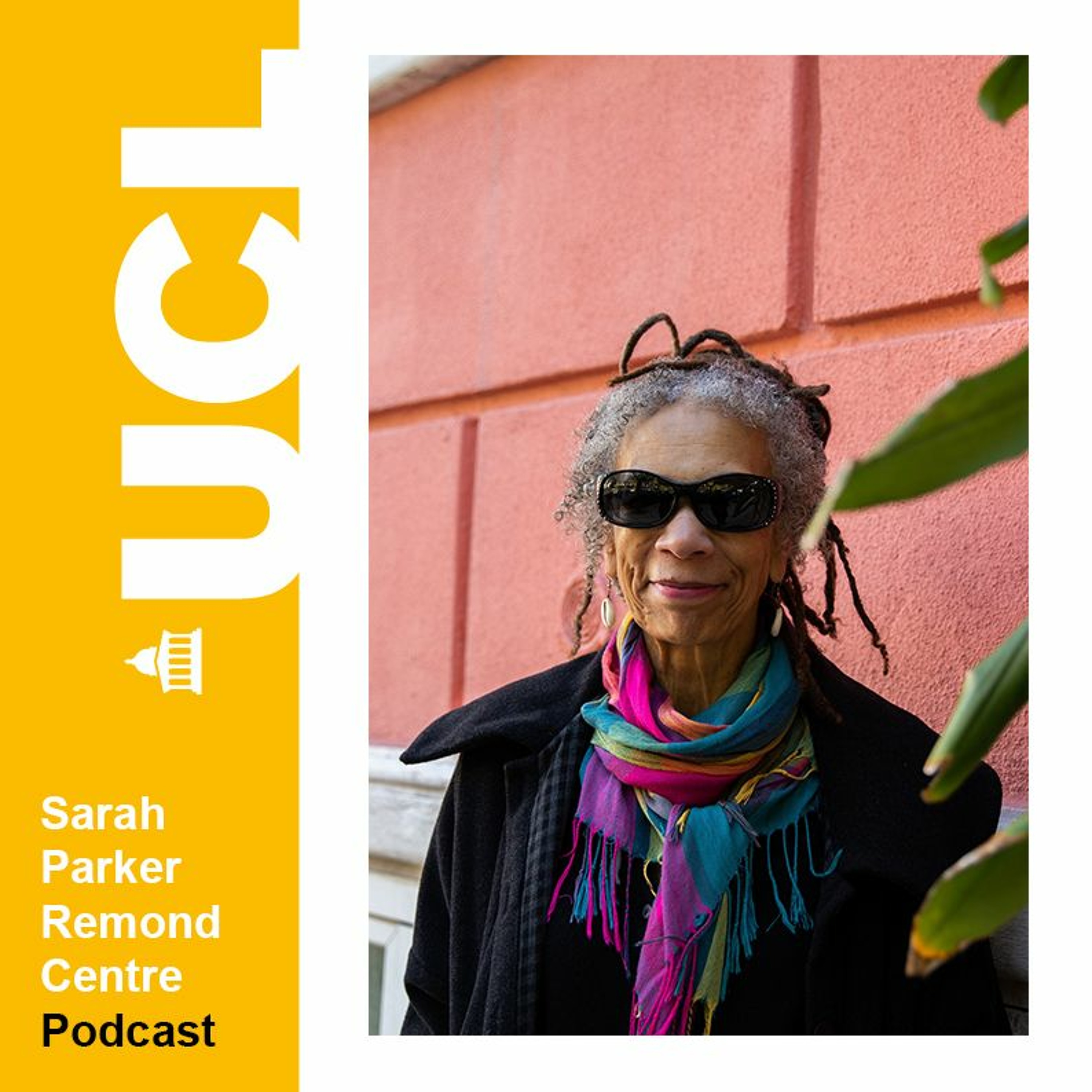 UCL Institute of Advanced StudiesSPRC In conversation with Ruth Wilson GilmoreWe’re joined by Ruth Wilson Gilmore, Professor of Geography in Earth and Environmental Sciences at CUNY, for a conversation on the current crises of Covid-19 and state violence, touching on the desire for learning as a means of activism, the political geography of mobilisation and double consciousness.
Transcript: www.ucl.ac.uk/racism-racialisation/transcript-conversation-ruth-wilson-gilmore
This conversation was recorded on 7th June 2020
Speakers: Paul Gilroy, Director of the UCL Sarah Parker Remond Centre // Ruth Wilson Gilmore, Professor of Earth and Environmental Sciences and Director of the Center for Place, Culture and Politics at CUNY Graduate Center
Producer and Editor: Kaissa Karhu
www.ucl.ac.u...2020-06-1042 min
UCL Institute of Advanced StudiesSPRC In conversation with Ruth Wilson GilmoreWe’re joined by Ruth Wilson Gilmore, Professor of Geography in Earth and Environmental Sciences at CUNY, for a conversation on the current crises of Covid-19 and state violence, touching on the desire for learning as a means of activism, the political geography of mobilisation and double consciousness.
Transcript: www.ucl.ac.uk/racism-racialisation/transcript-conversation-ruth-wilson-gilmore
This conversation was recorded on 7th June 2020
Speakers: Paul Gilroy, Director of the UCL Sarah Parker Remond Centre // Ruth Wilson Gilmore, Professor of Earth and Environmental Sciences and Director of the Center for Place, Culture and Politics at CUNY Graduate Center
Producer and Editor: Kaissa Karhu
www.ucl.ac.u...2020-06-1042 min UCL Sarah Parker Remond Centre PodcastIn conversation with Ruth Wilson GilmoreWe’re joined by Ruth Wilson Gilmore, Professor of Geography in Earth and Environmental Sciences at CUNY, for a conversation on the current crises of Covid-19 and state violence, touching on the desire for learning as a means of activism, the political geography of mobilisation and double consciousness.Transcript: www.ucl.ac.uk/racism-racialisation/transcript-conversation-ruth-wilson-gilmoreThis conversation was recorded on 7th June 2020Speakers: Paul Gilroy, Director of the UCL Sarah Parker Remond Centre // Ruth Wilson Gilmore, Professor of Earth and Environmental Sciences and Director of the Center for Place, Culture and...2020-06-1042 min
UCL Sarah Parker Remond Centre PodcastIn conversation with Ruth Wilson GilmoreWe’re joined by Ruth Wilson Gilmore, Professor of Geography in Earth and Environmental Sciences at CUNY, for a conversation on the current crises of Covid-19 and state violence, touching on the desire for learning as a means of activism, the political geography of mobilisation and double consciousness.Transcript: www.ucl.ac.uk/racism-racialisation/transcript-conversation-ruth-wilson-gilmoreThis conversation was recorded on 7th June 2020Speakers: Paul Gilroy, Director of the UCL Sarah Parker Remond Centre // Ruth Wilson Gilmore, Professor of Earth and Environmental Sciences and Director of the Center for Place, Culture and...2020-06-1042 min UCL Sarah Parker Remond Centre PodcastShort Takes: In the words of Sarah Parker RemondWelcome to our Short Takes podcast series! We'll be highlighting important research and conversations around the topics of racism and racialisation, with contributions from academics, activists and cultural practitioners.In the first of our series, Sirpa Salenius, the biographer of Sarah Parker Remond, and author of An Abolitionist Abroad: Sarah Parker Remond in Cosmopolitan Europe (University of Massachusetts Press, 2016), is going to present some elements of Sarah Parker Remond’s life in Europe, and show why we felt it was such a wonderful thing to be able to use Sarah Parker Remond’s name to express the spiri...2020-05-2110 min
UCL Sarah Parker Remond Centre PodcastShort Takes: In the words of Sarah Parker RemondWelcome to our Short Takes podcast series! We'll be highlighting important research and conversations around the topics of racism and racialisation, with contributions from academics, activists and cultural practitioners.In the first of our series, Sirpa Salenius, the biographer of Sarah Parker Remond, and author of An Abolitionist Abroad: Sarah Parker Remond in Cosmopolitan Europe (University of Massachusetts Press, 2016), is going to present some elements of Sarah Parker Remond’s life in Europe, and show why we felt it was such a wonderful thing to be able to use Sarah Parker Remond’s name to express the spiri...2020-05-2110 min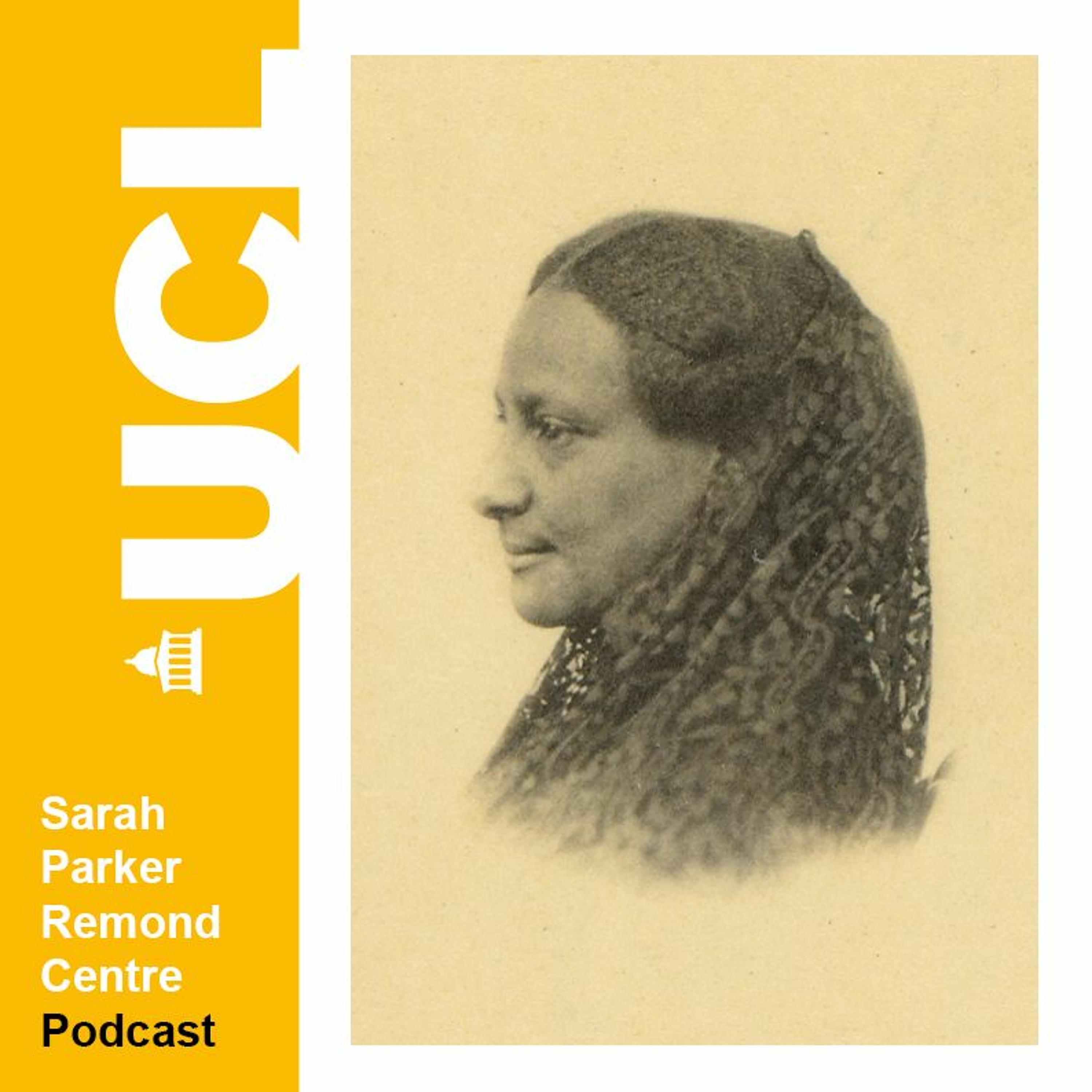 UCL Institute of Advanced StudiesSPRC Short Takes: In the words of Sarah Parker RemondWelcome to our Short Takes podcast series. In the first of our series, Sirpa Salenius, the biographer of Sarah Parker Remond, and author of An Abolitionist Abroad: Sarah Parker Remond in Cosmopolitan Europe (University of Massachusetts Press, 2016), is going to present some elements of Sarah Parker Remond’s life in Europe, and show why we felt it was such a wonderful thing to be able to use Sarah Parker Remond’s name to express the spirit and the character and the direction of the work that our centre is going to conduct in the future.
Transcript: www.ucl.ac.uk/raci...2020-05-2010 min
UCL Institute of Advanced StudiesSPRC Short Takes: In the words of Sarah Parker RemondWelcome to our Short Takes podcast series. In the first of our series, Sirpa Salenius, the biographer of Sarah Parker Remond, and author of An Abolitionist Abroad: Sarah Parker Remond in Cosmopolitan Europe (University of Massachusetts Press, 2016), is going to present some elements of Sarah Parker Remond’s life in Europe, and show why we felt it was such a wonderful thing to be able to use Sarah Parker Remond’s name to express the spirit and the character and the direction of the work that our centre is going to conduct in the future.
Transcript: www.ucl.ac.uk/raci...2020-05-2010 min